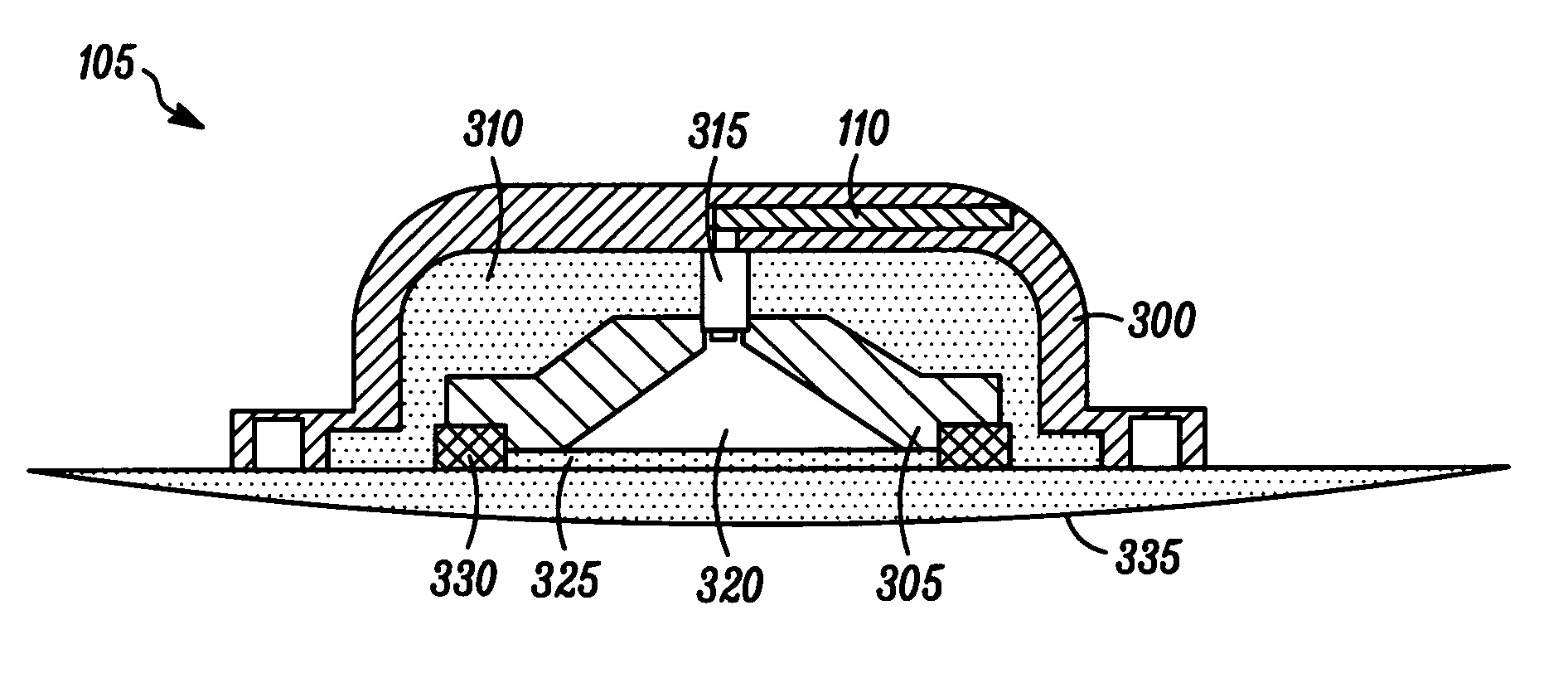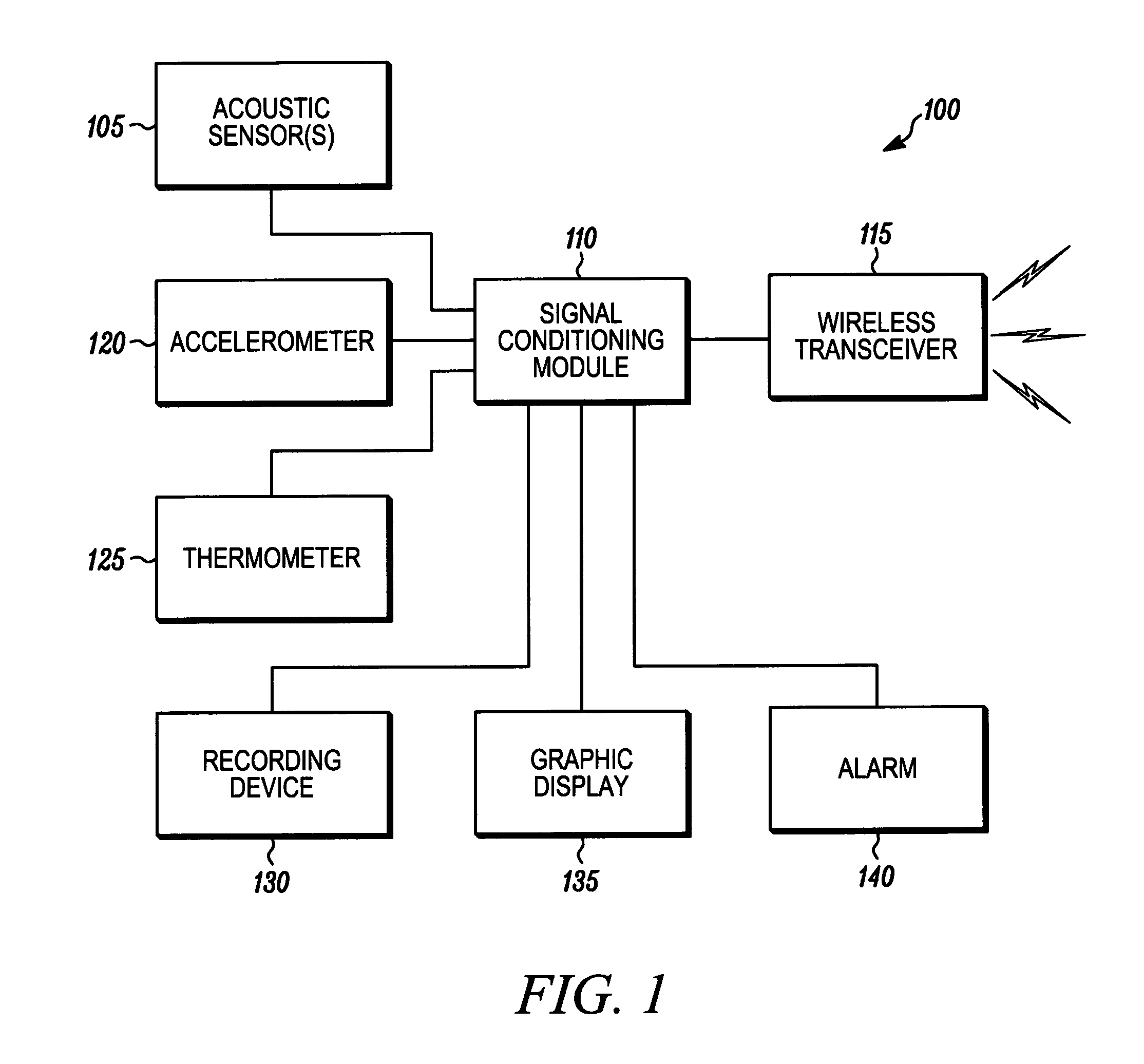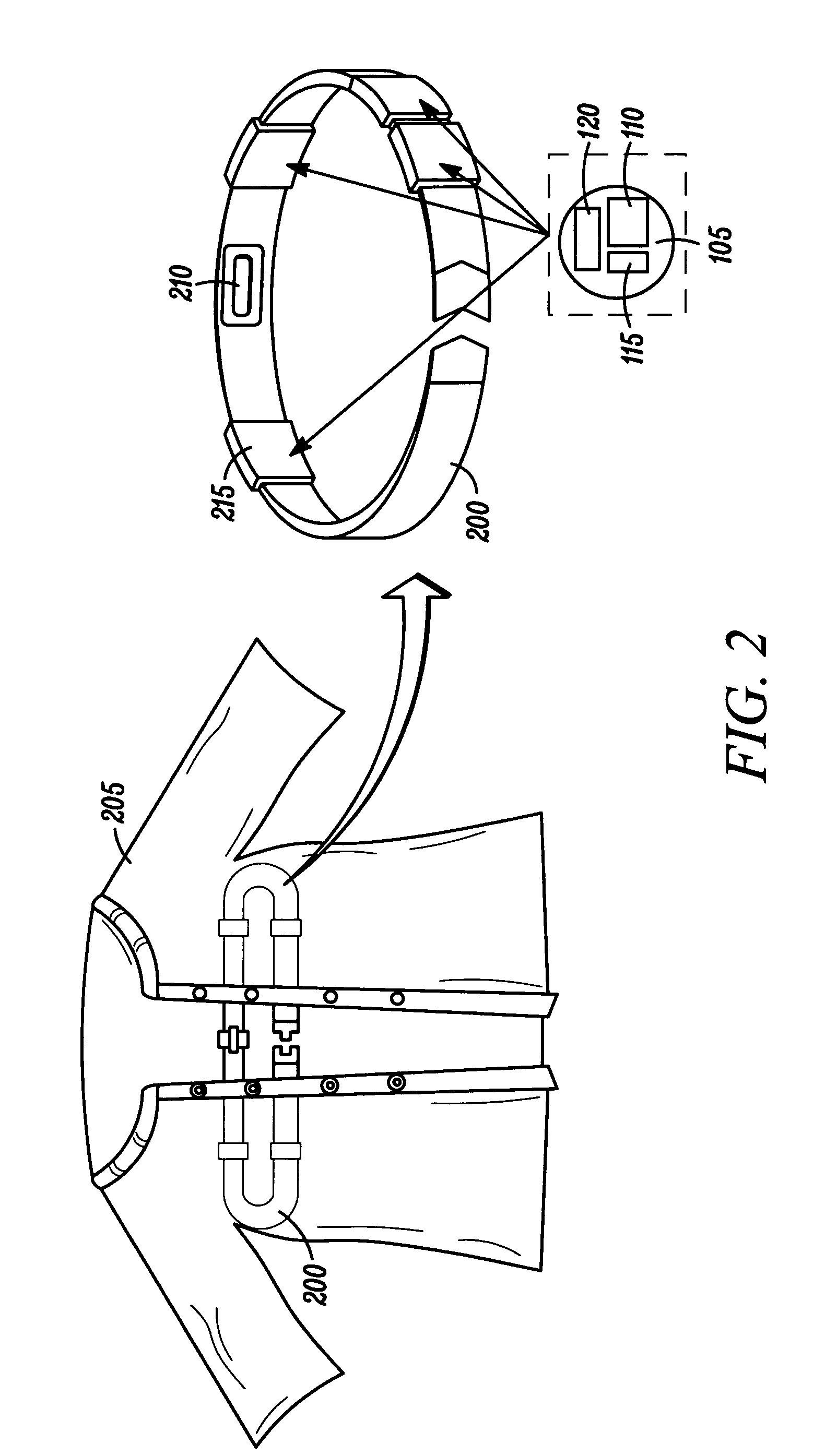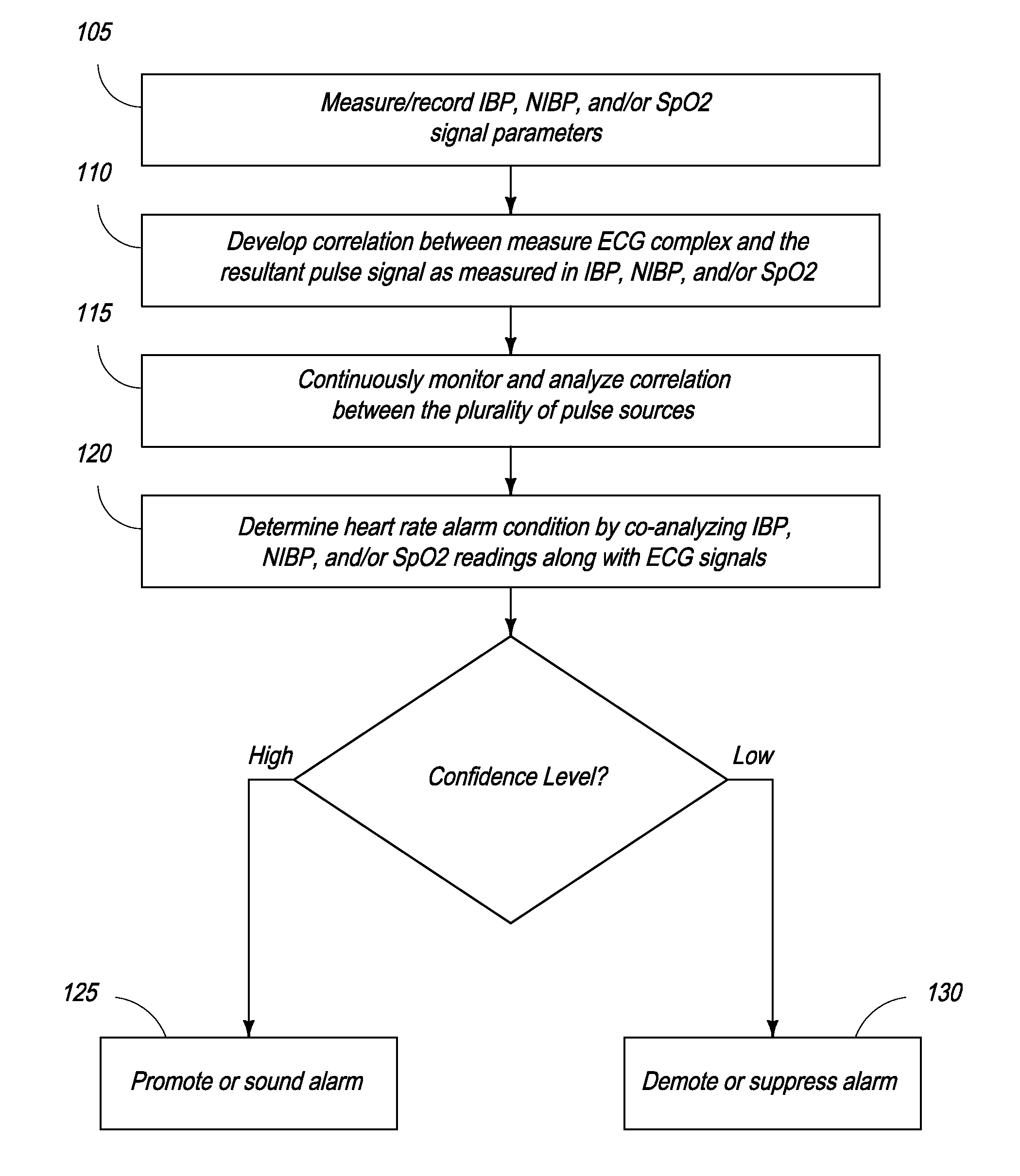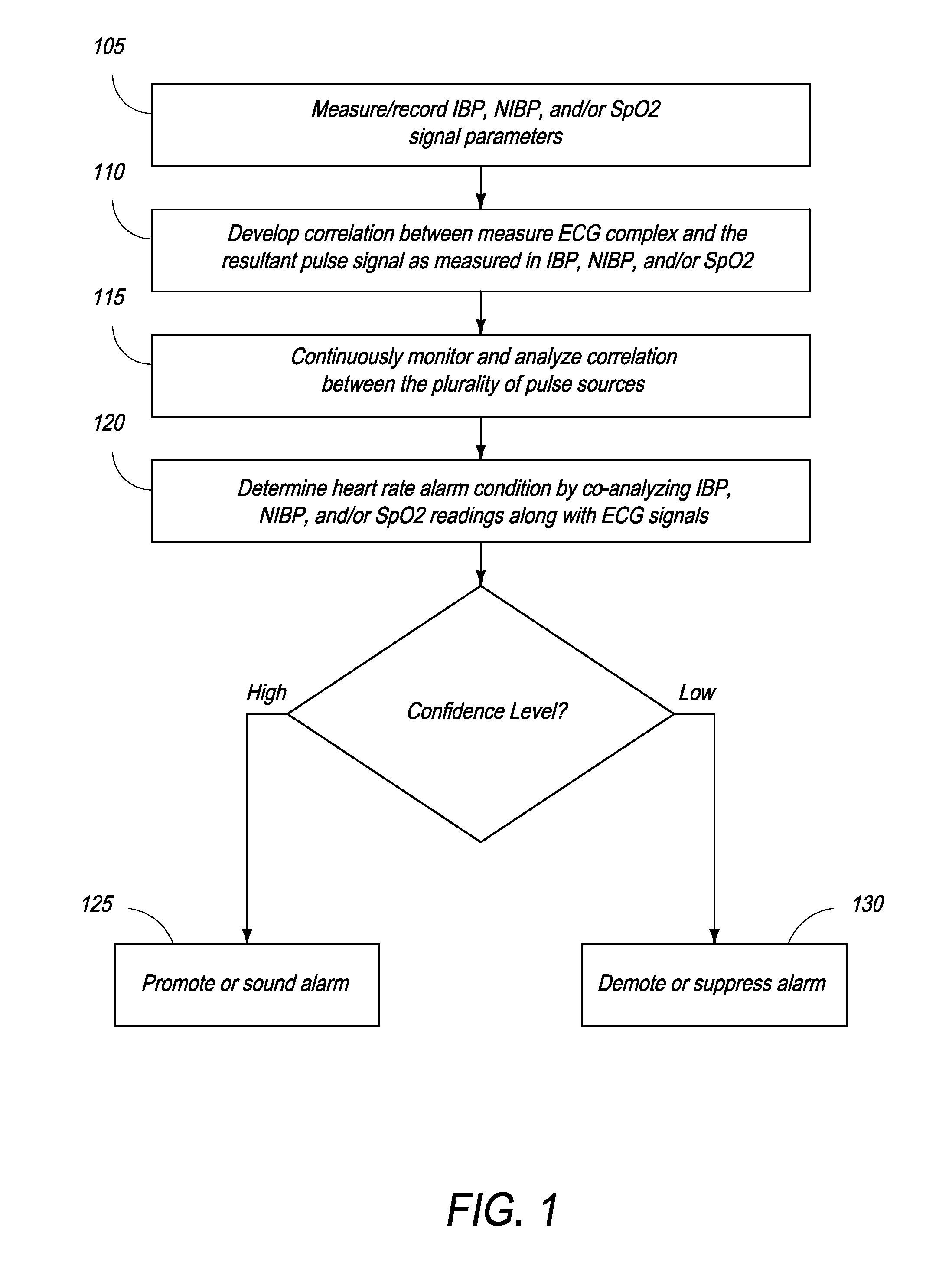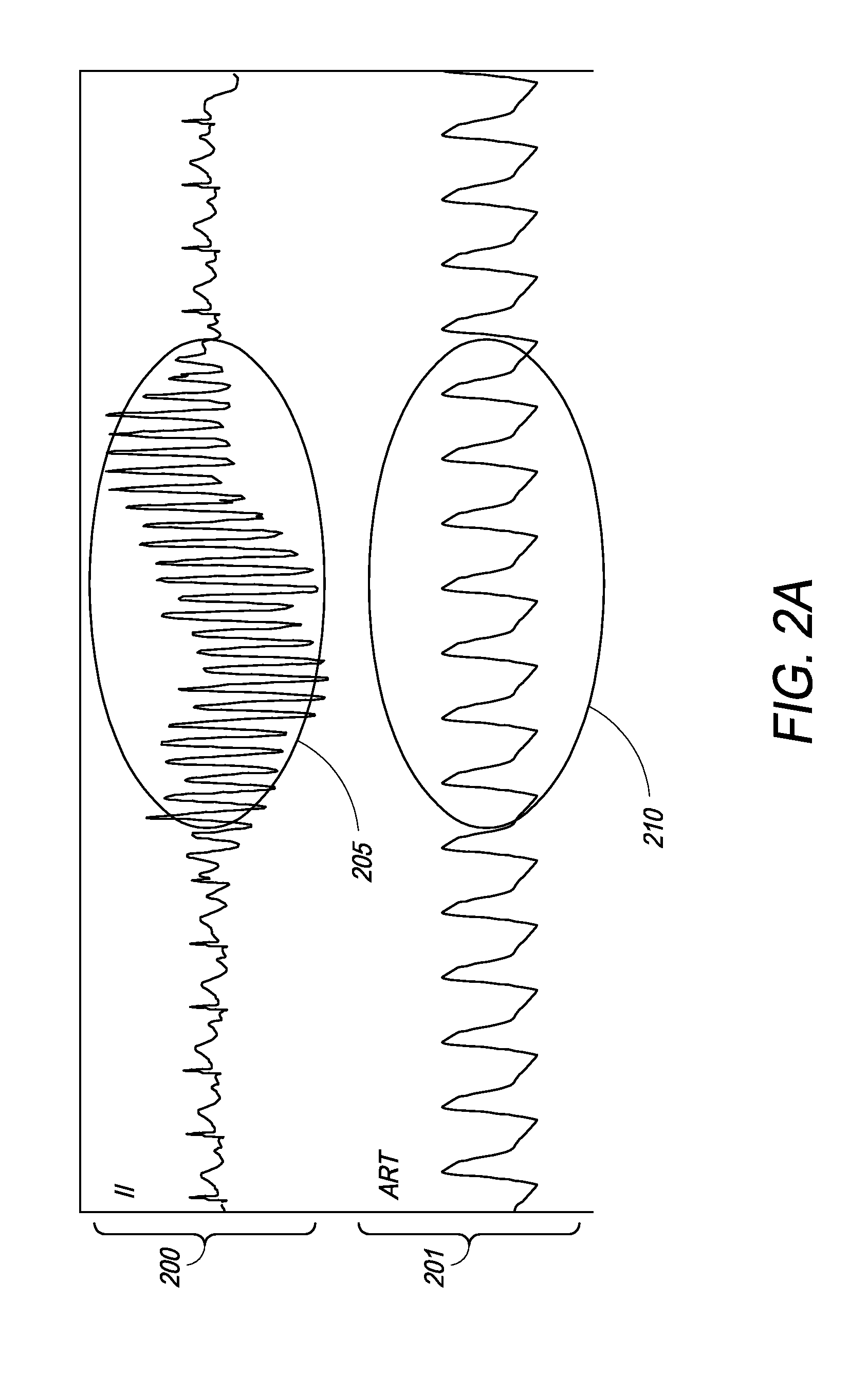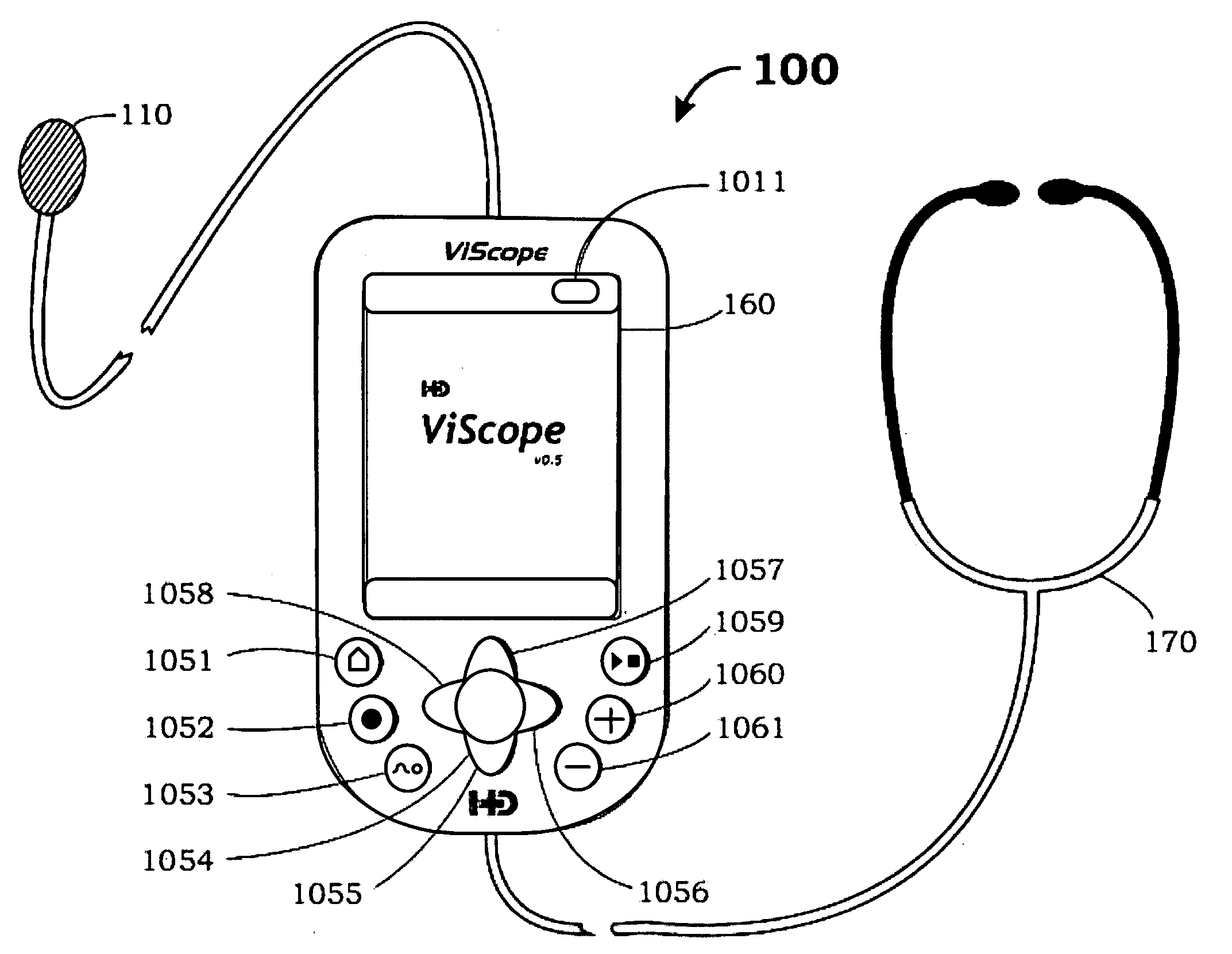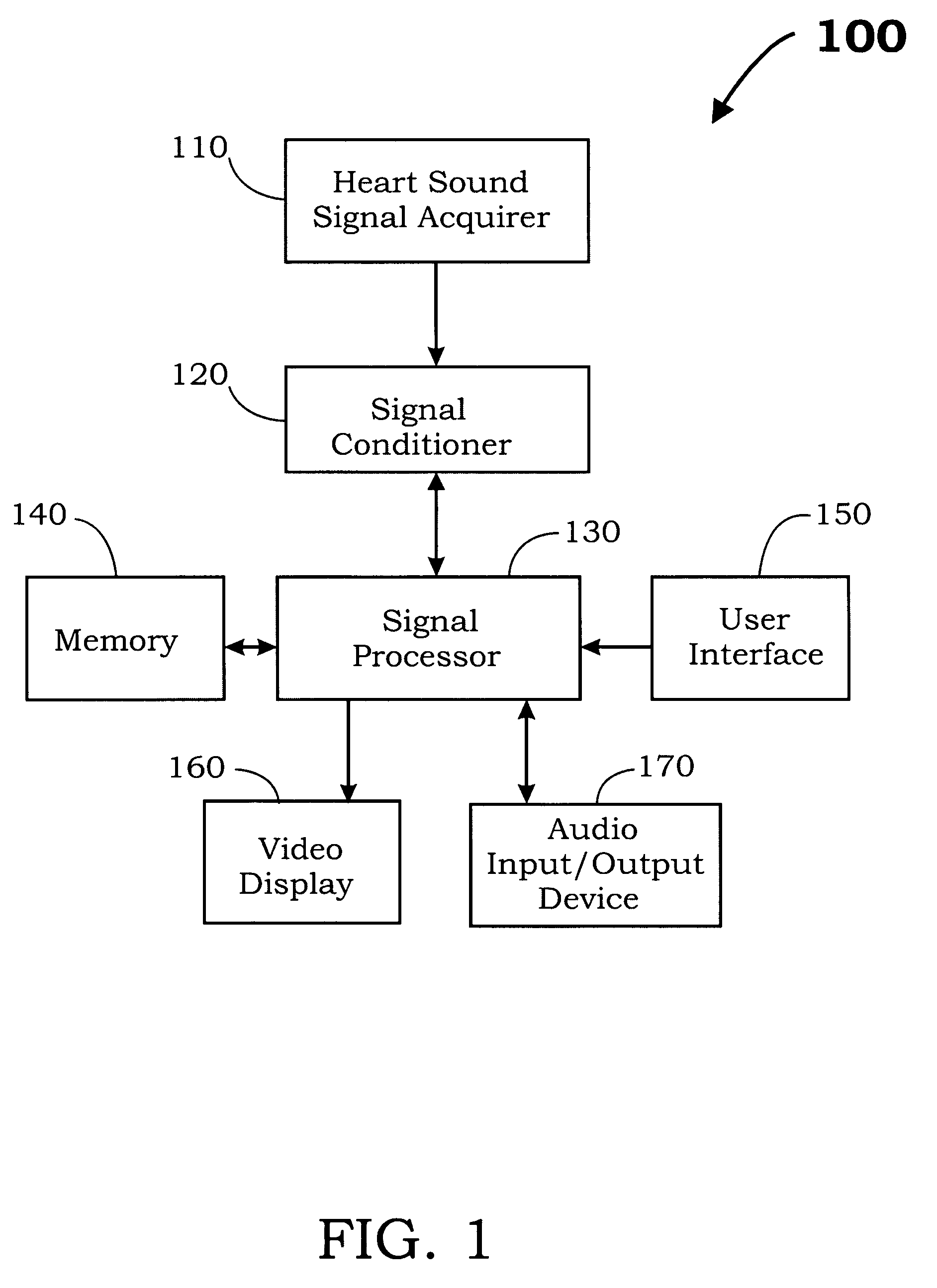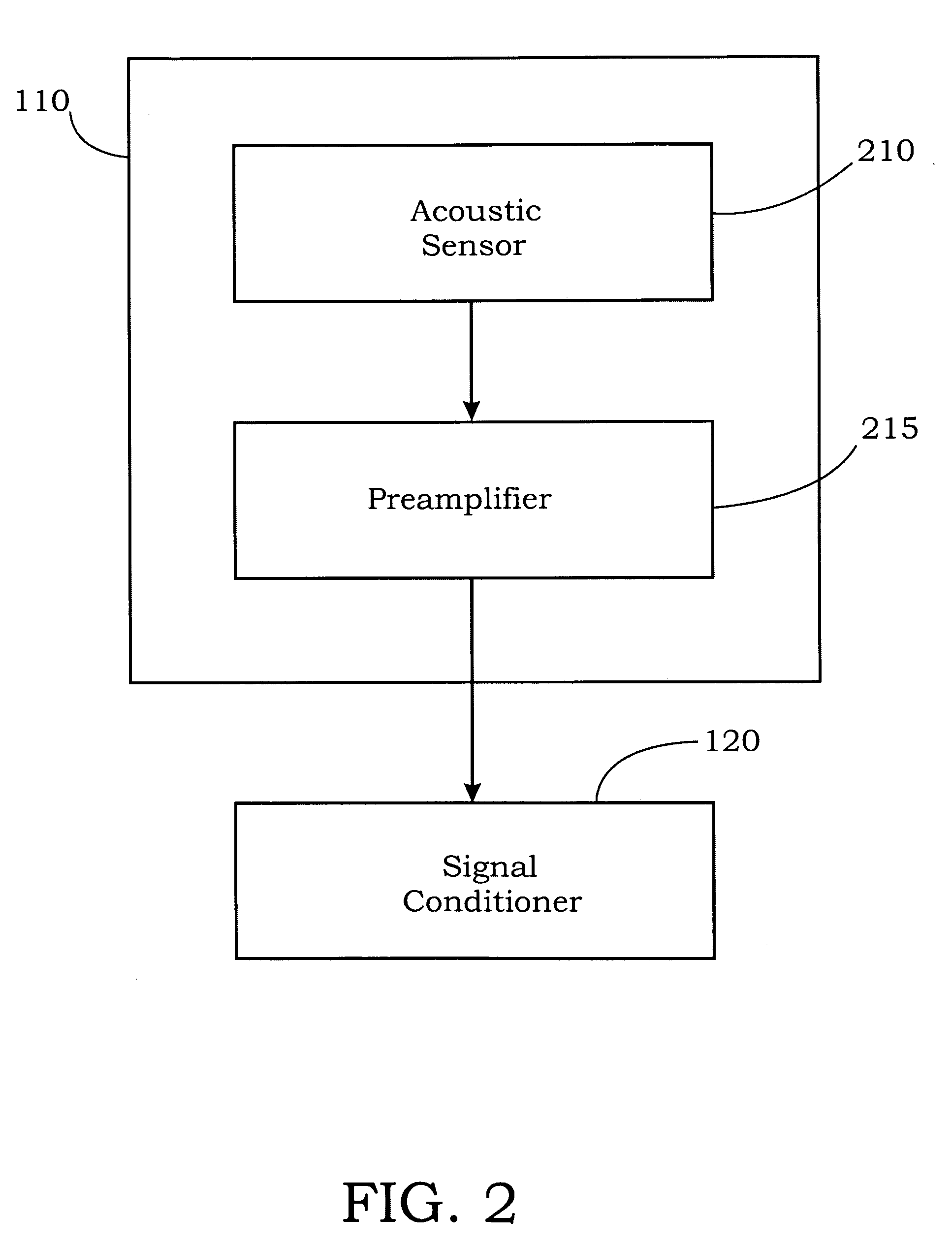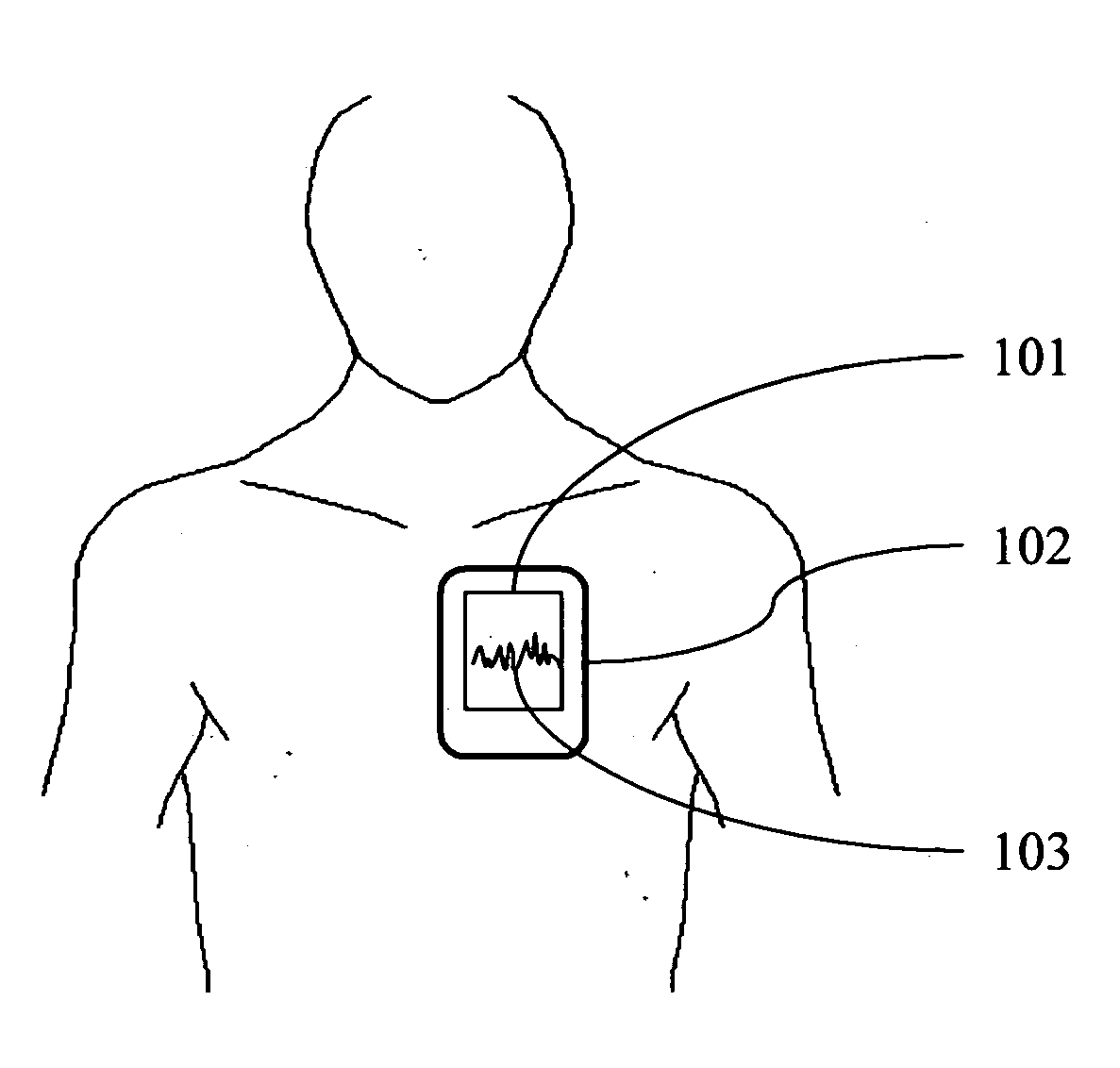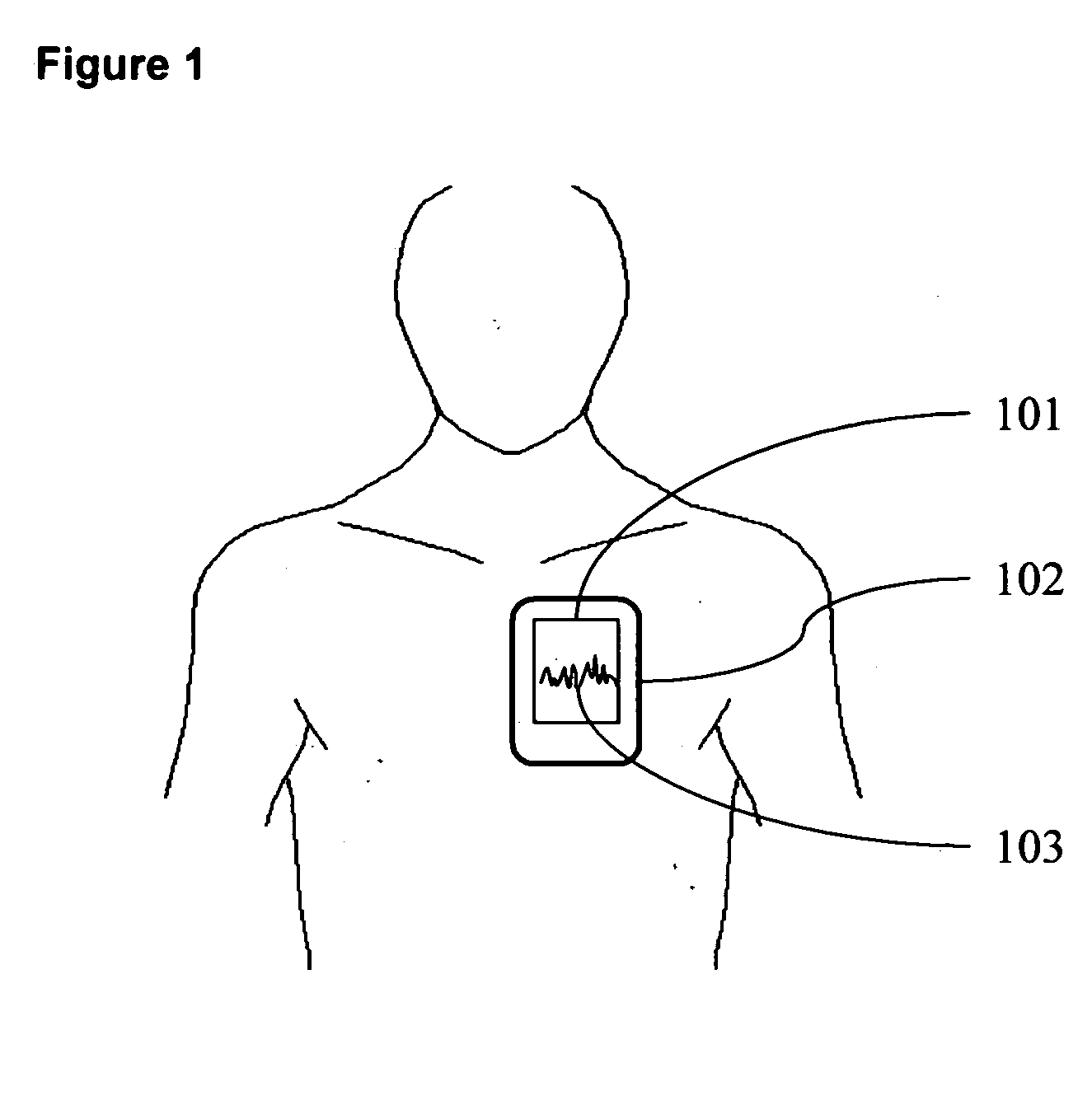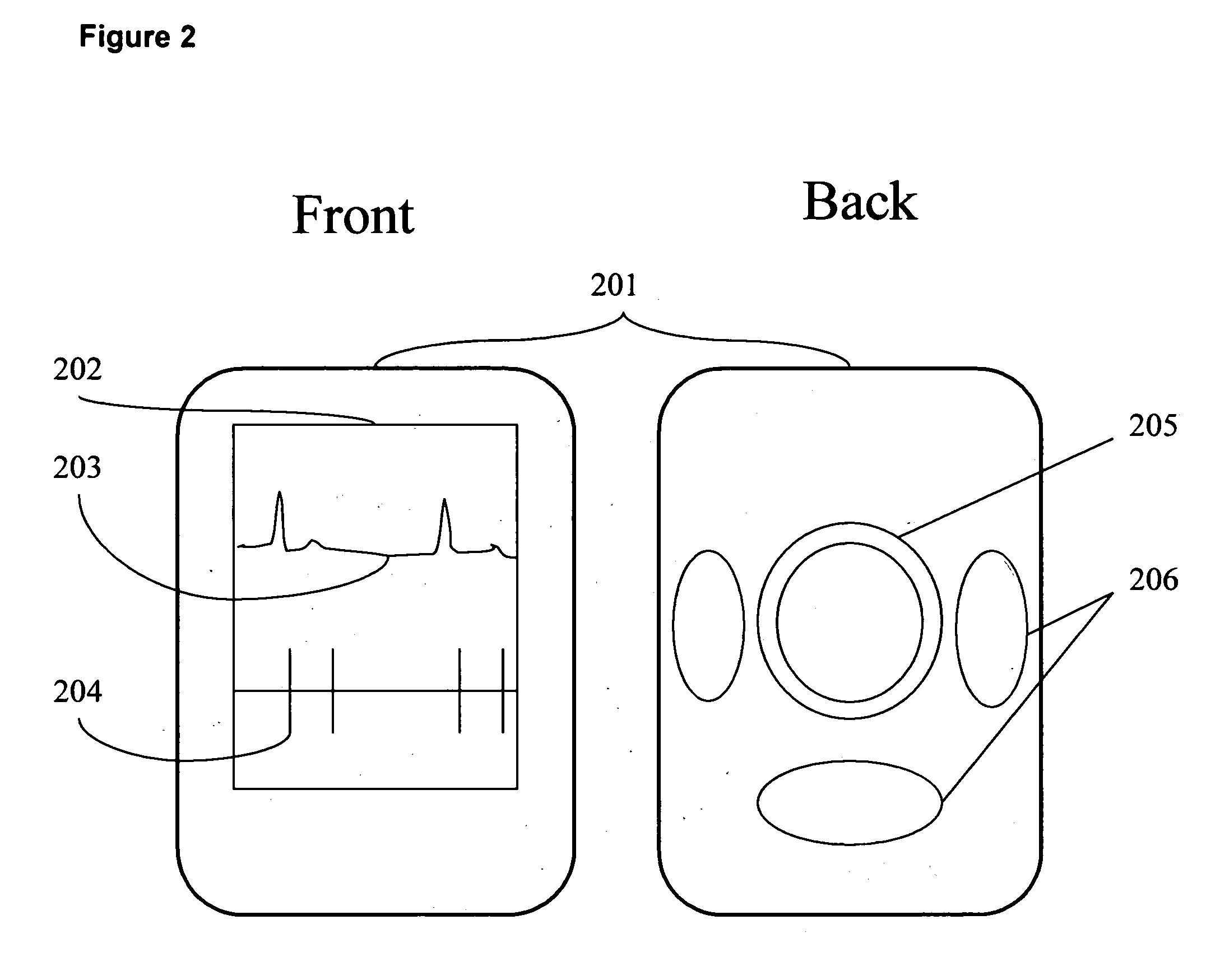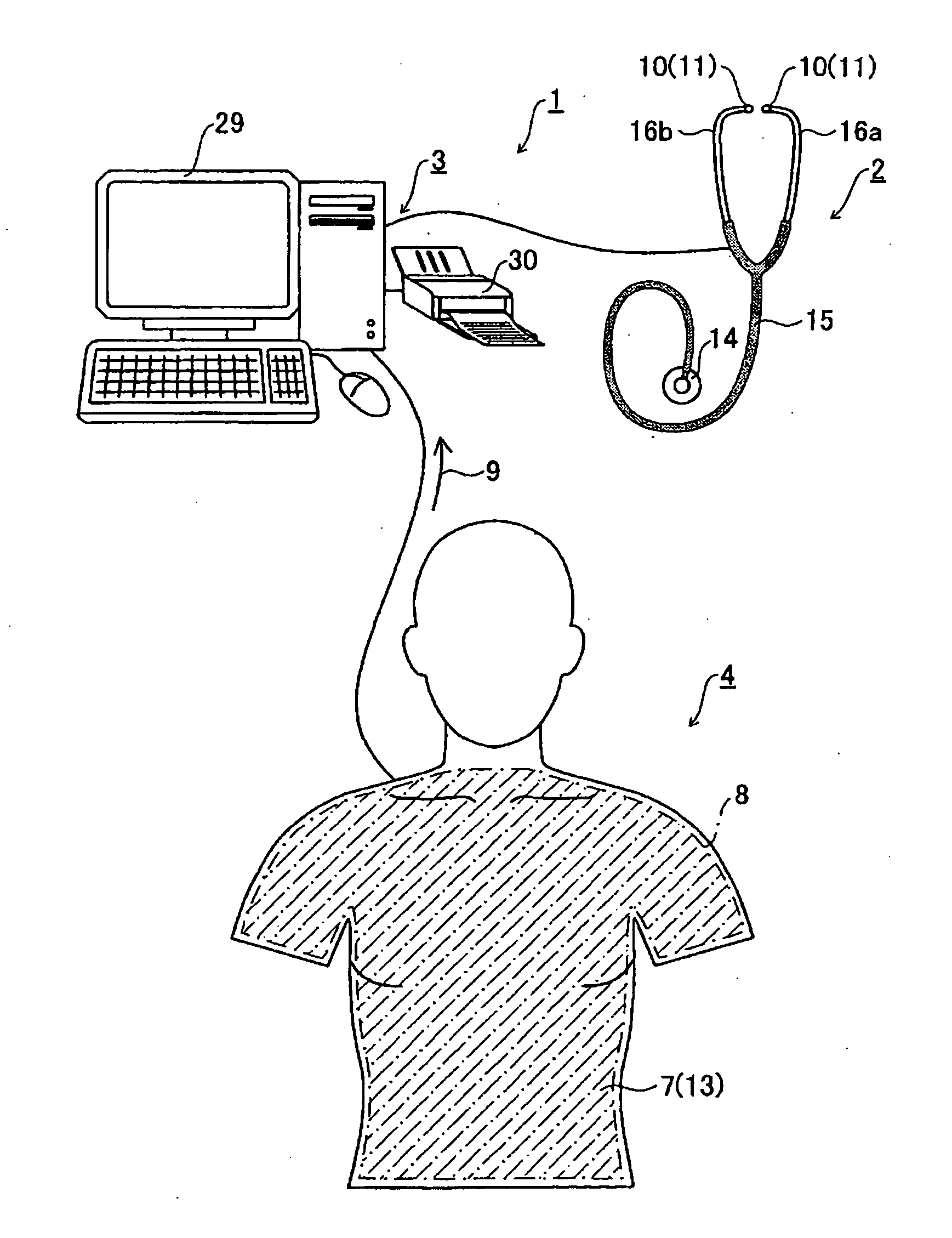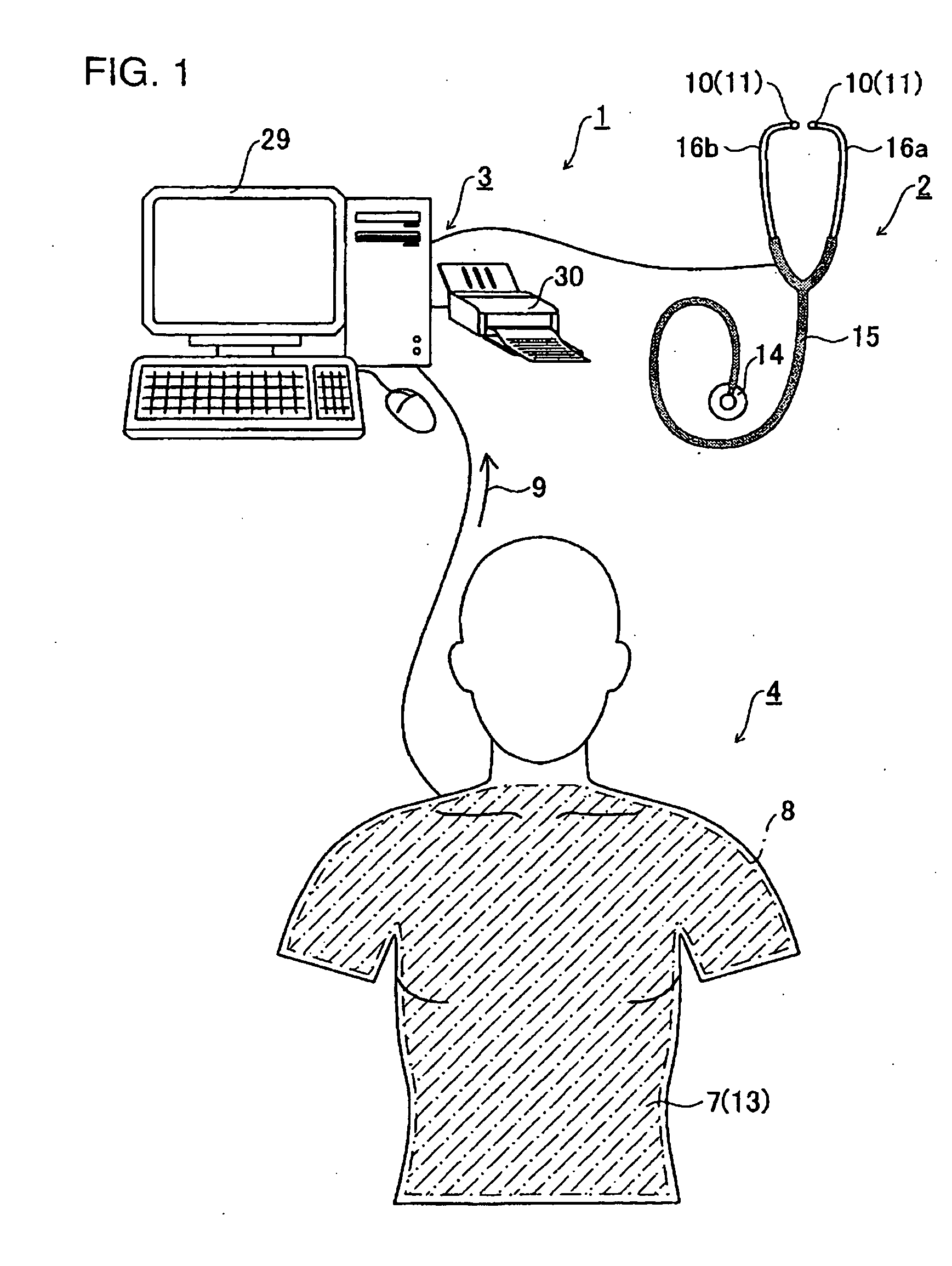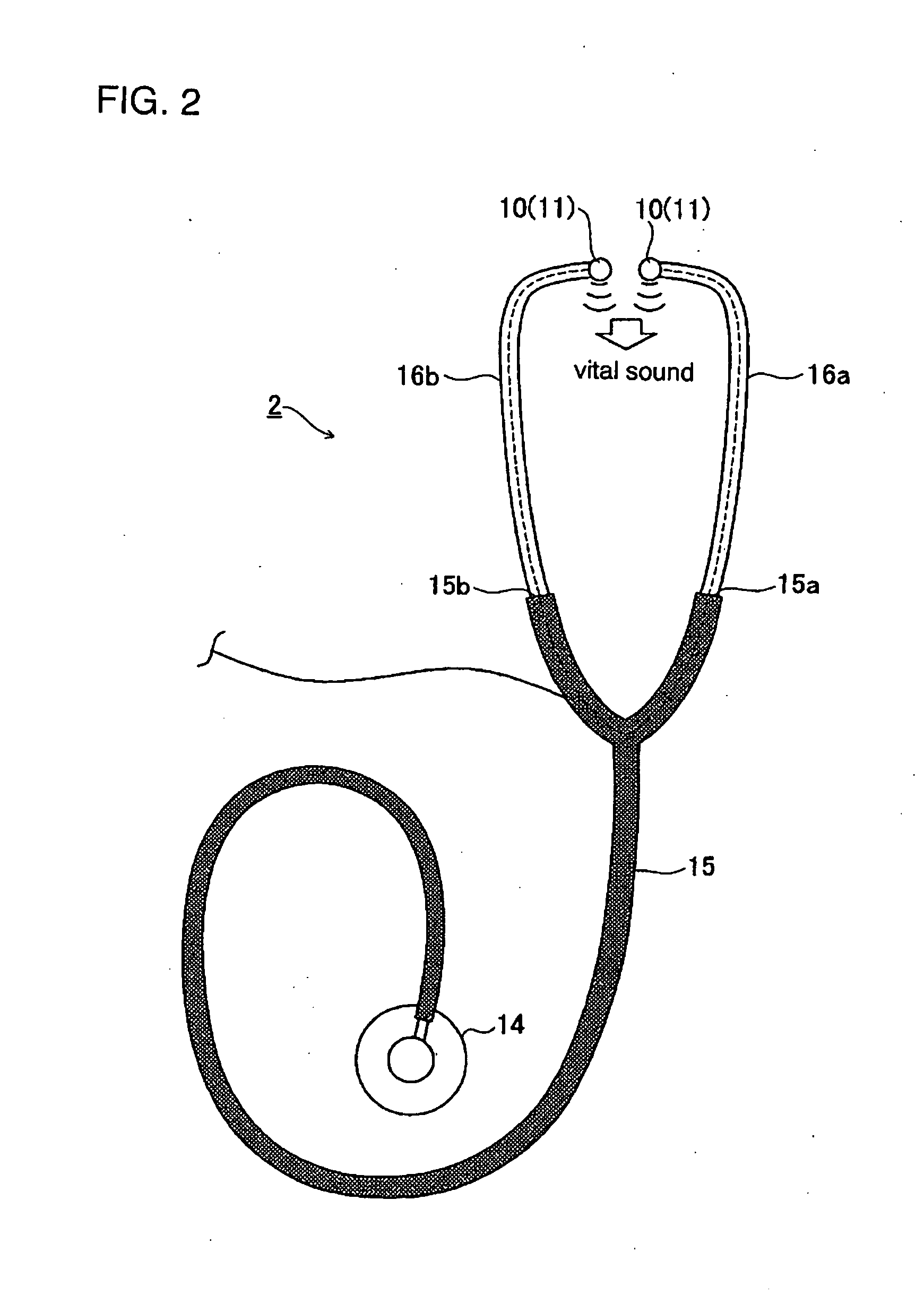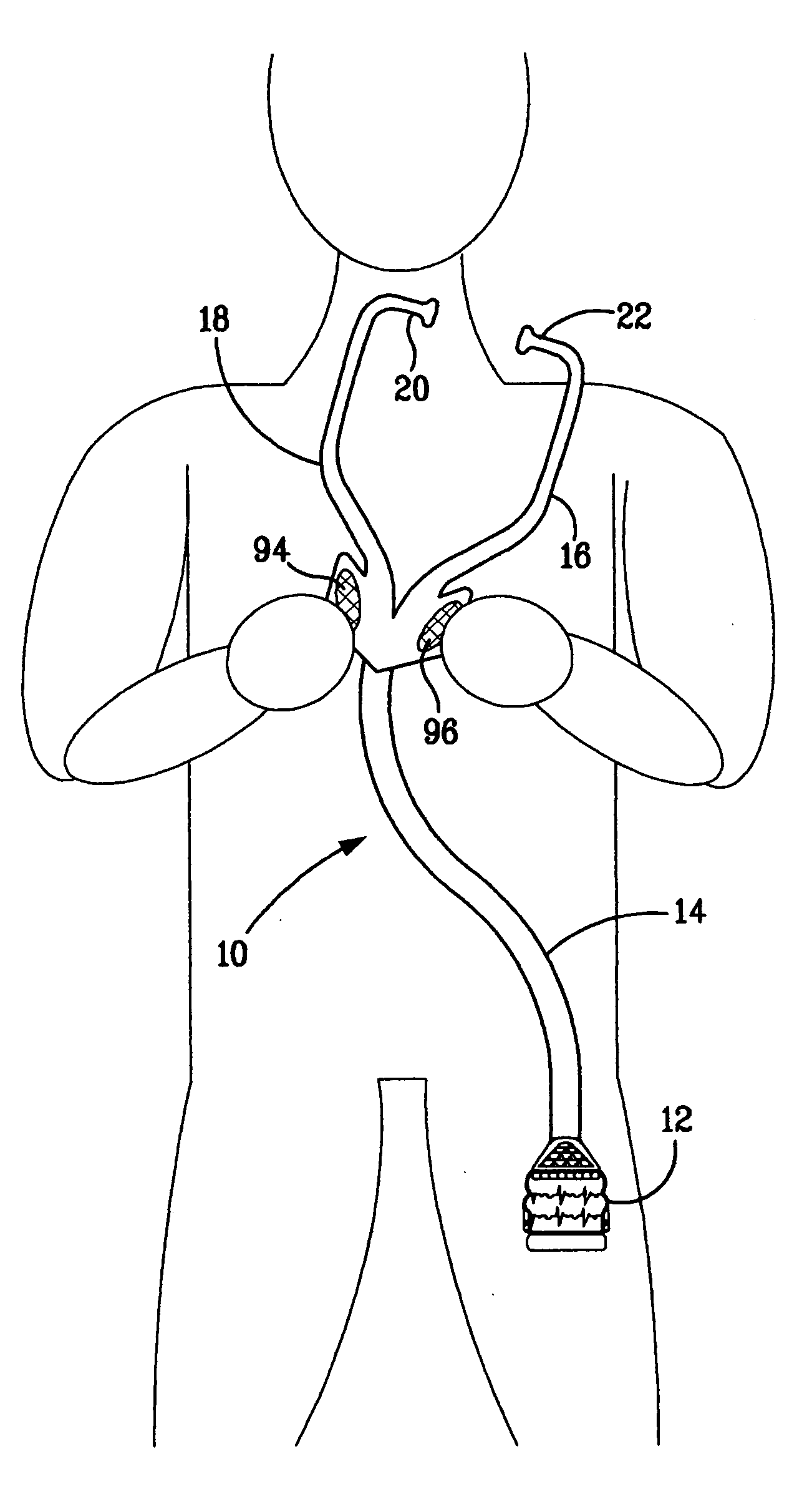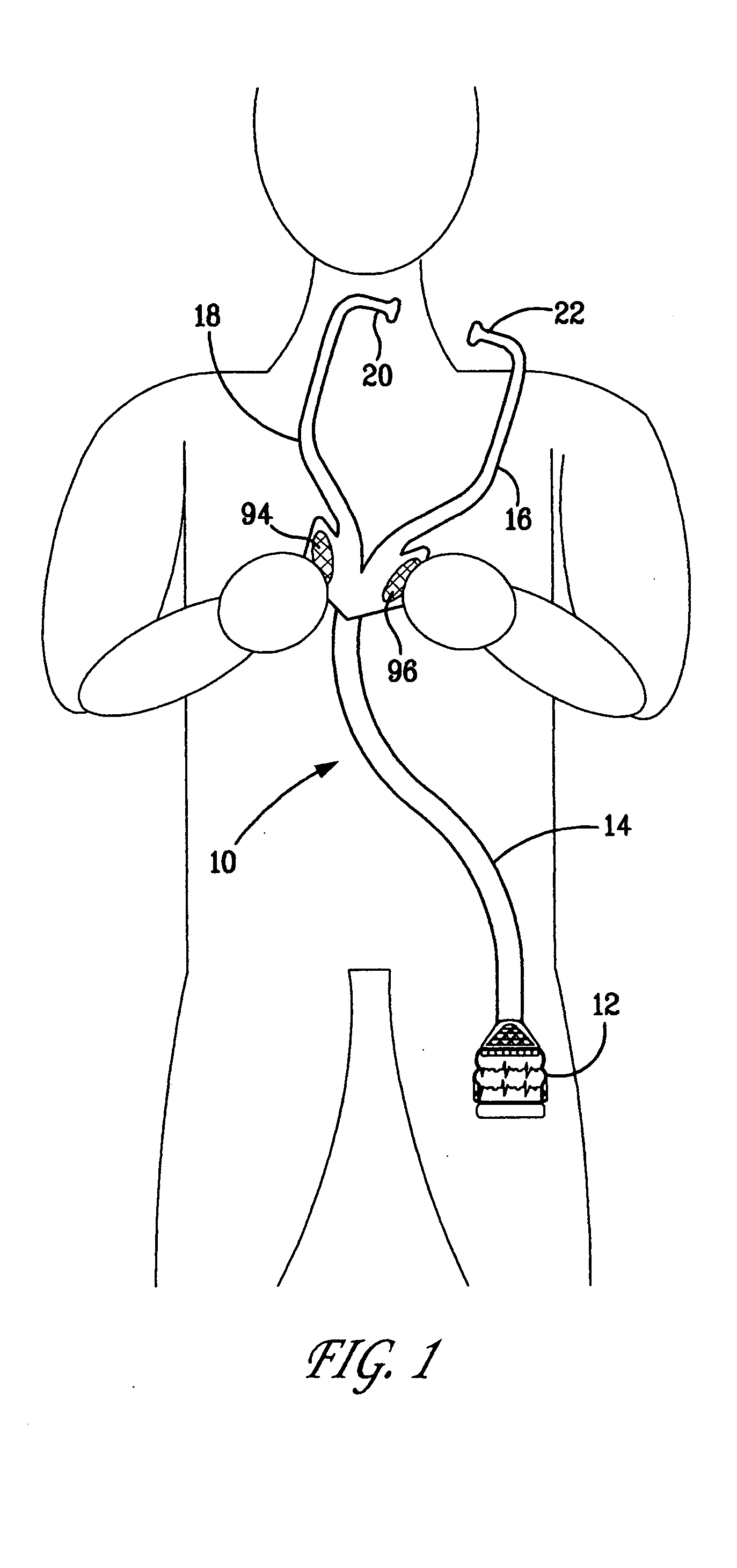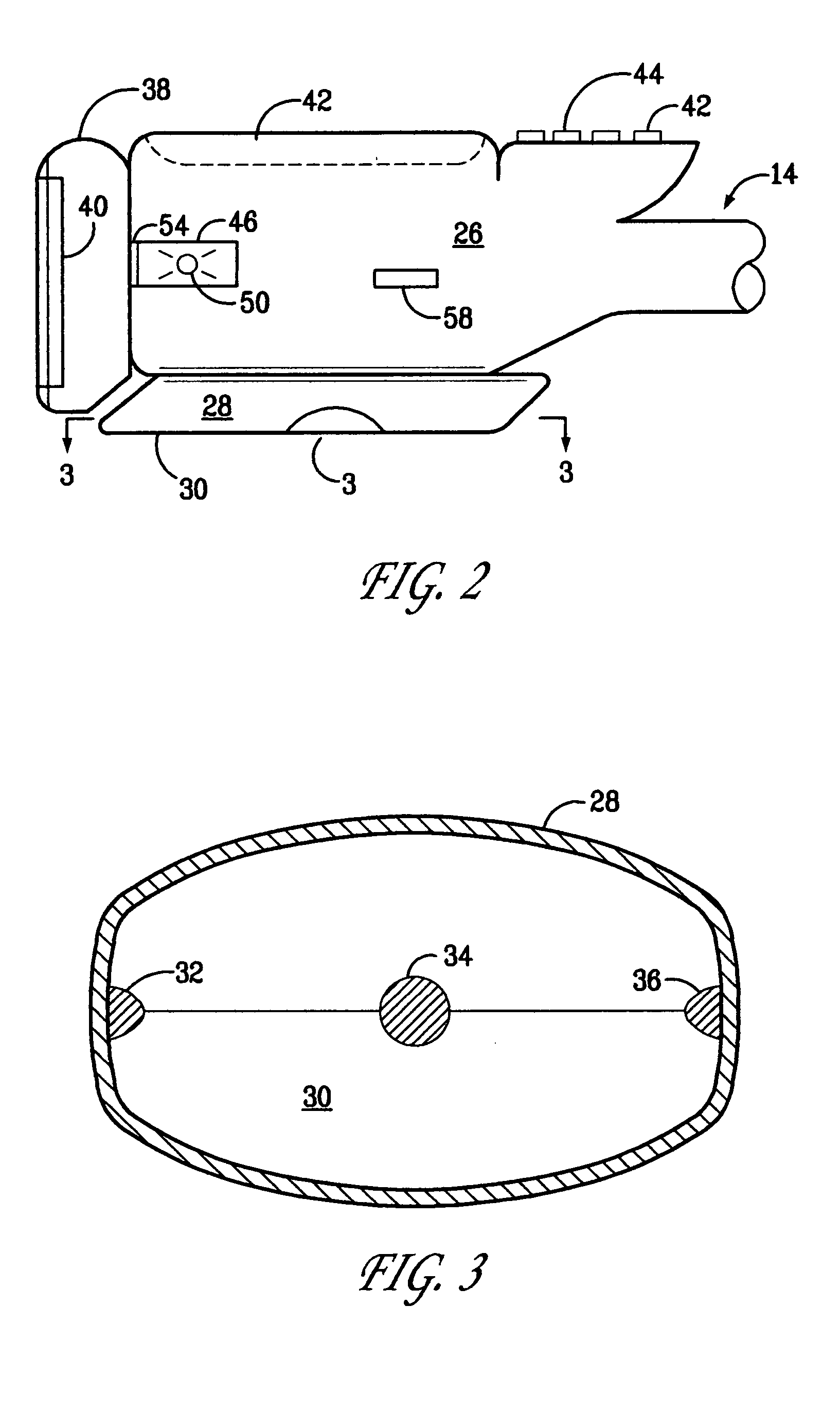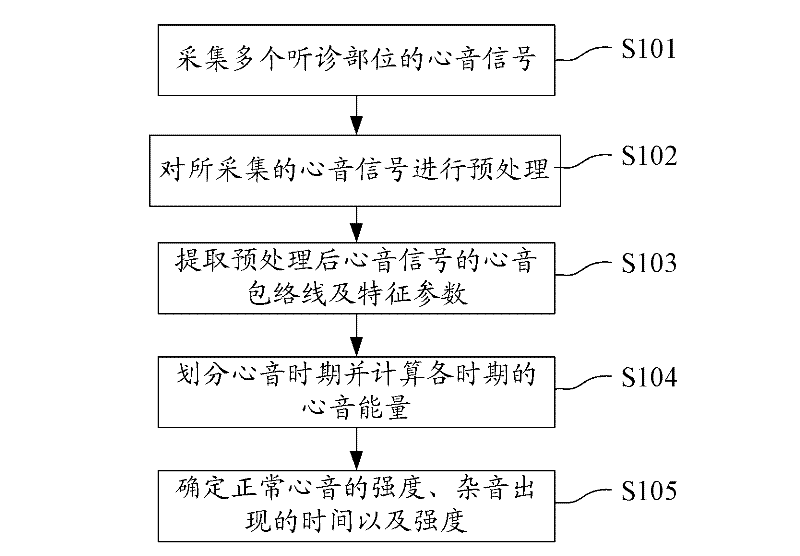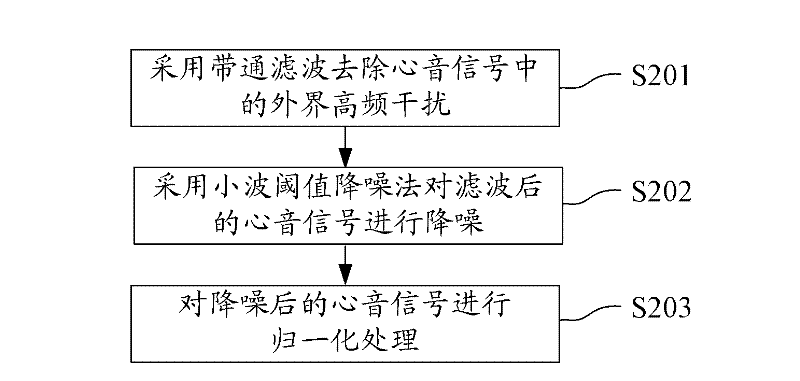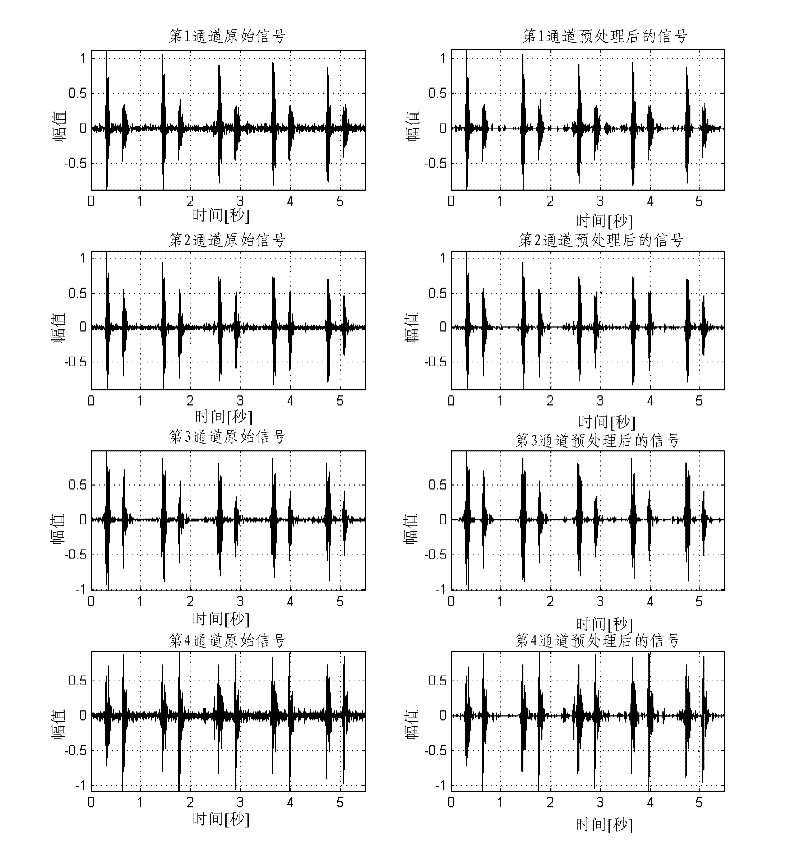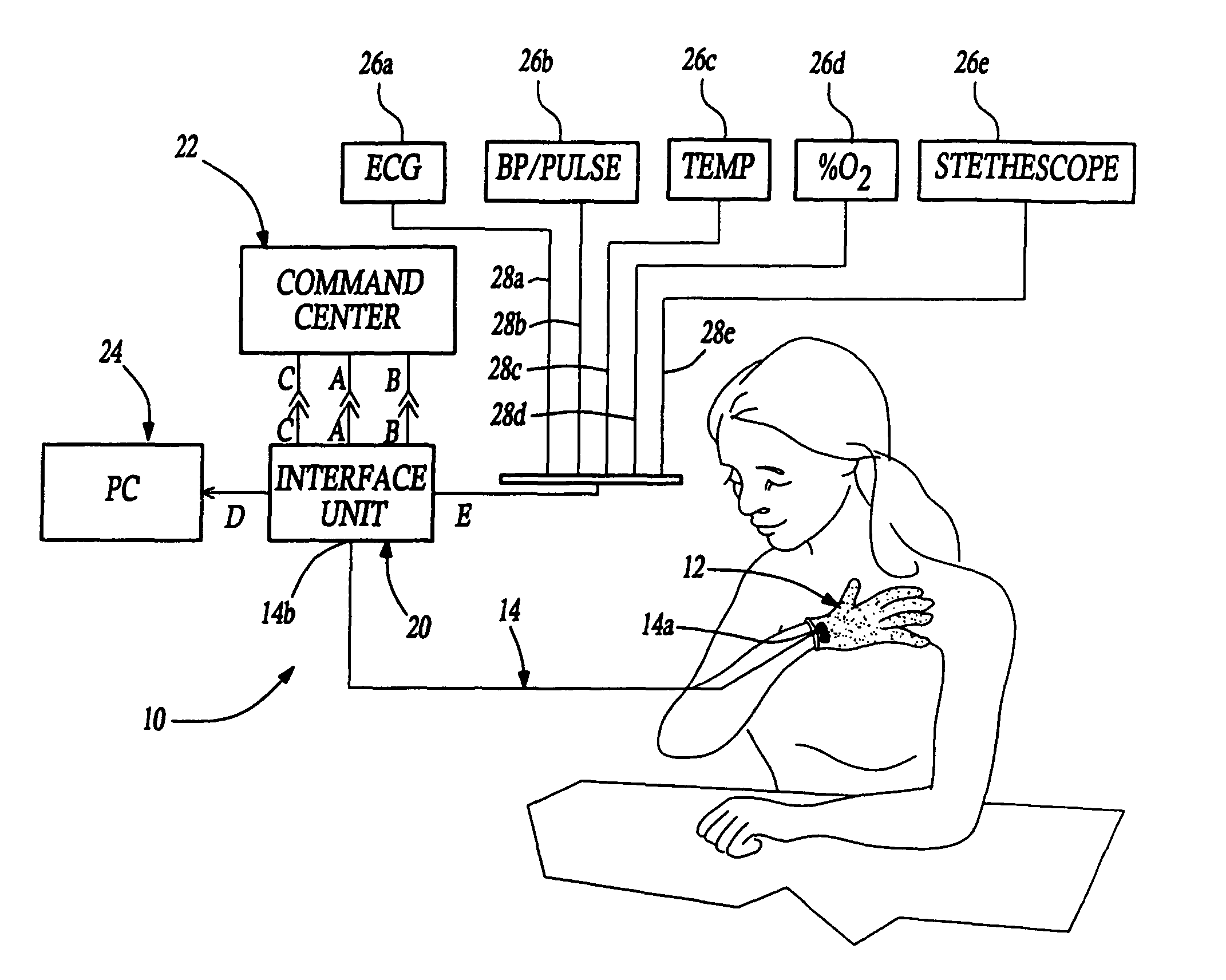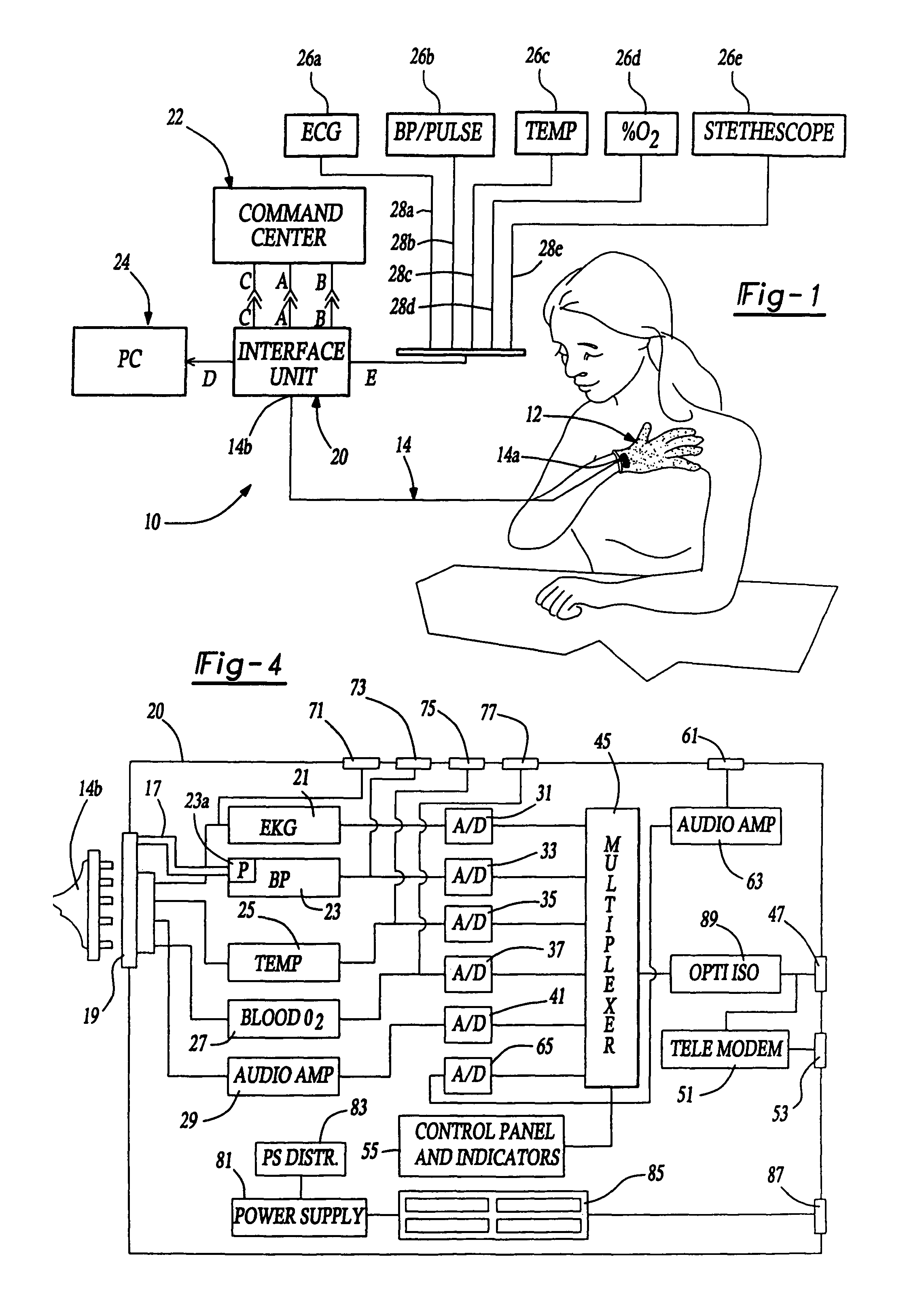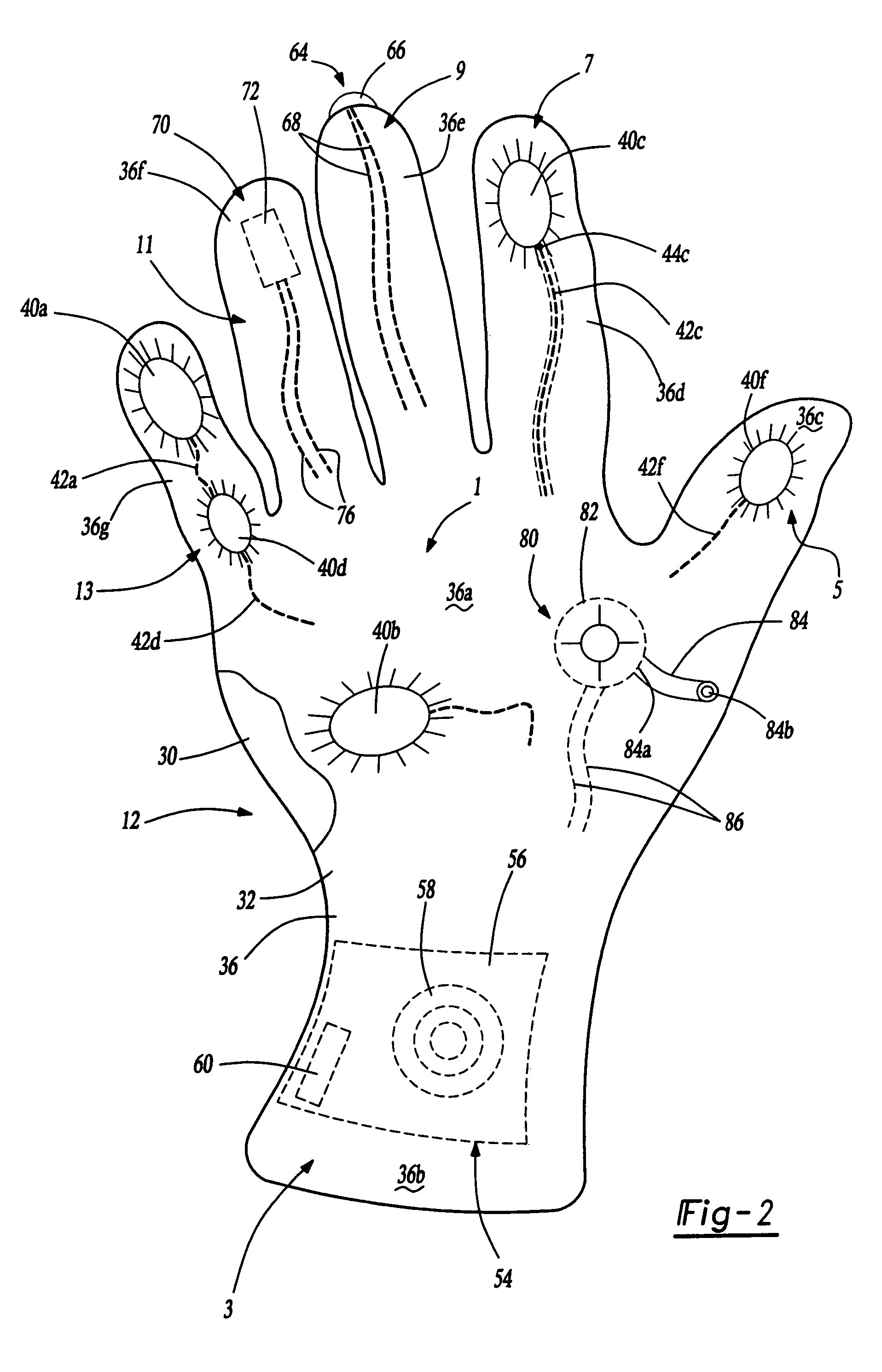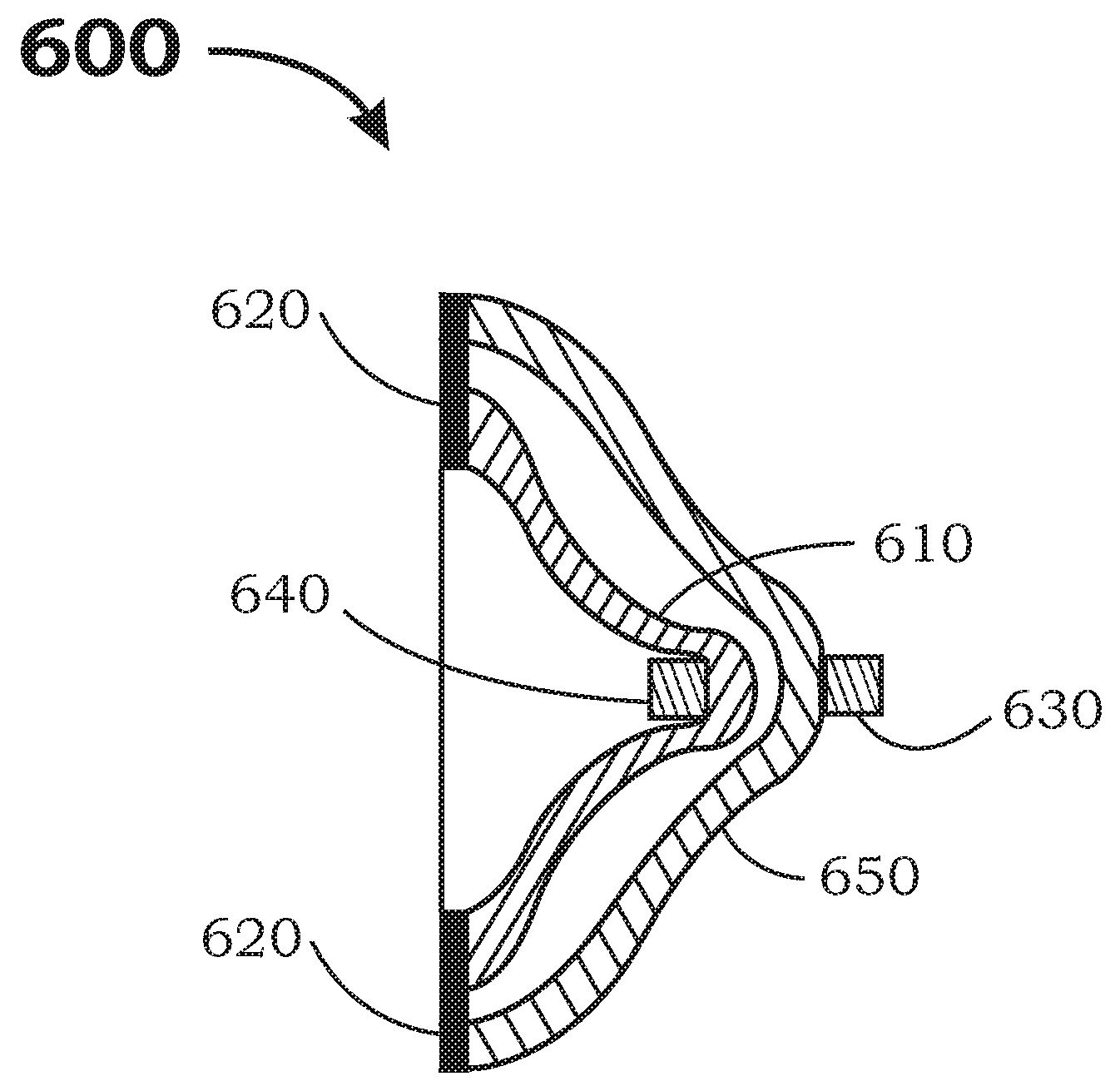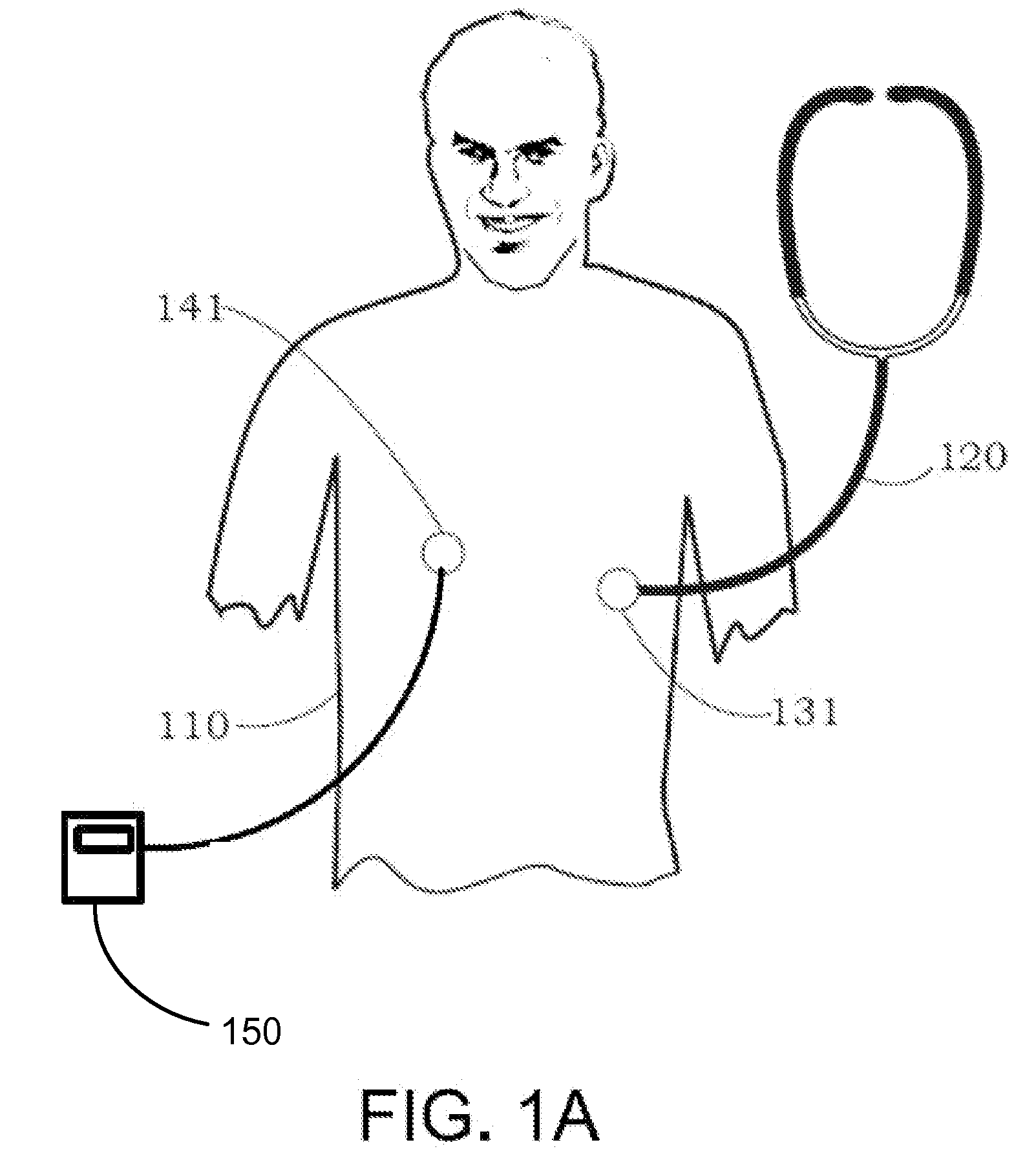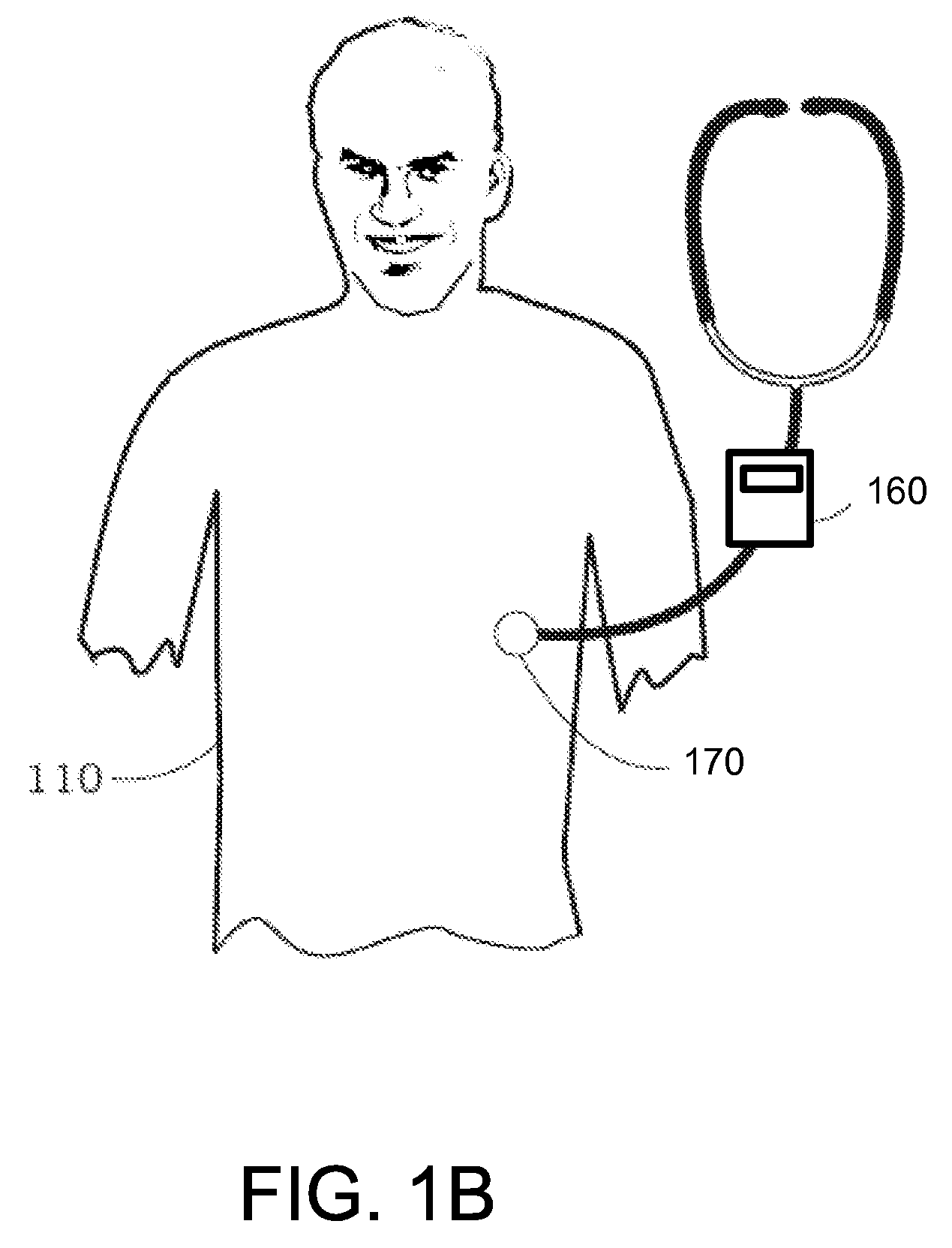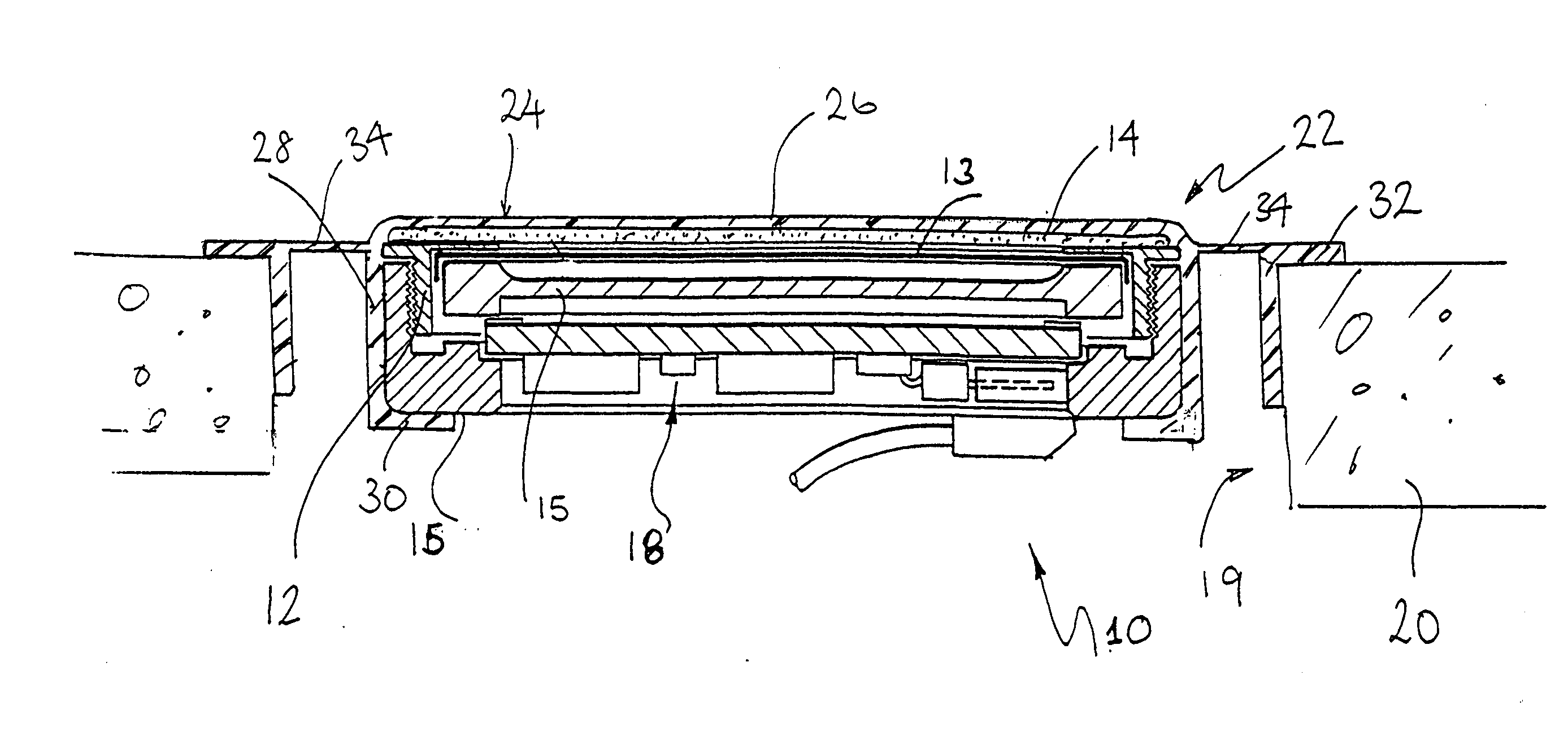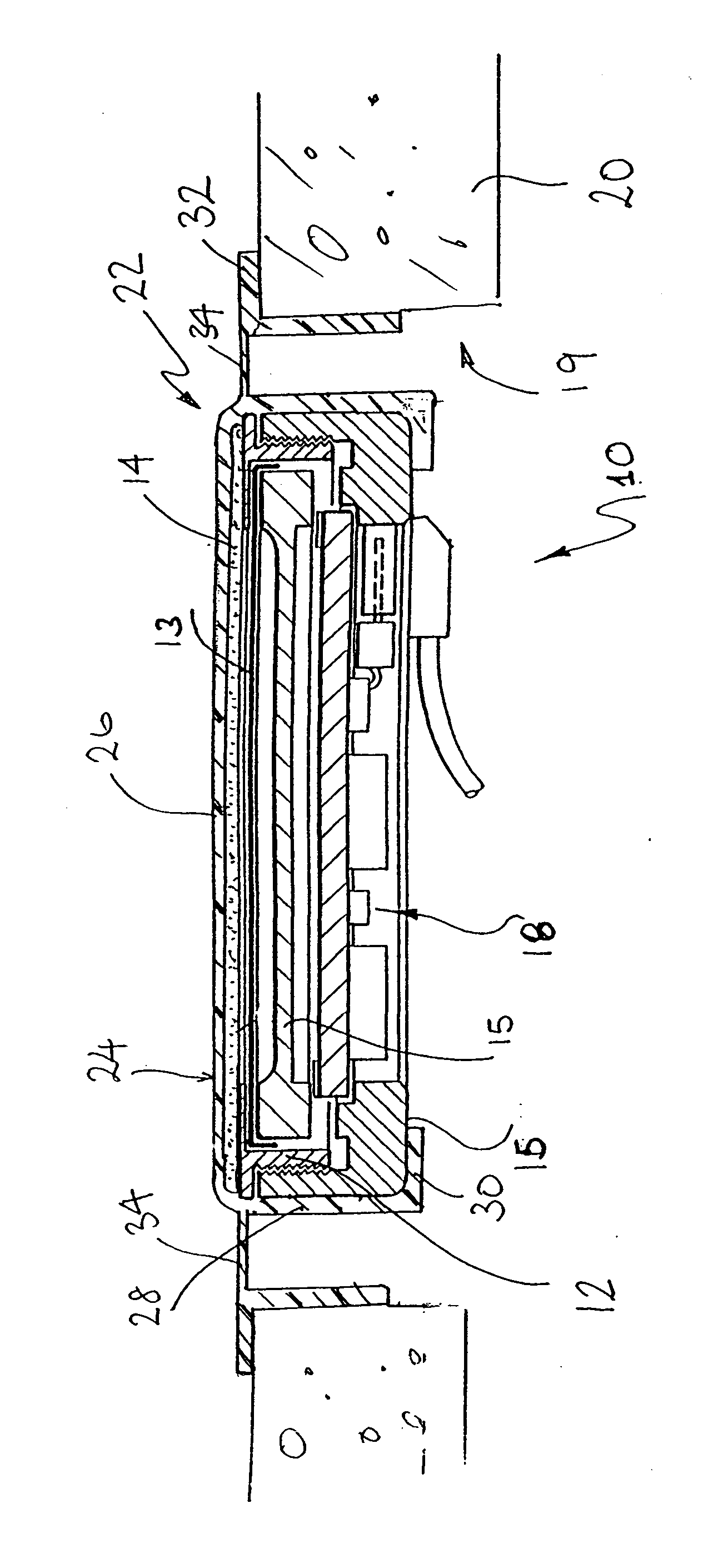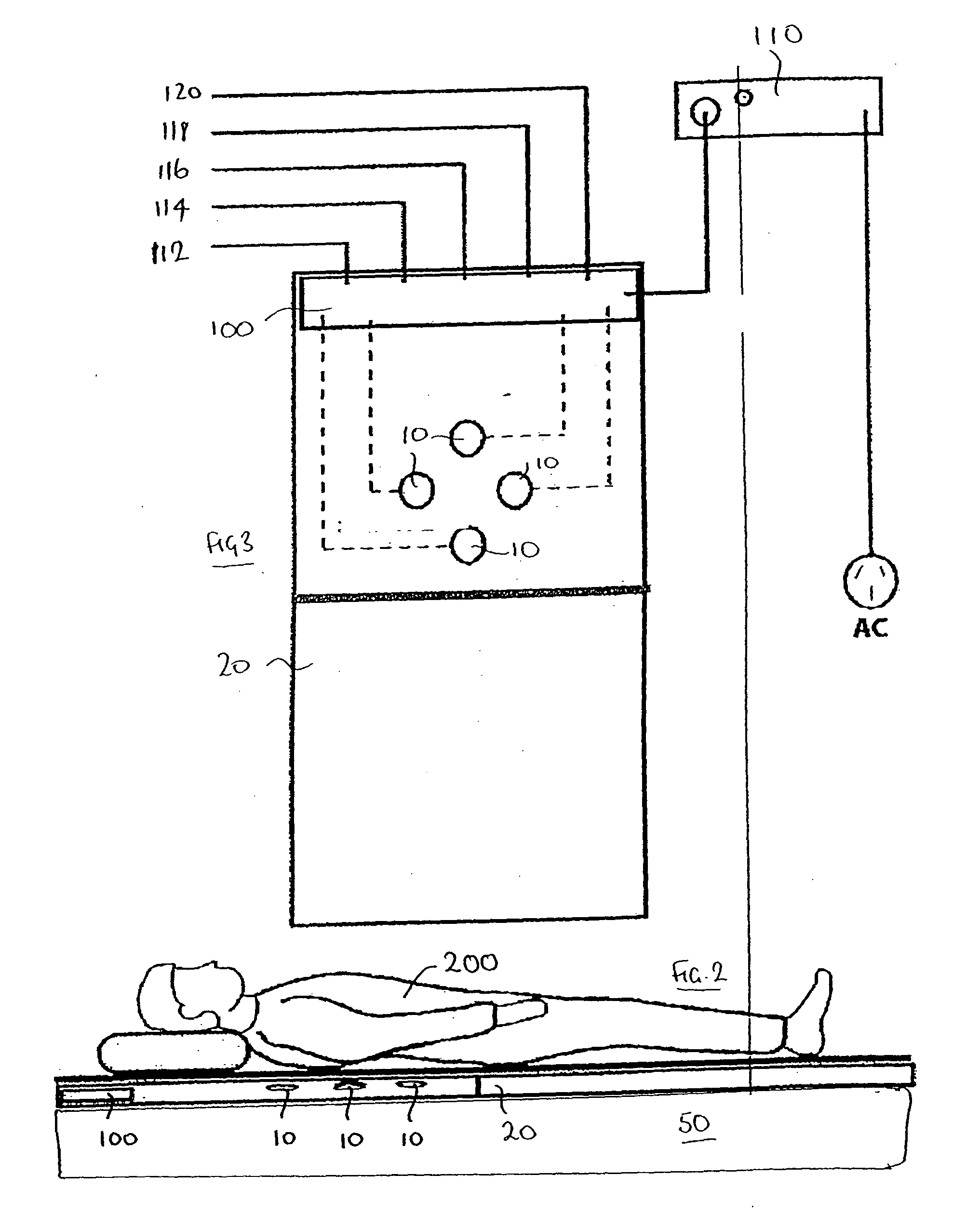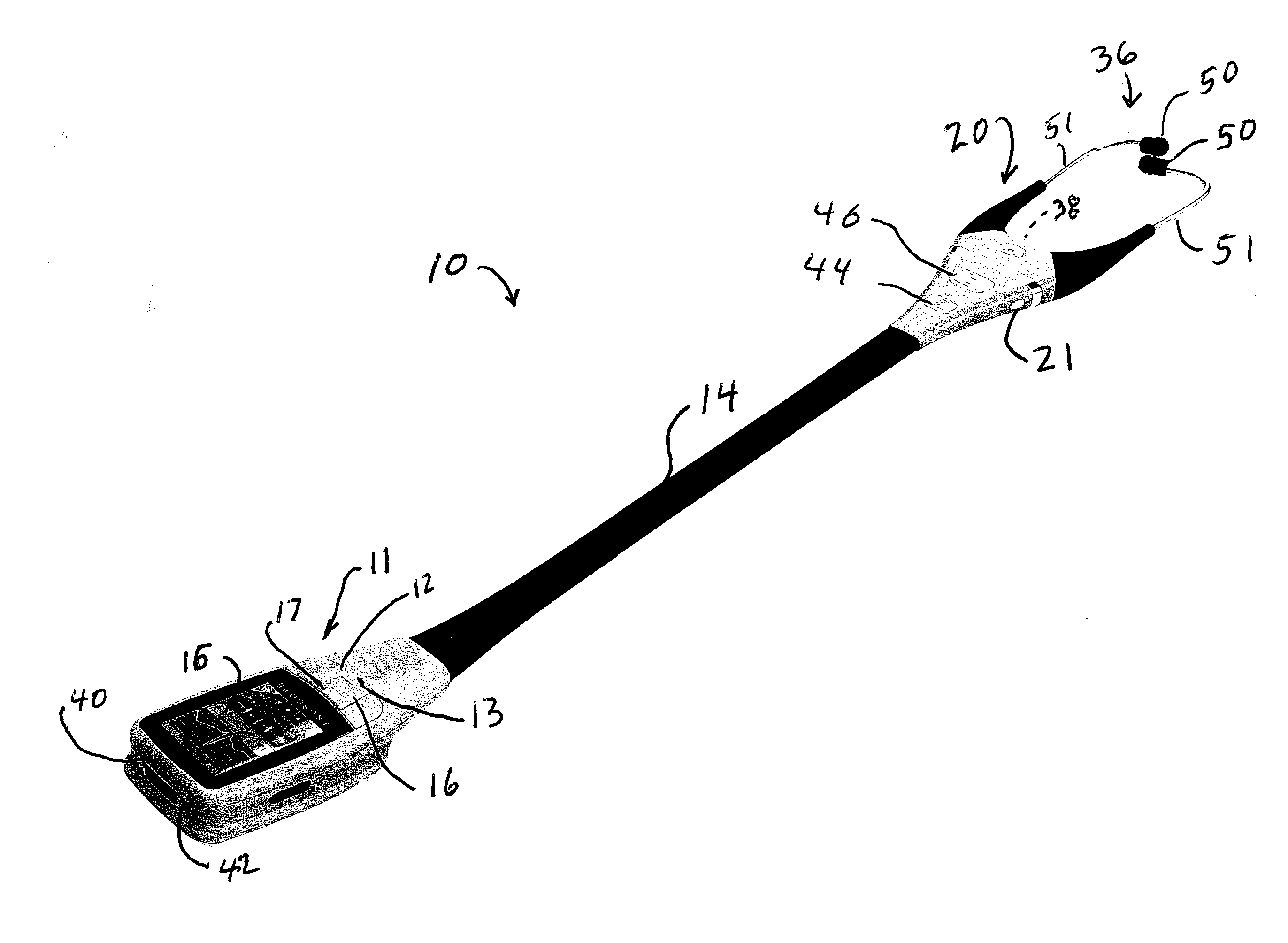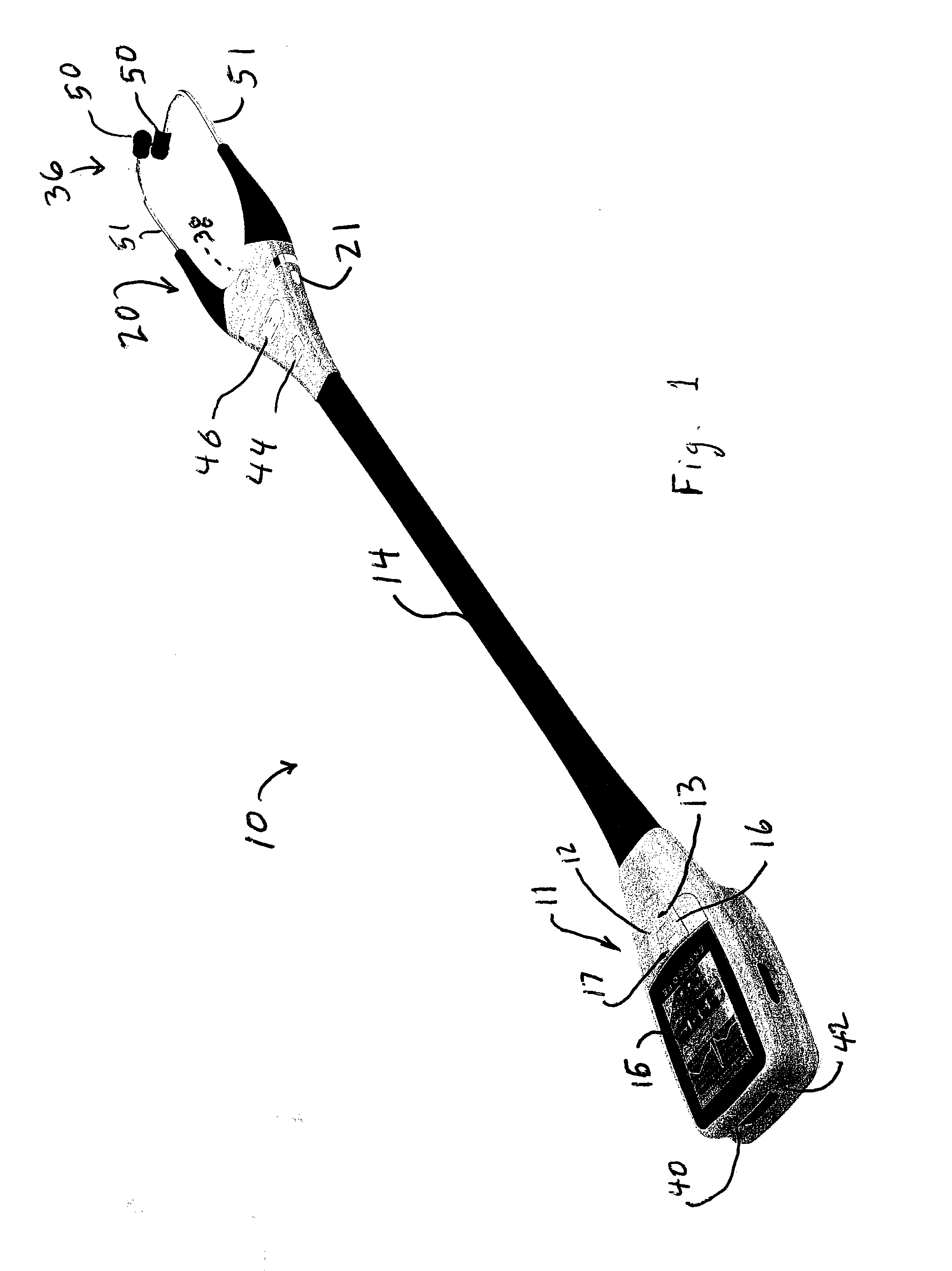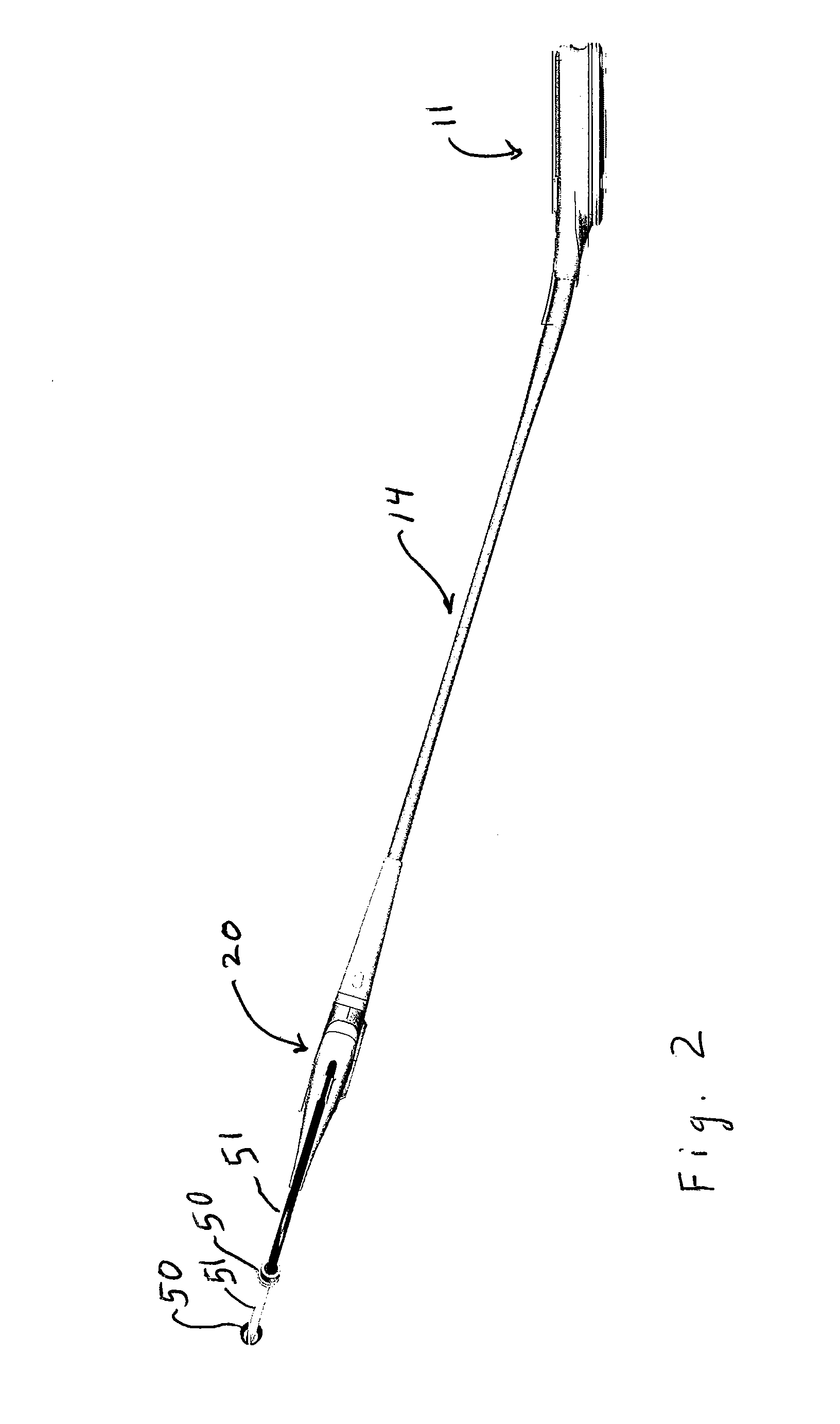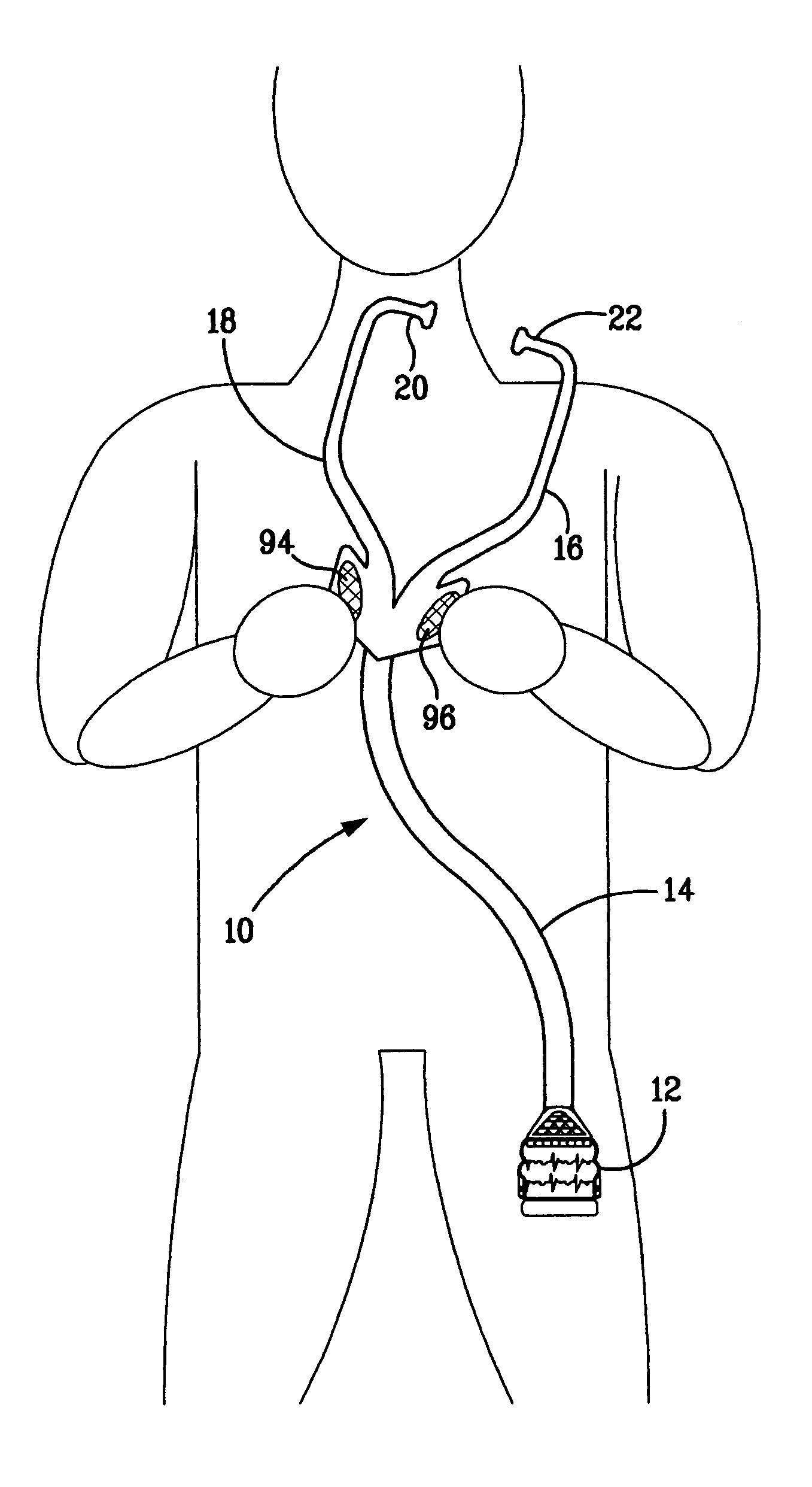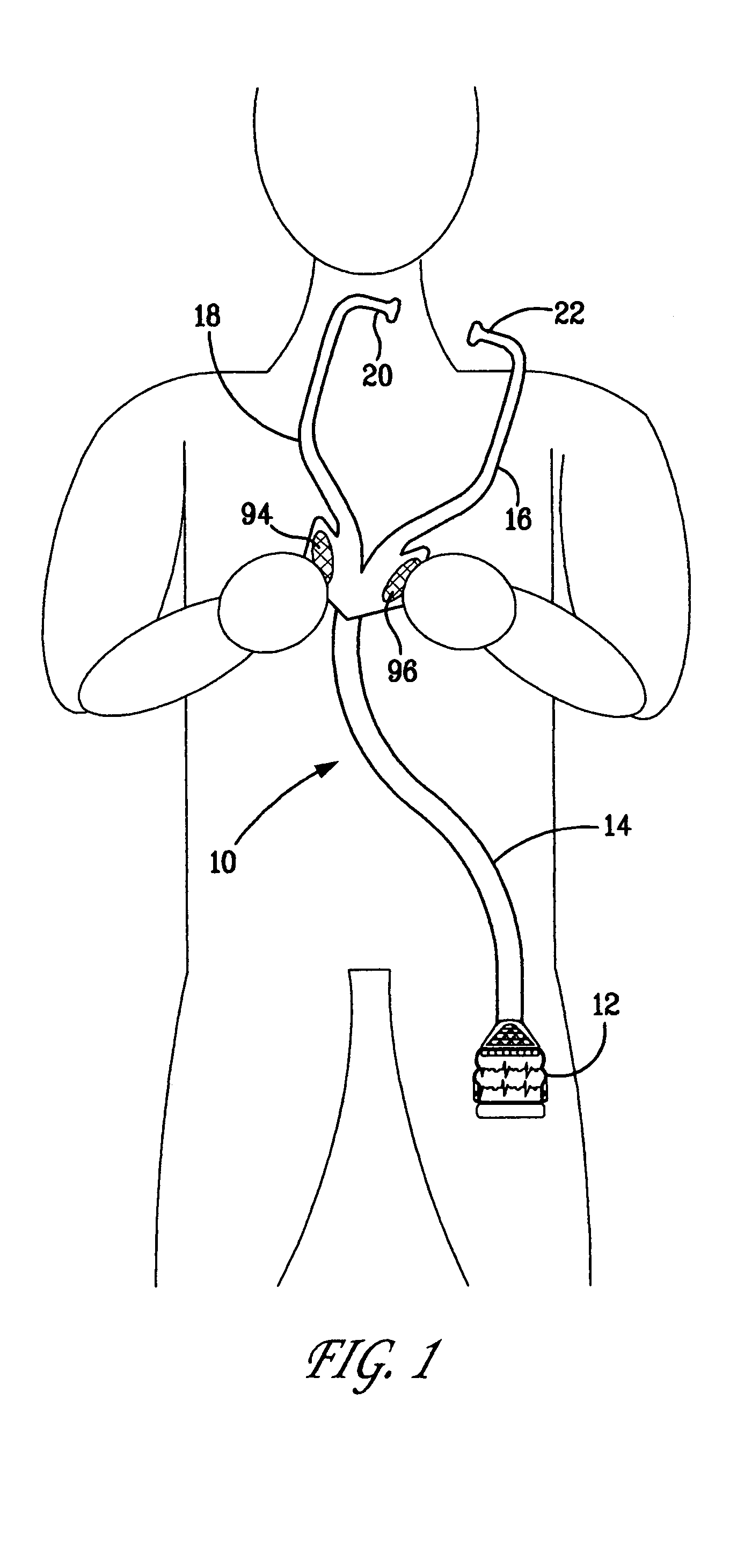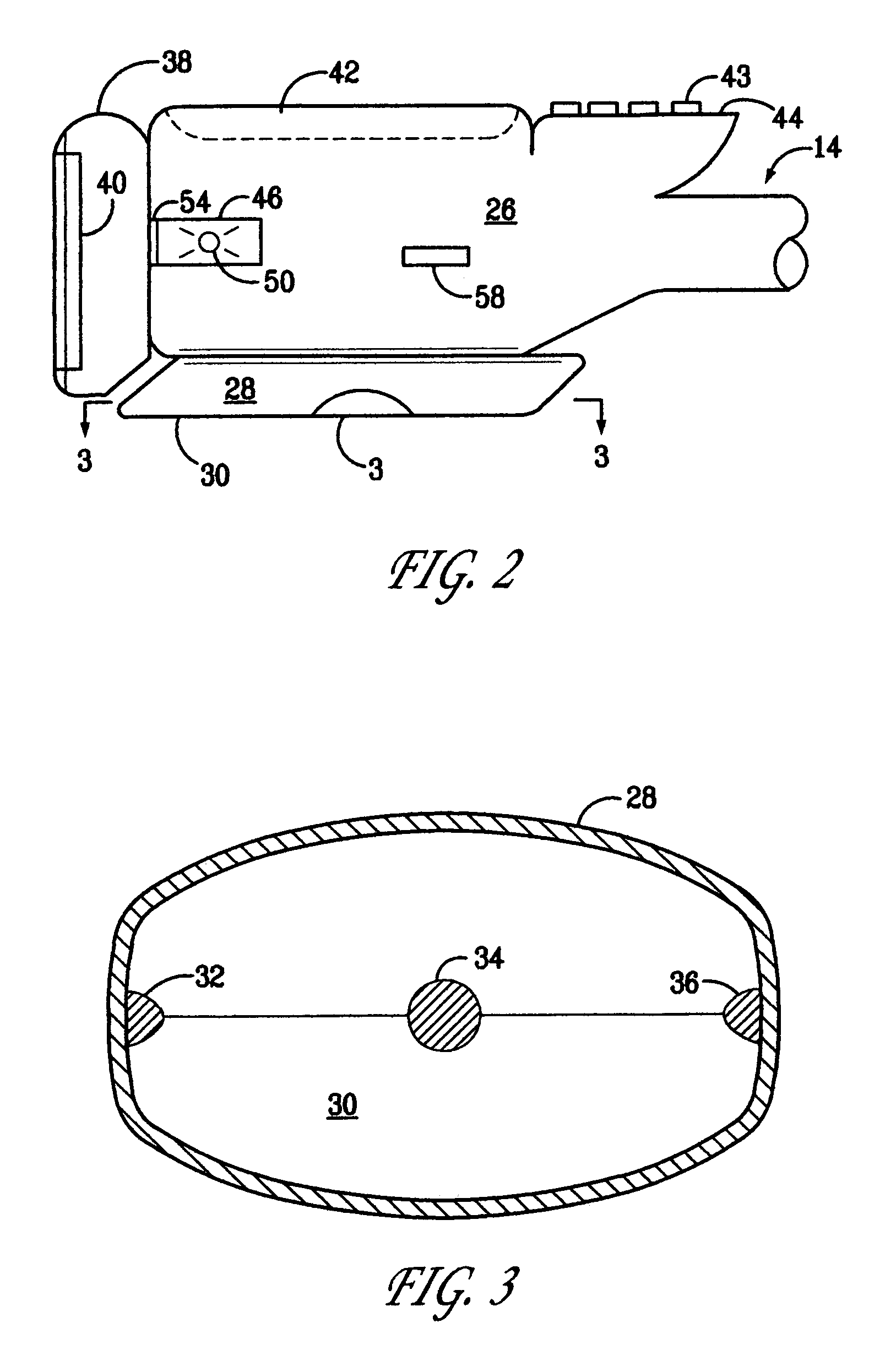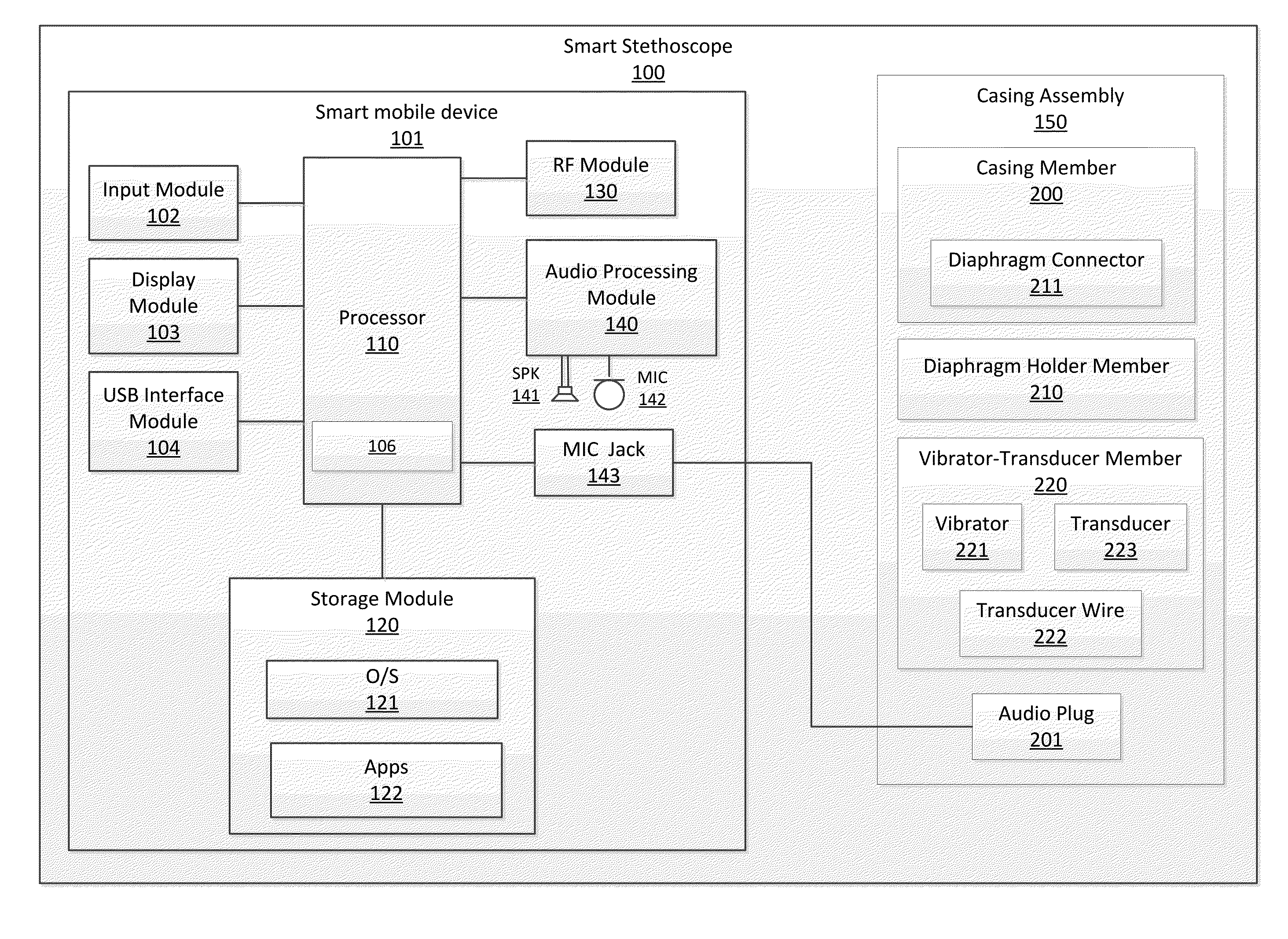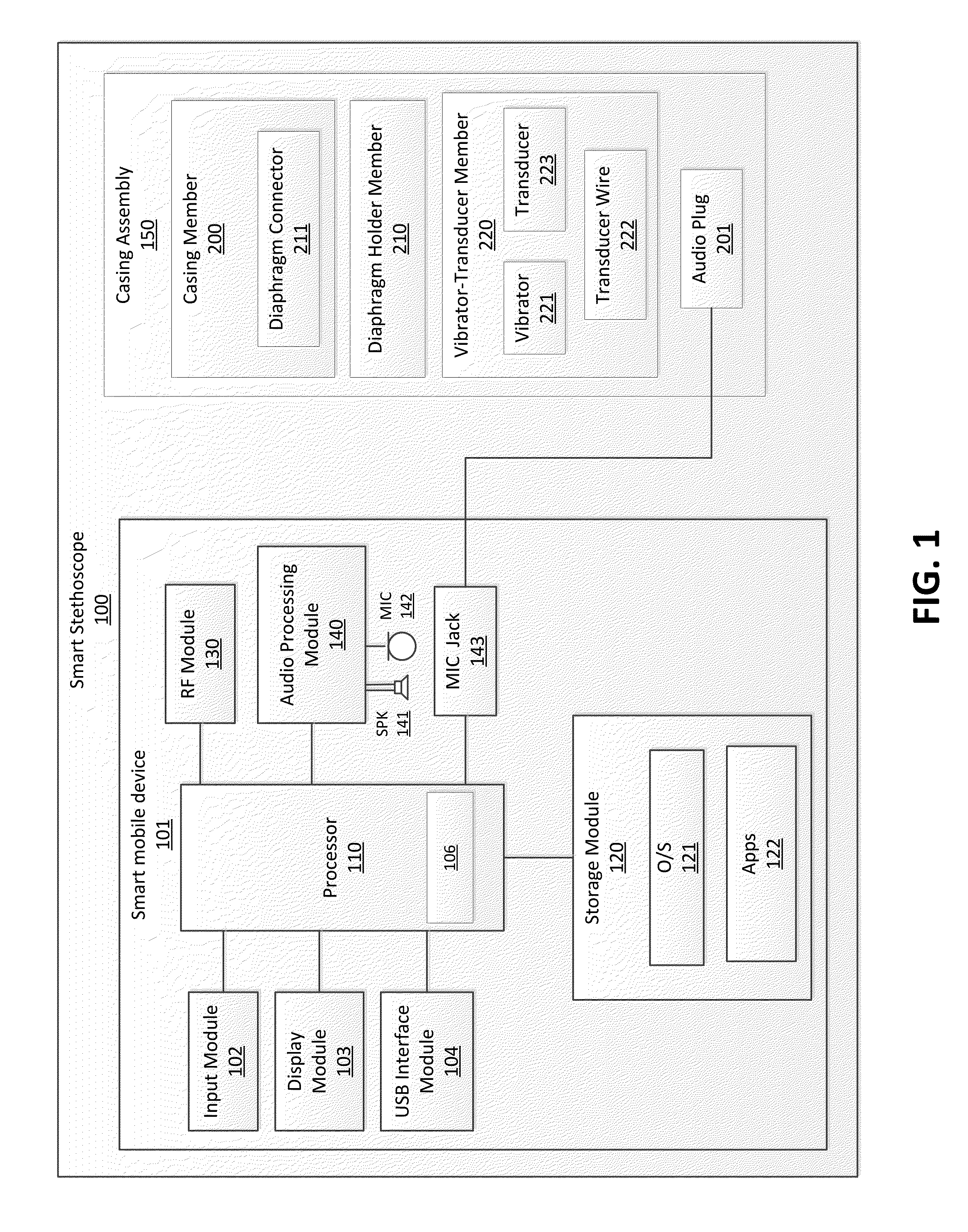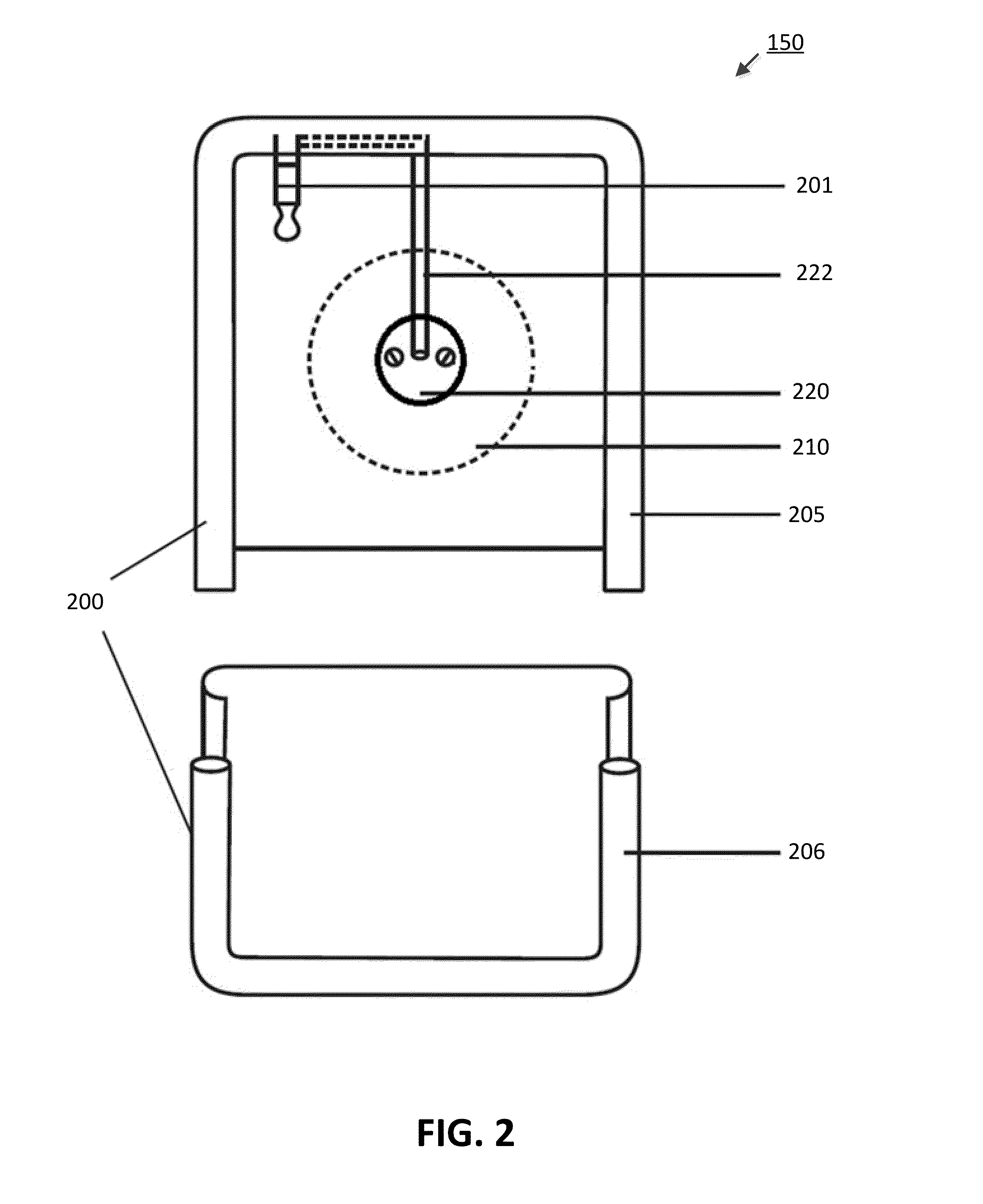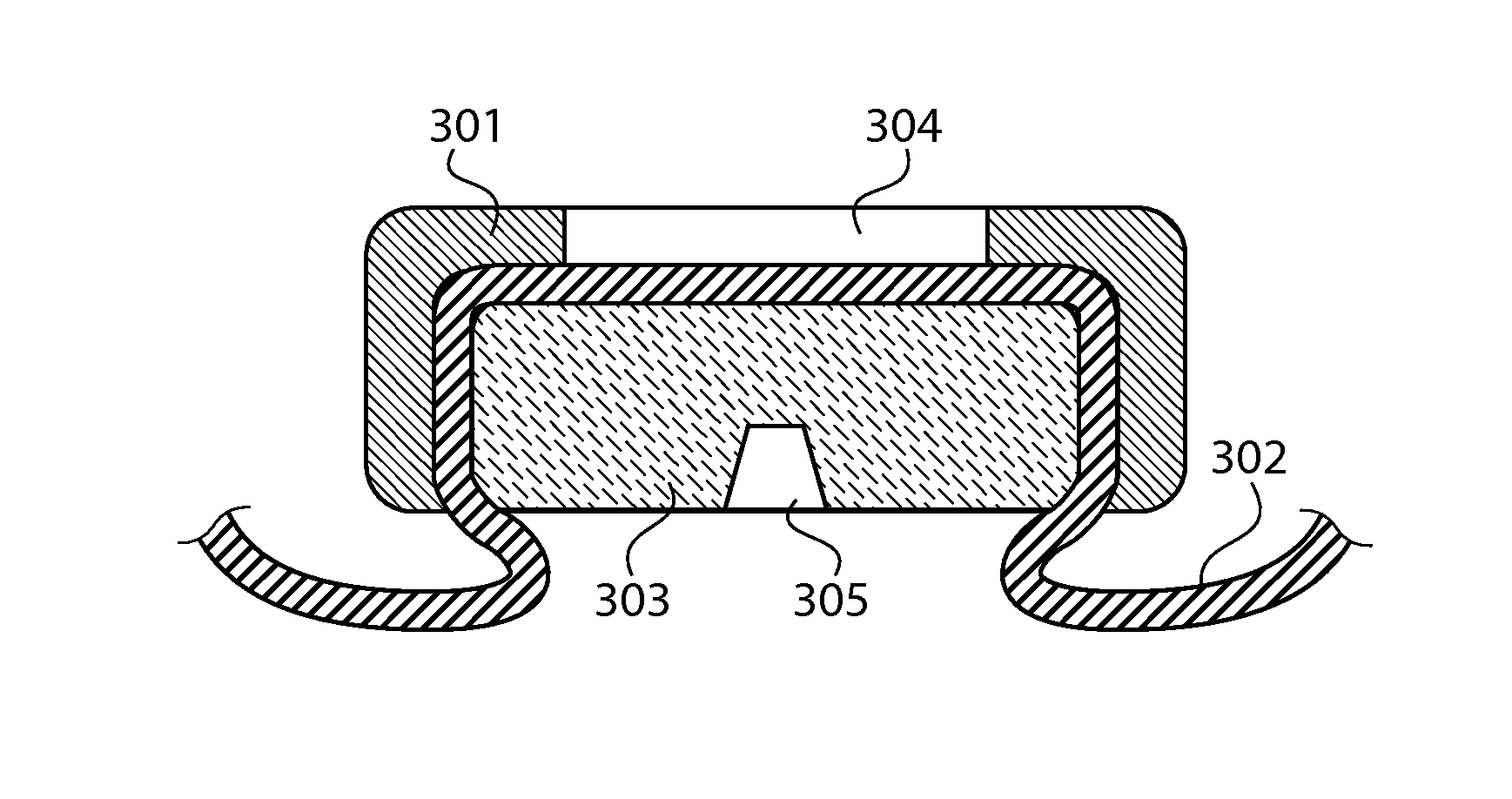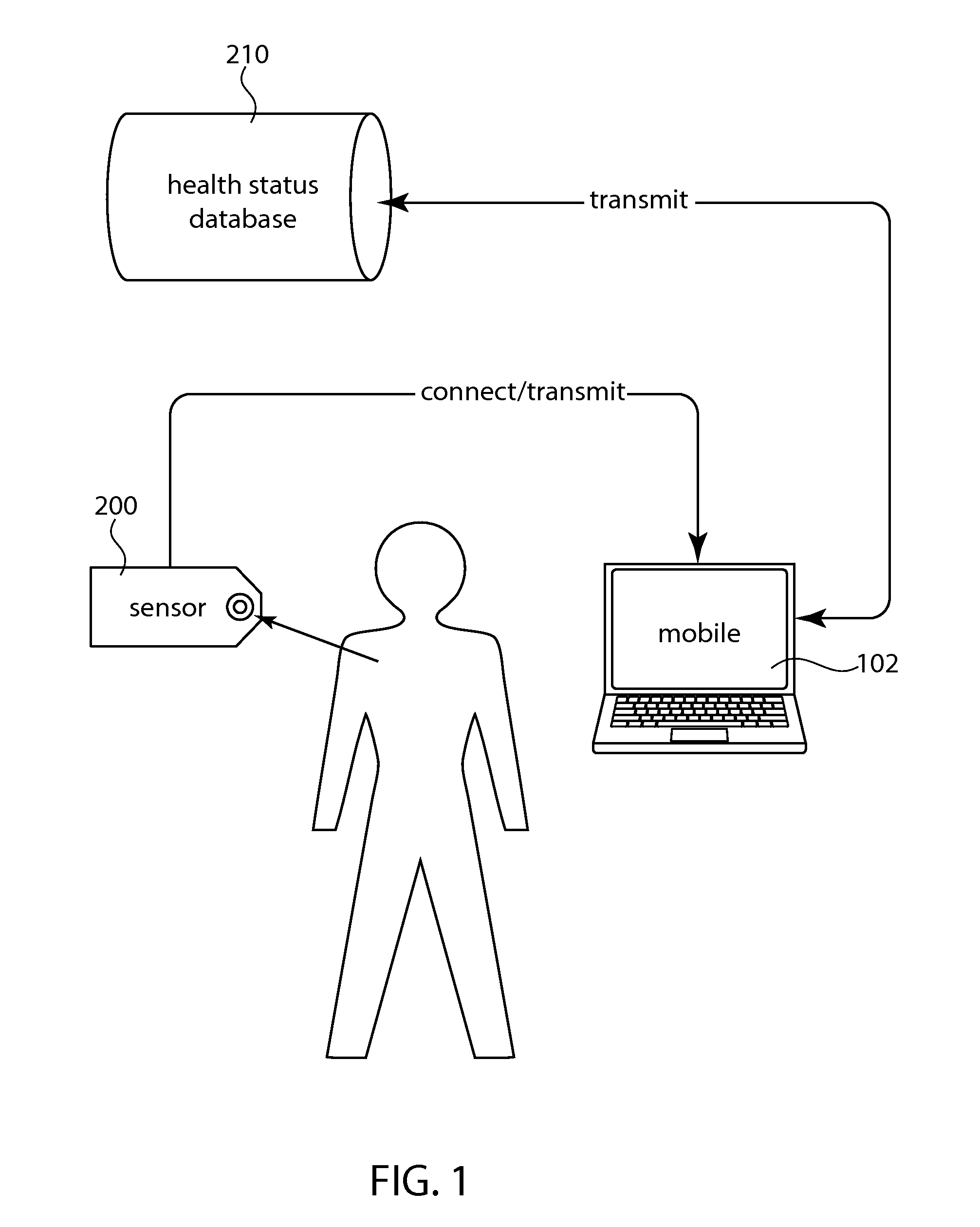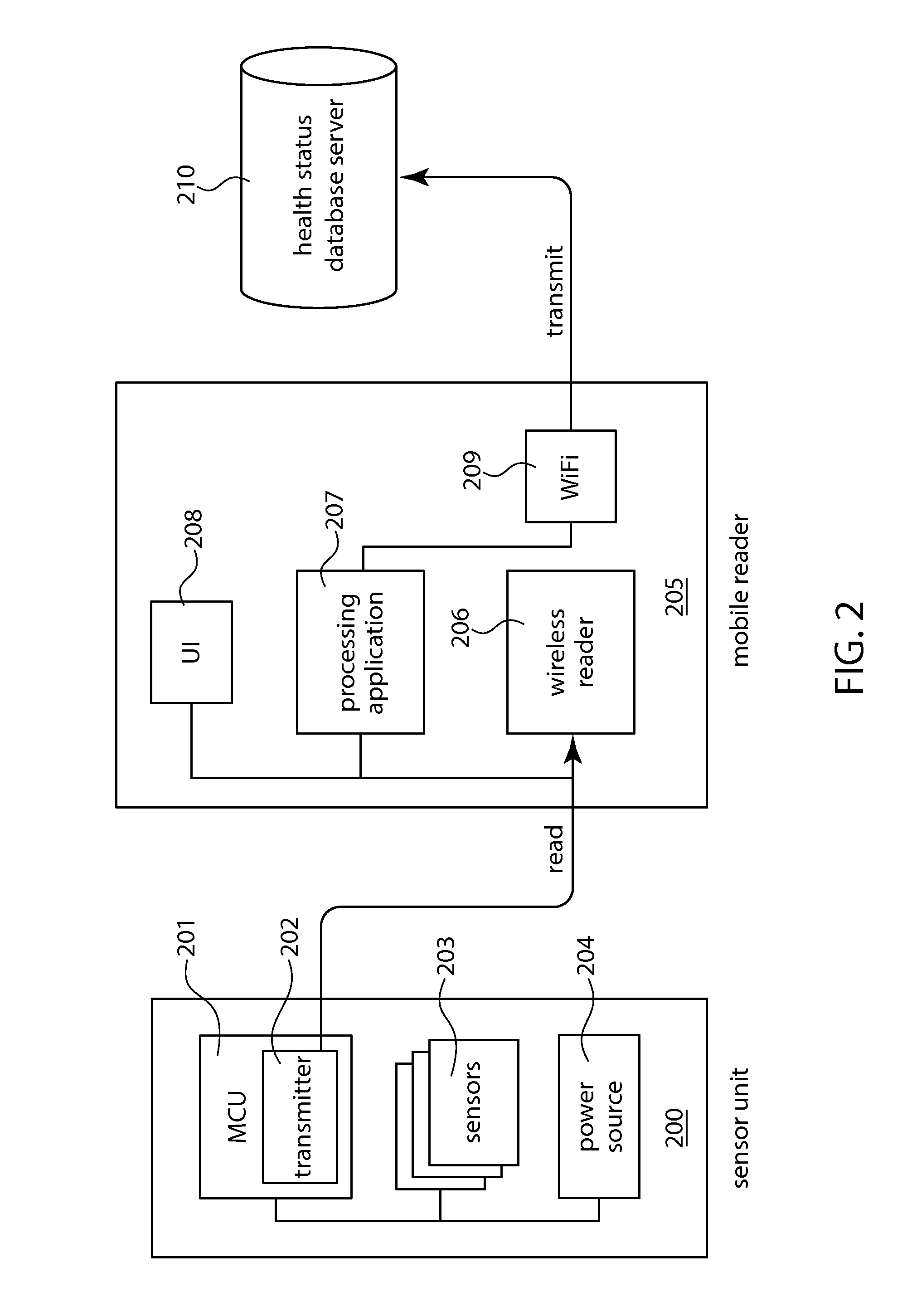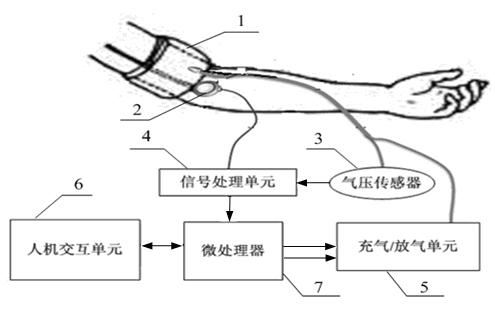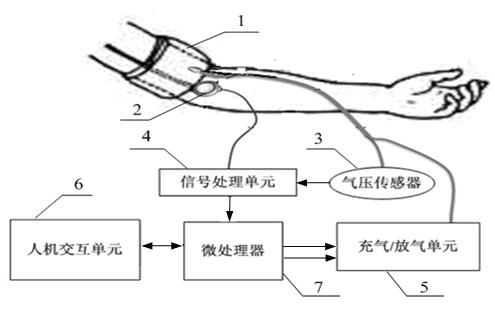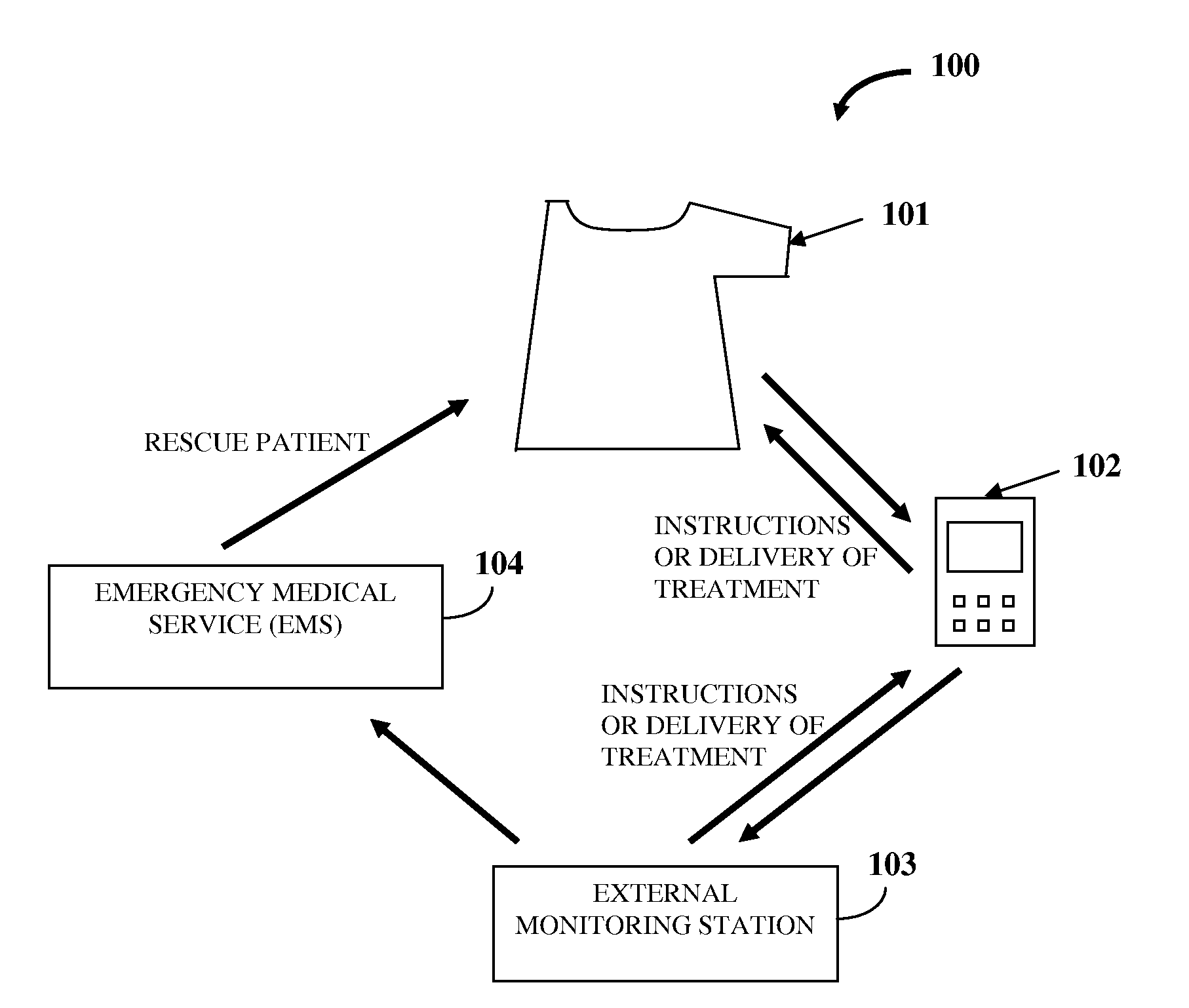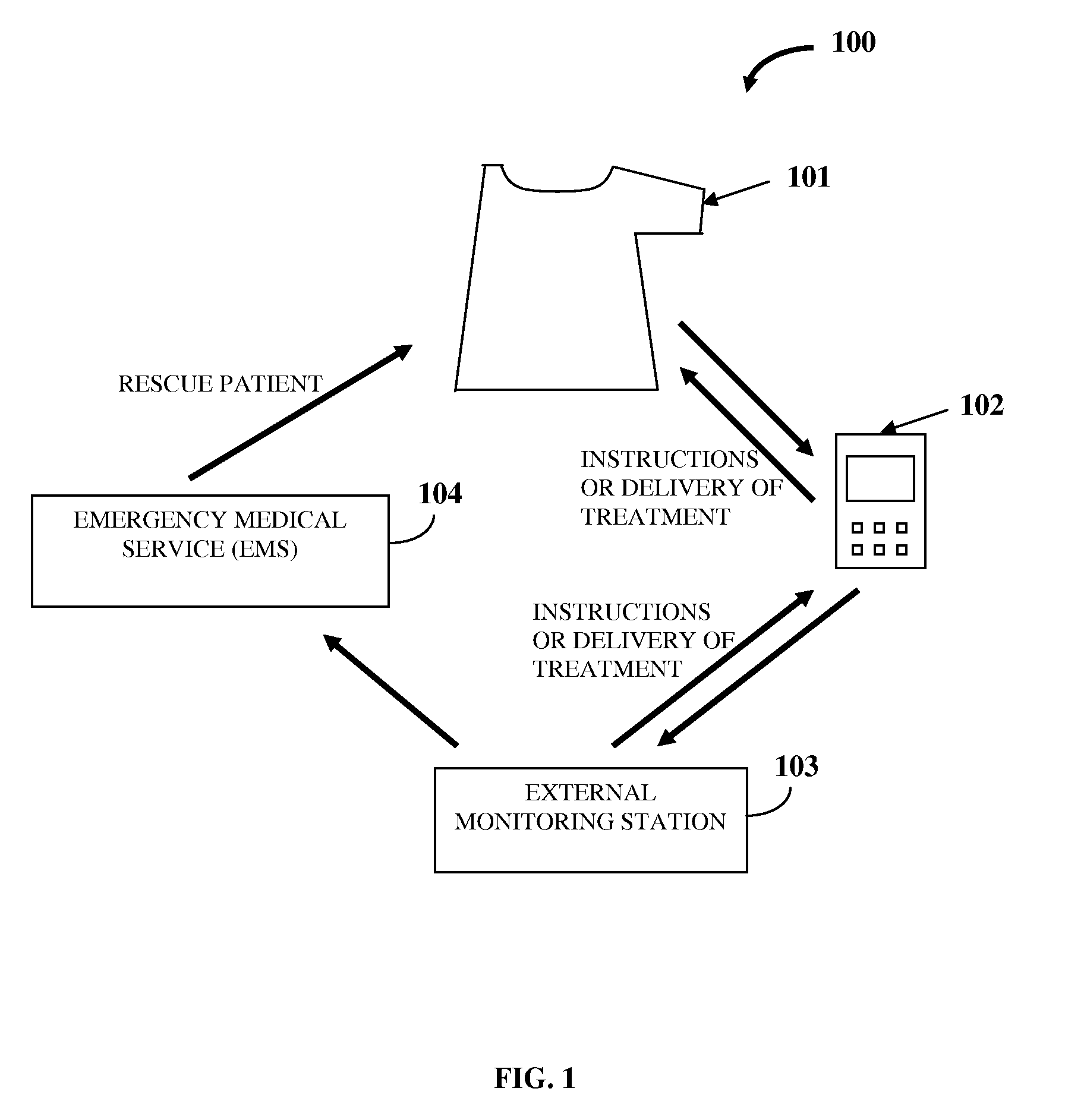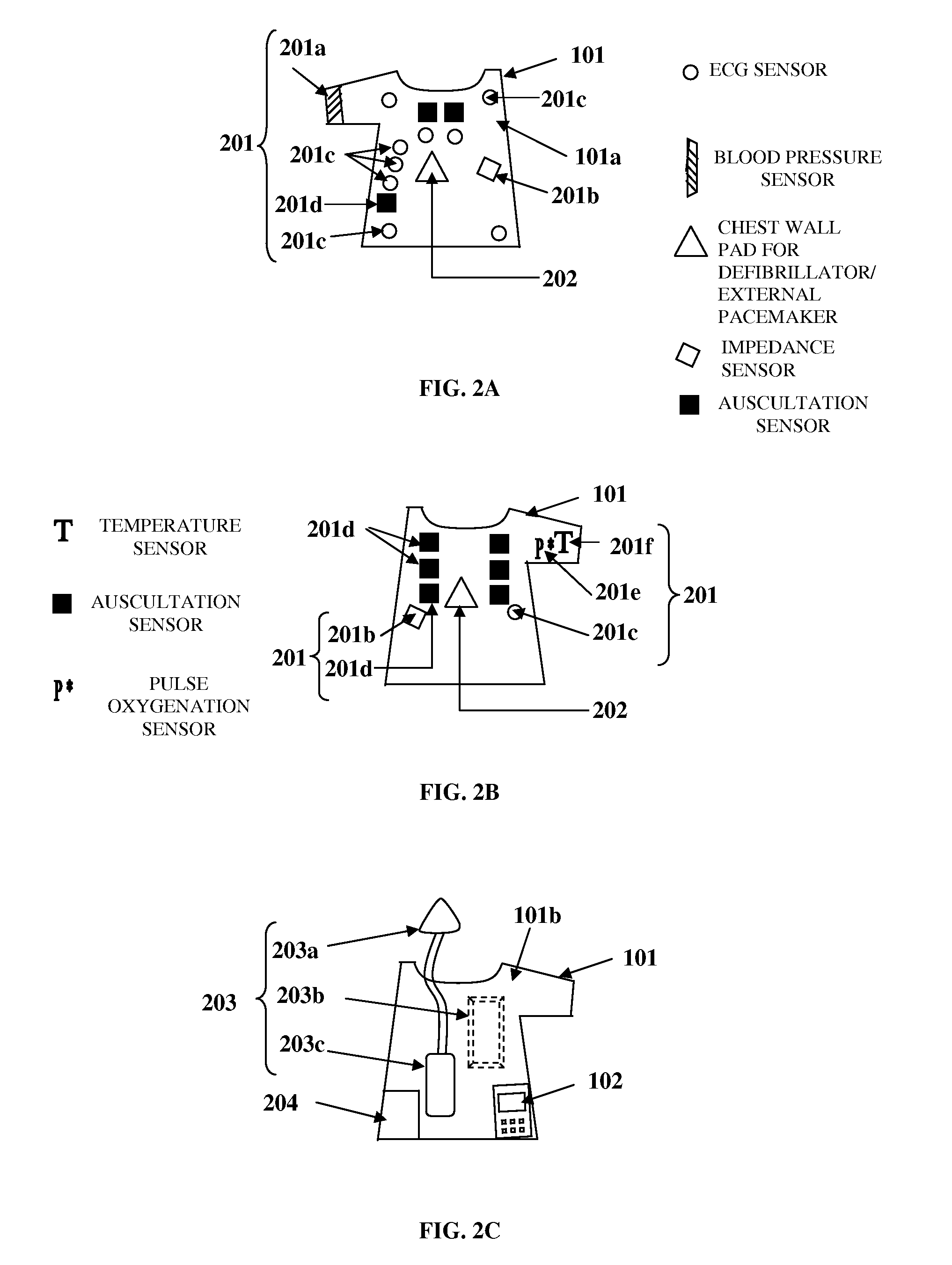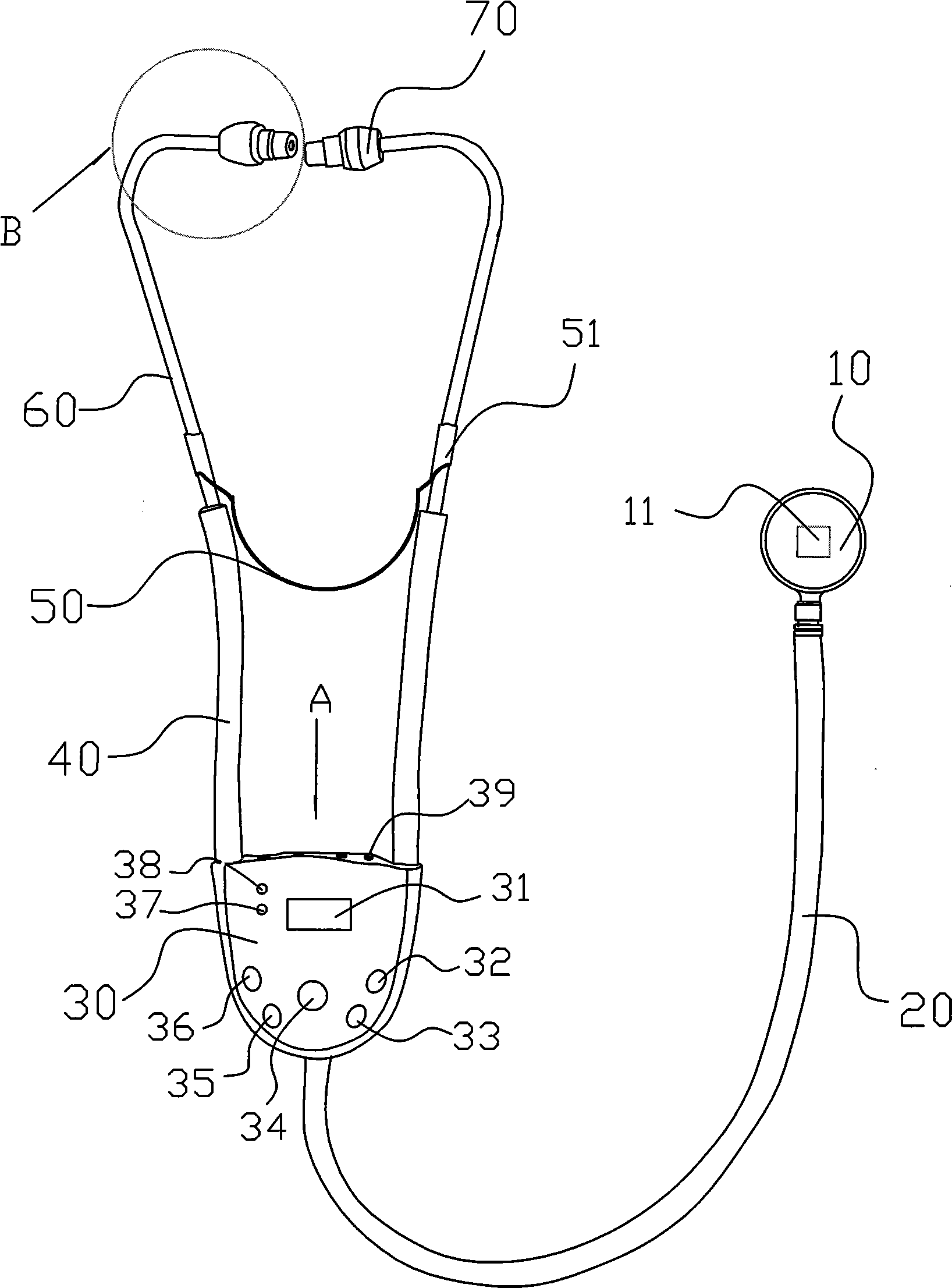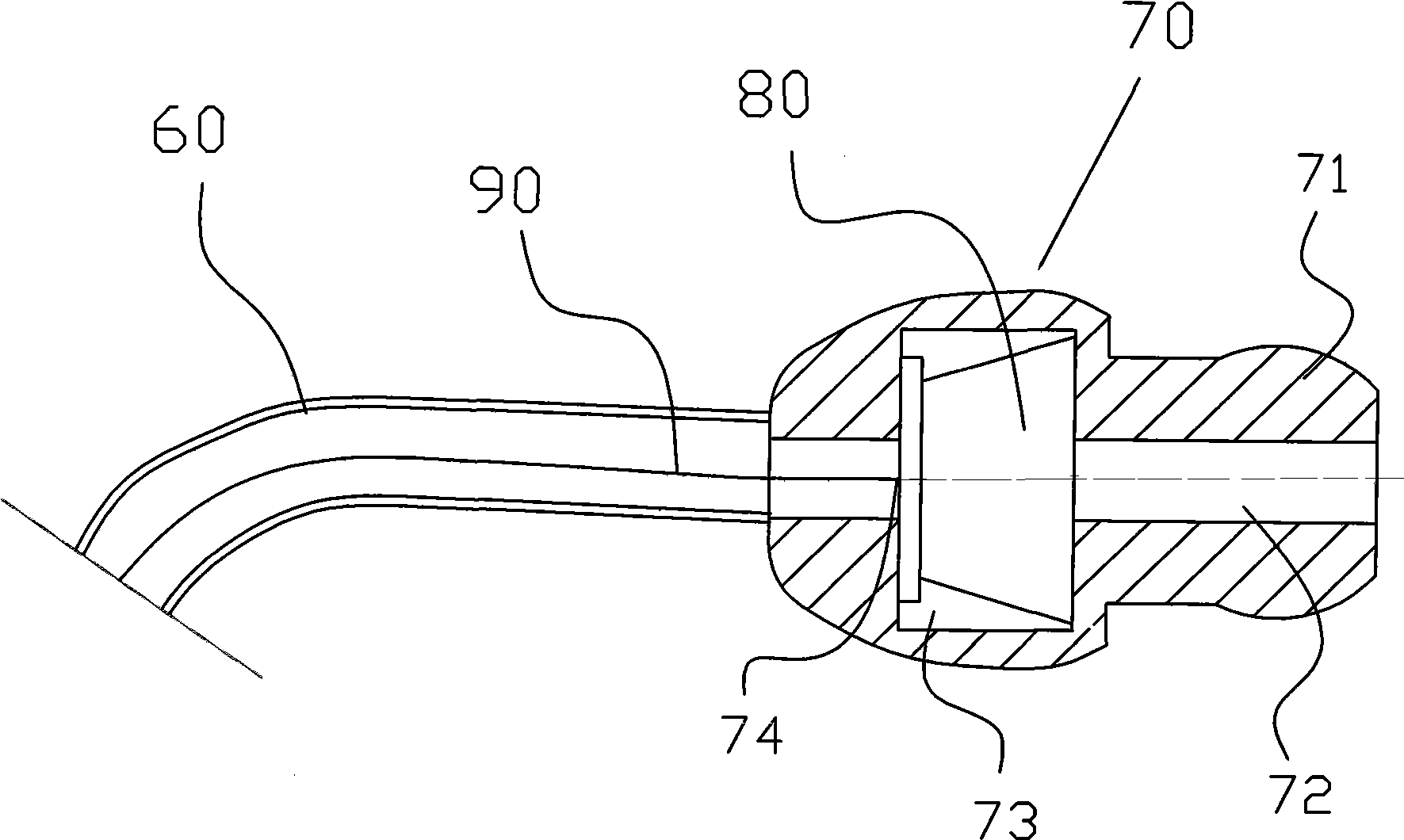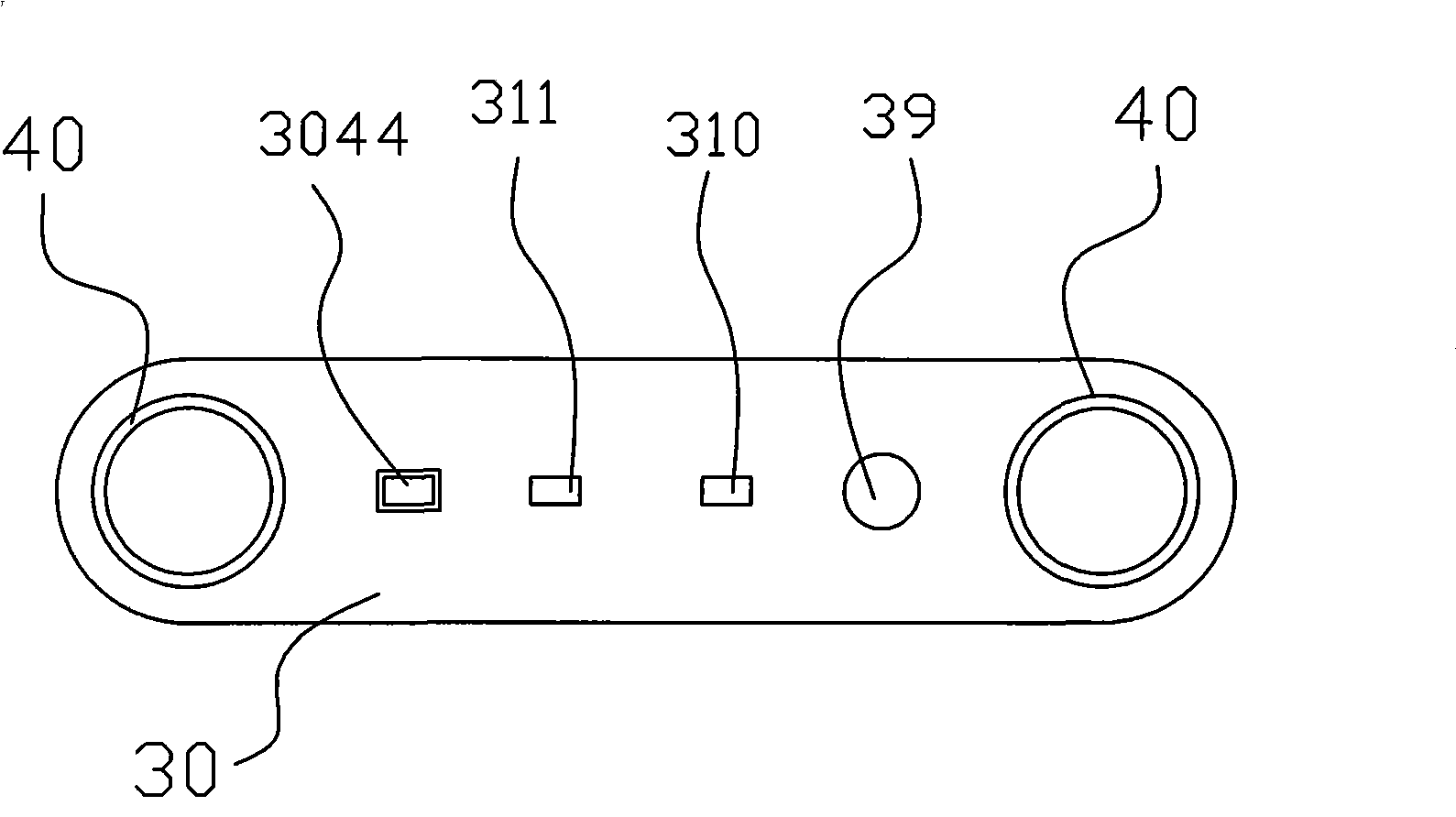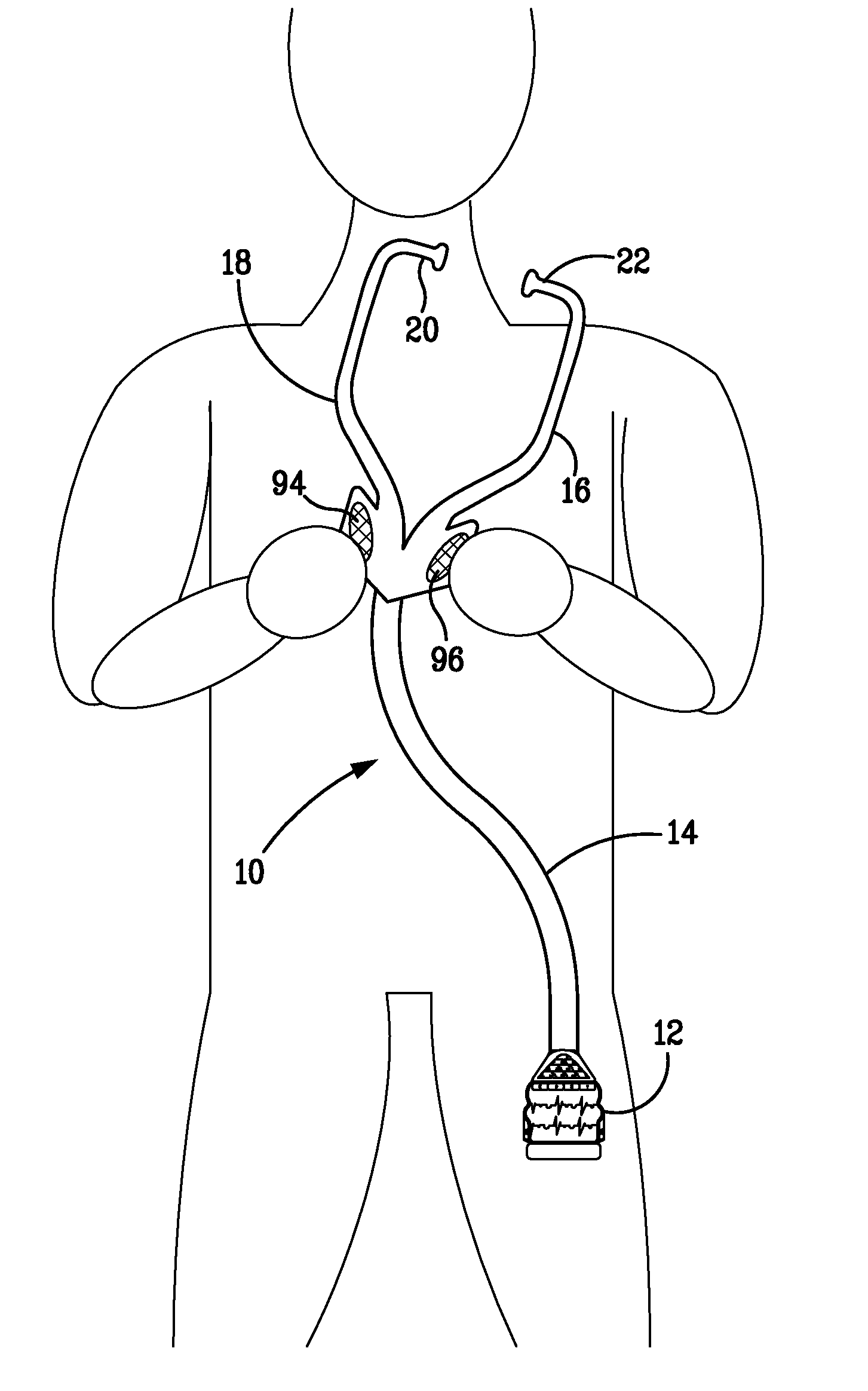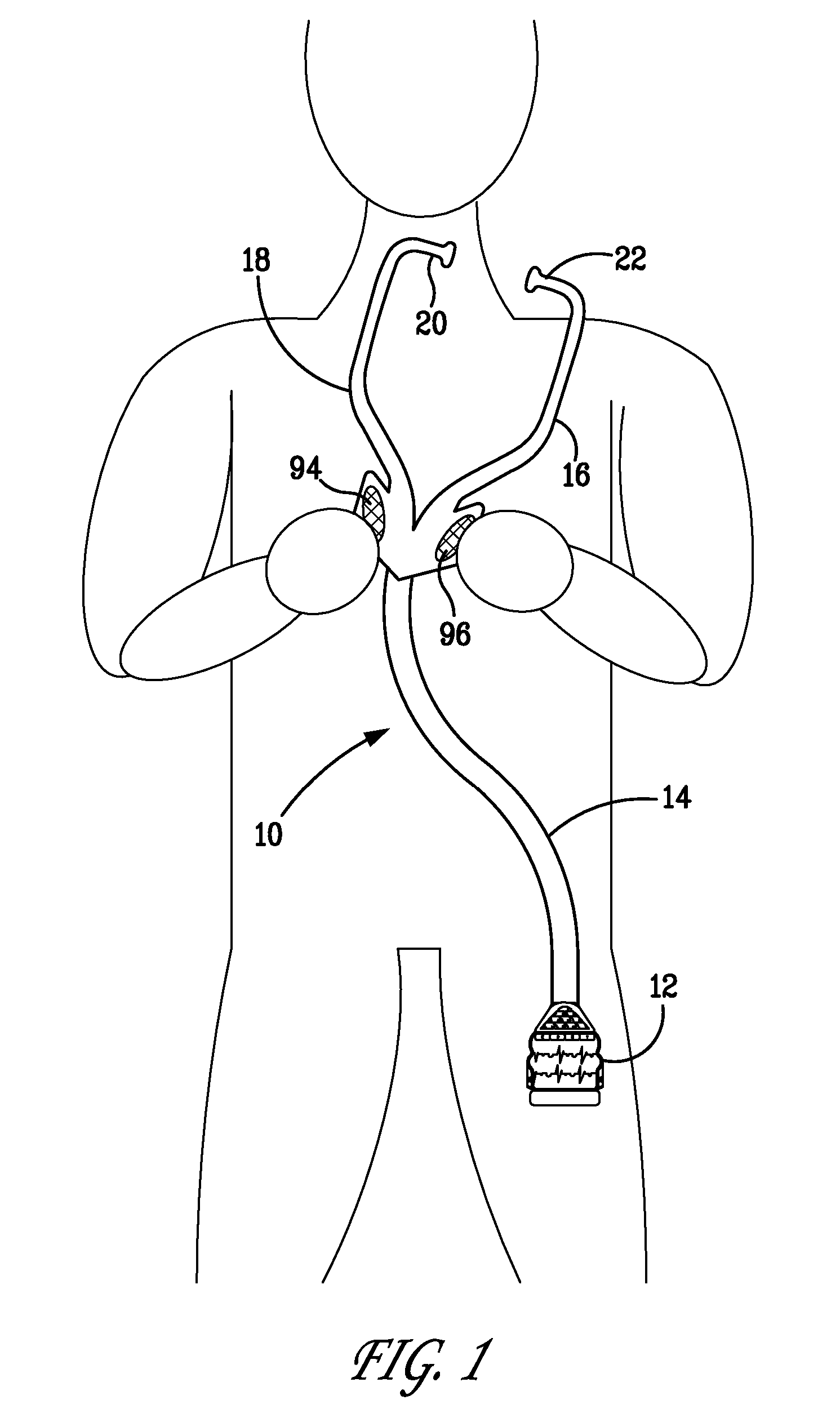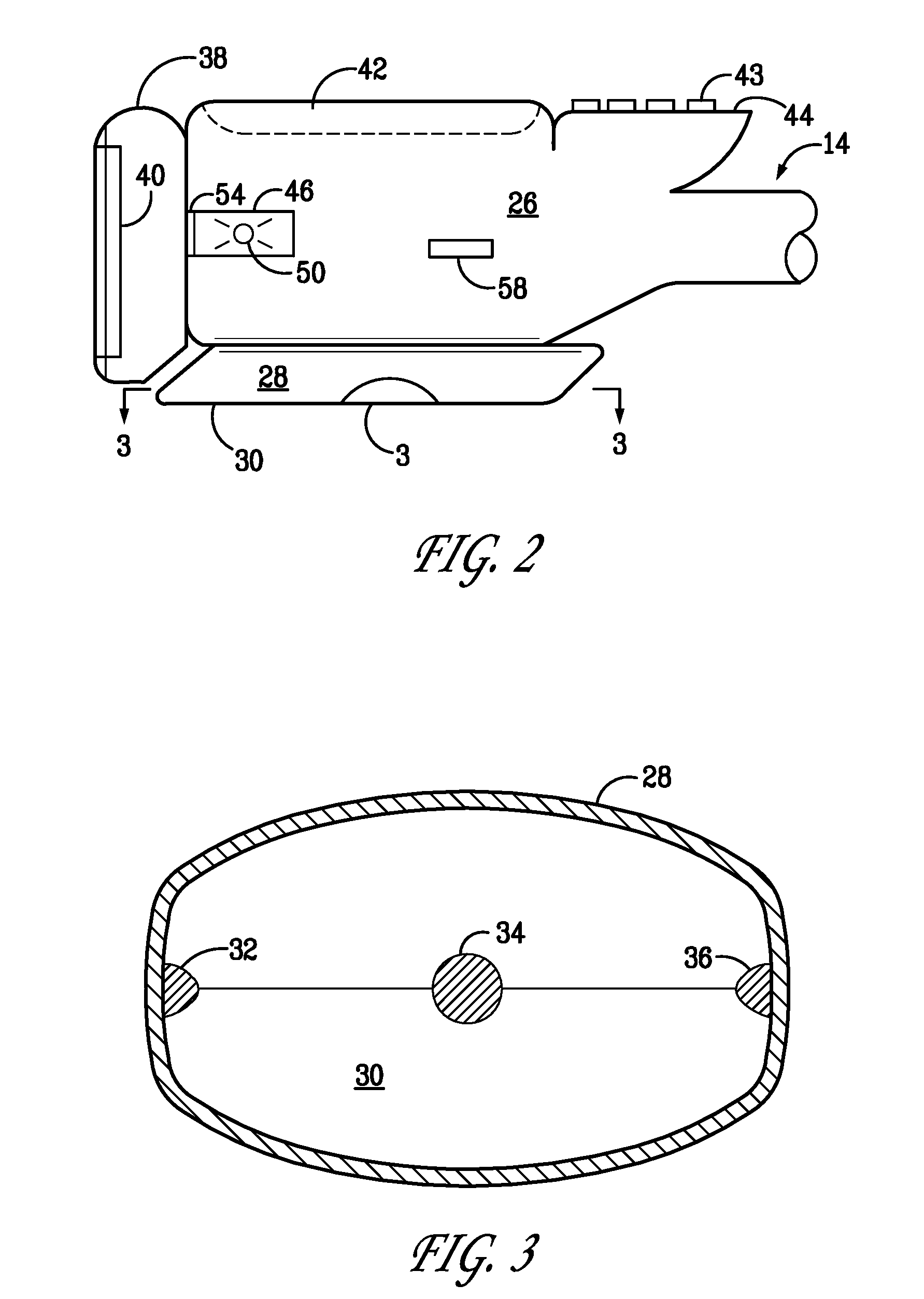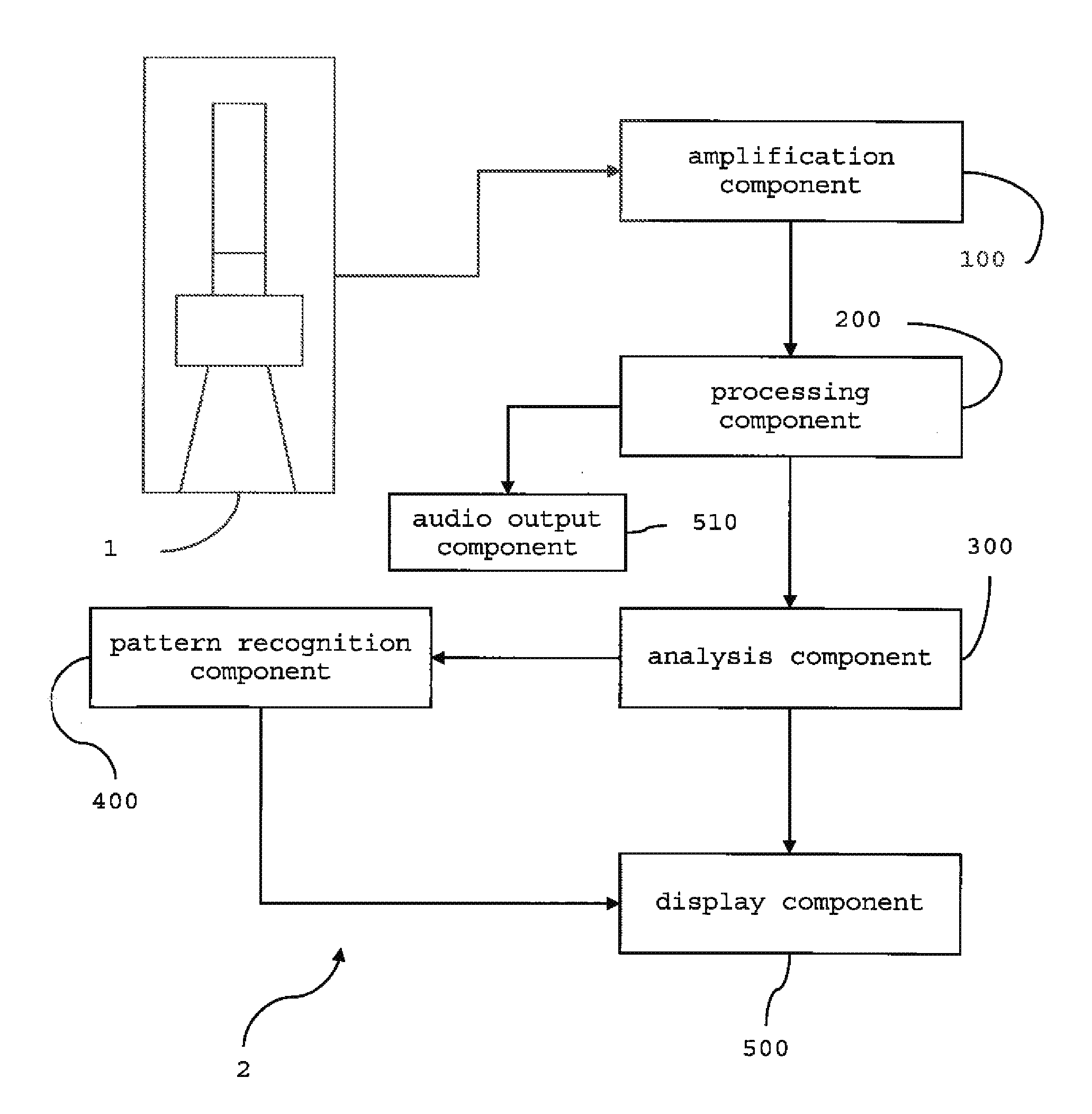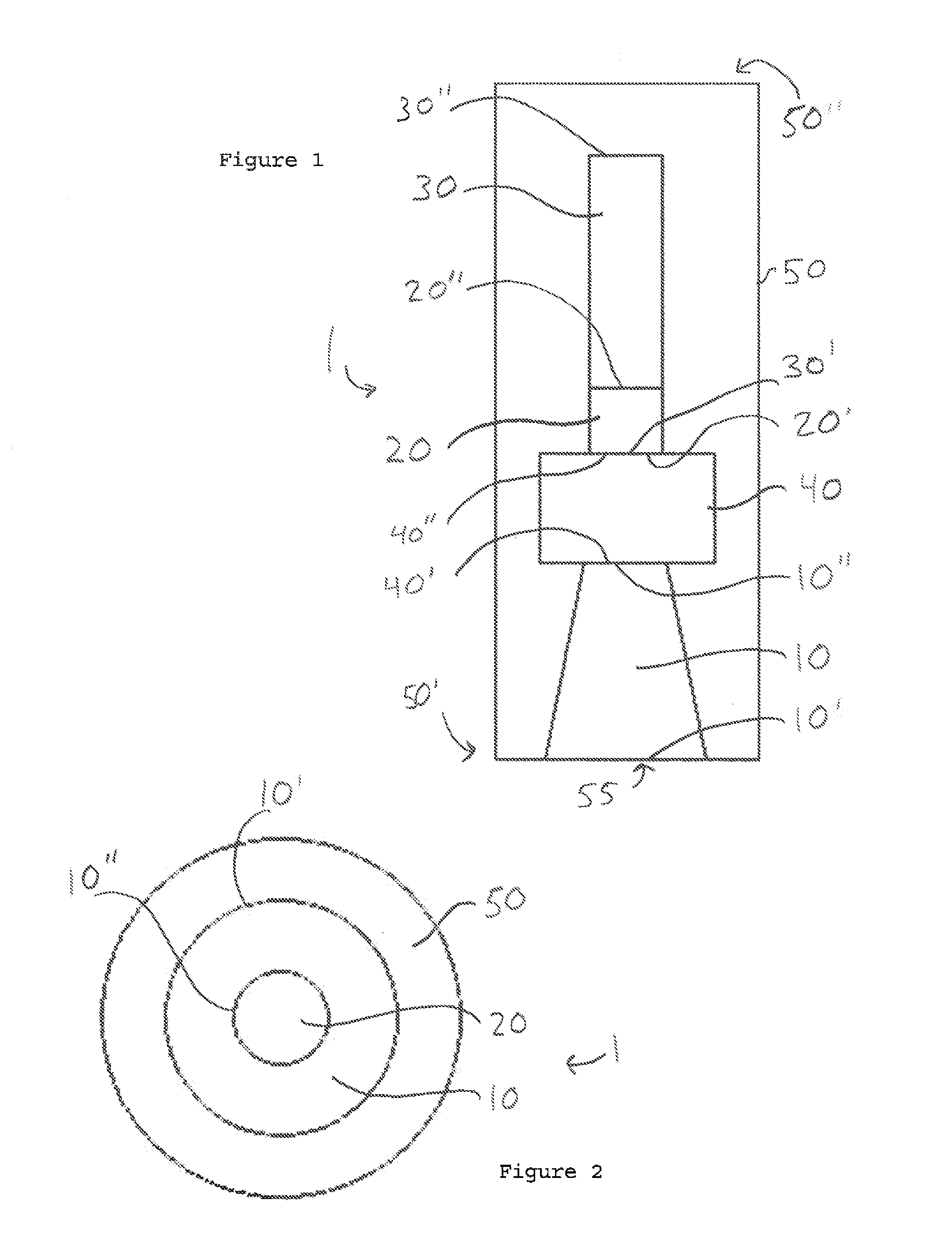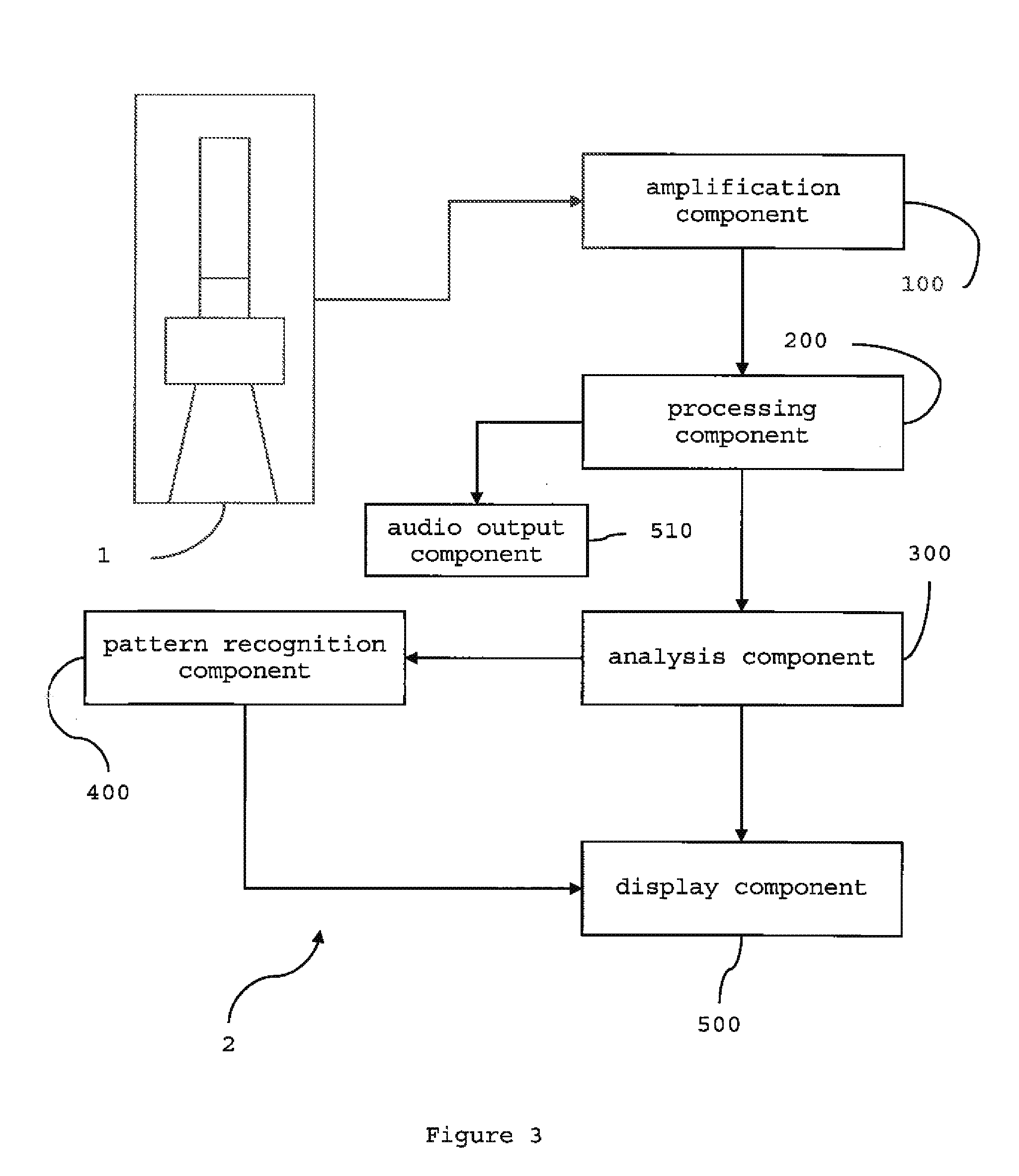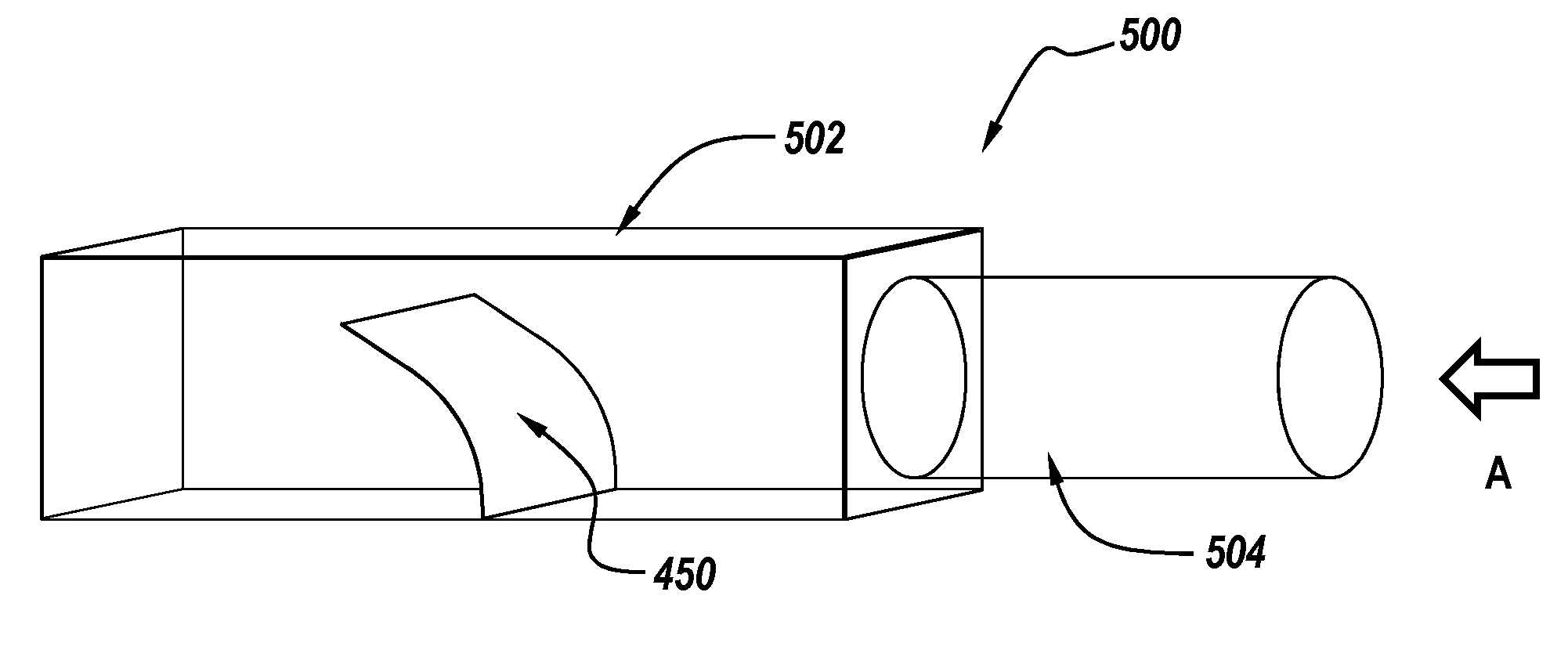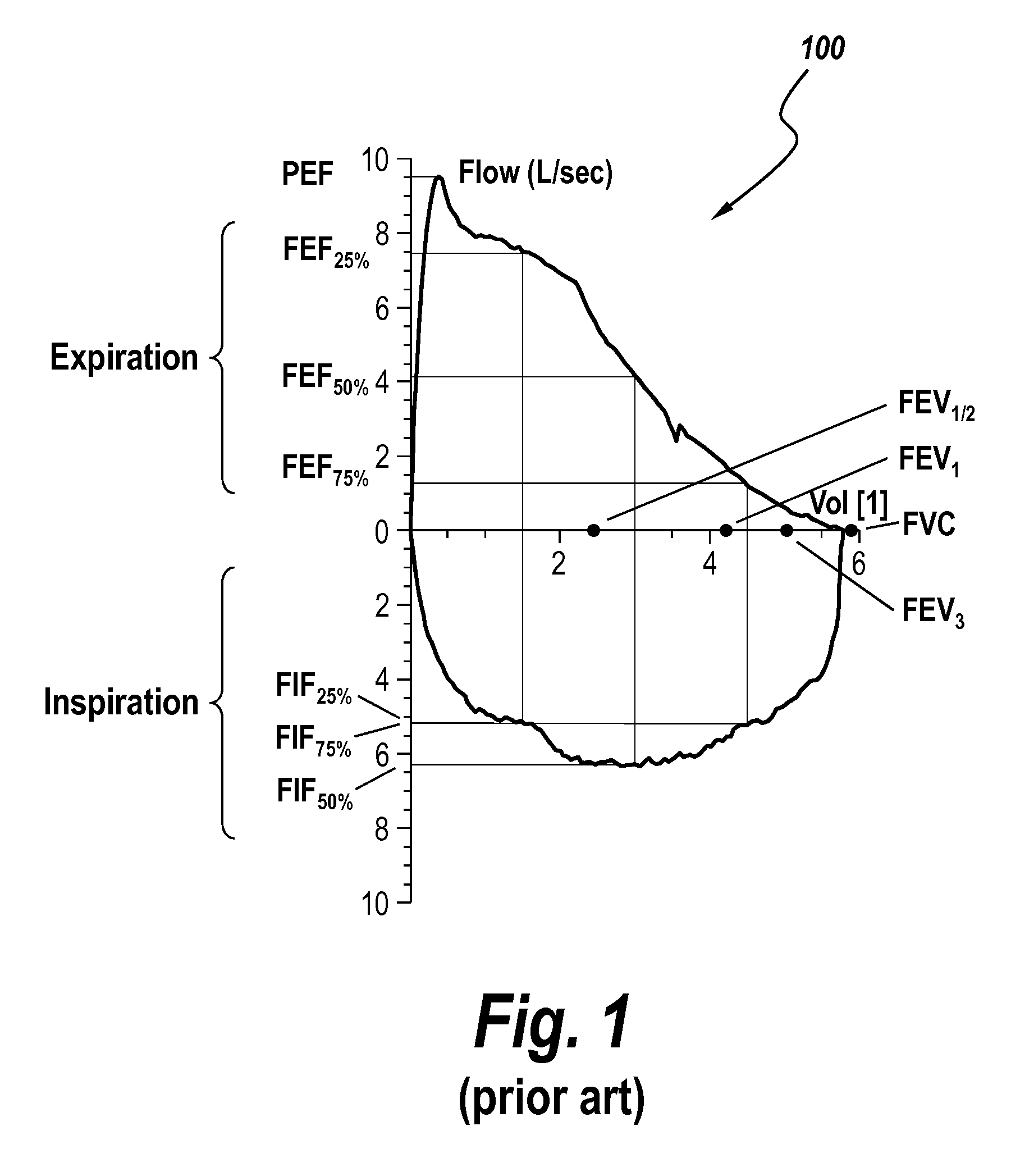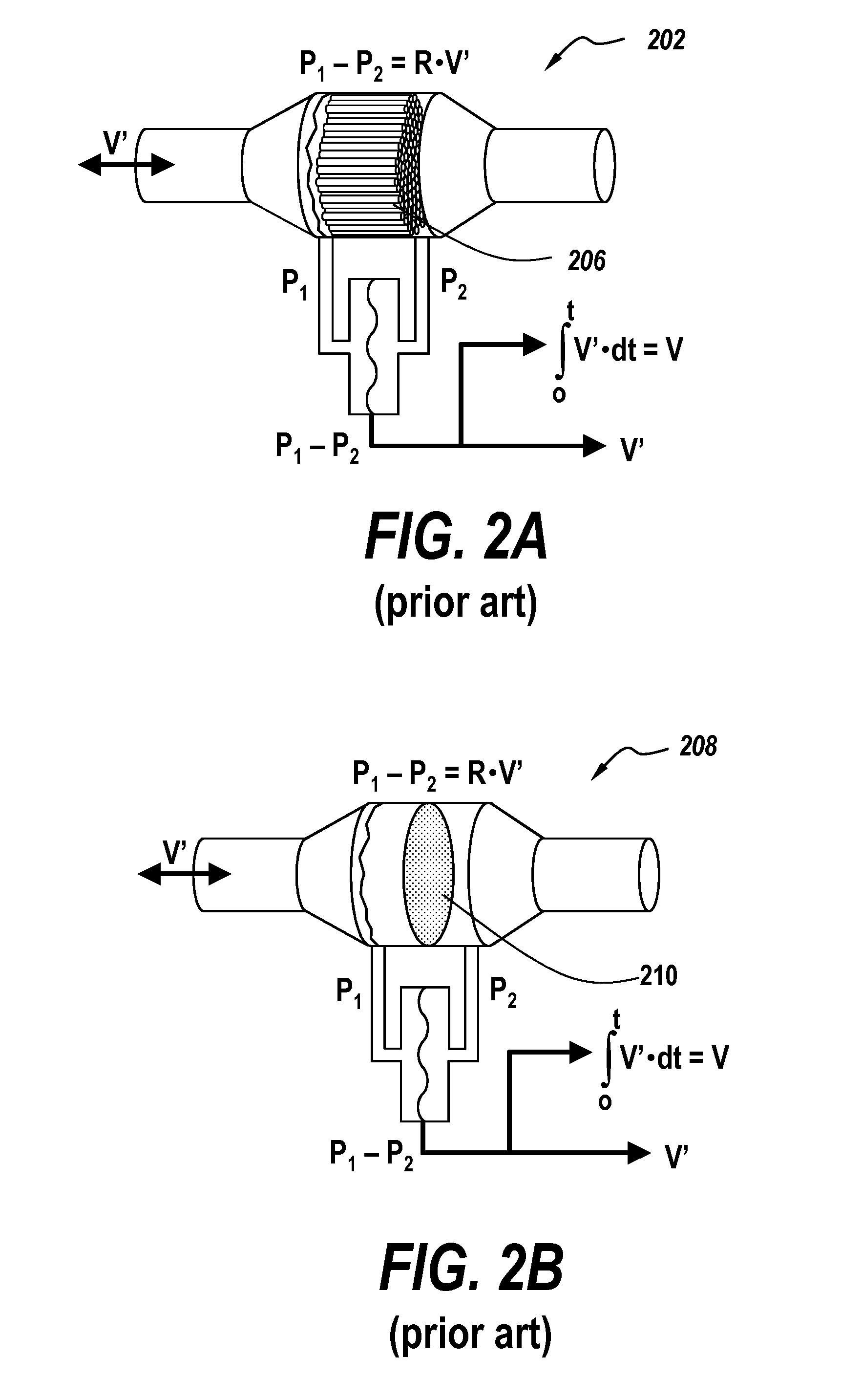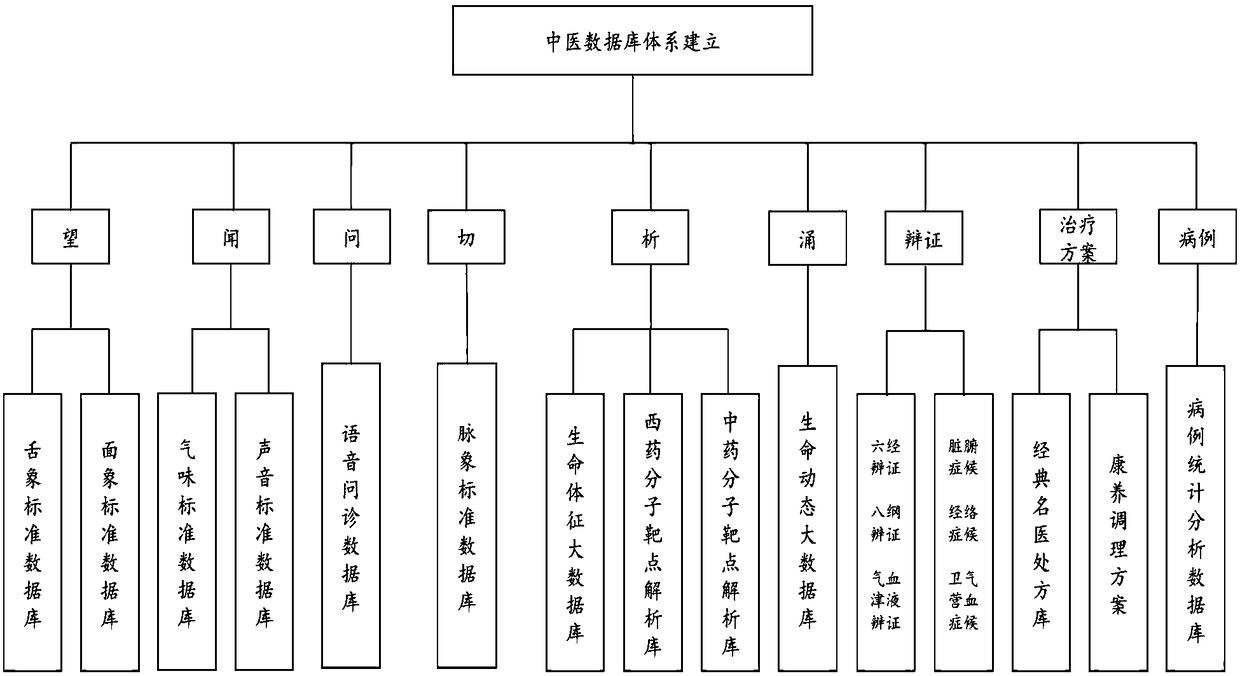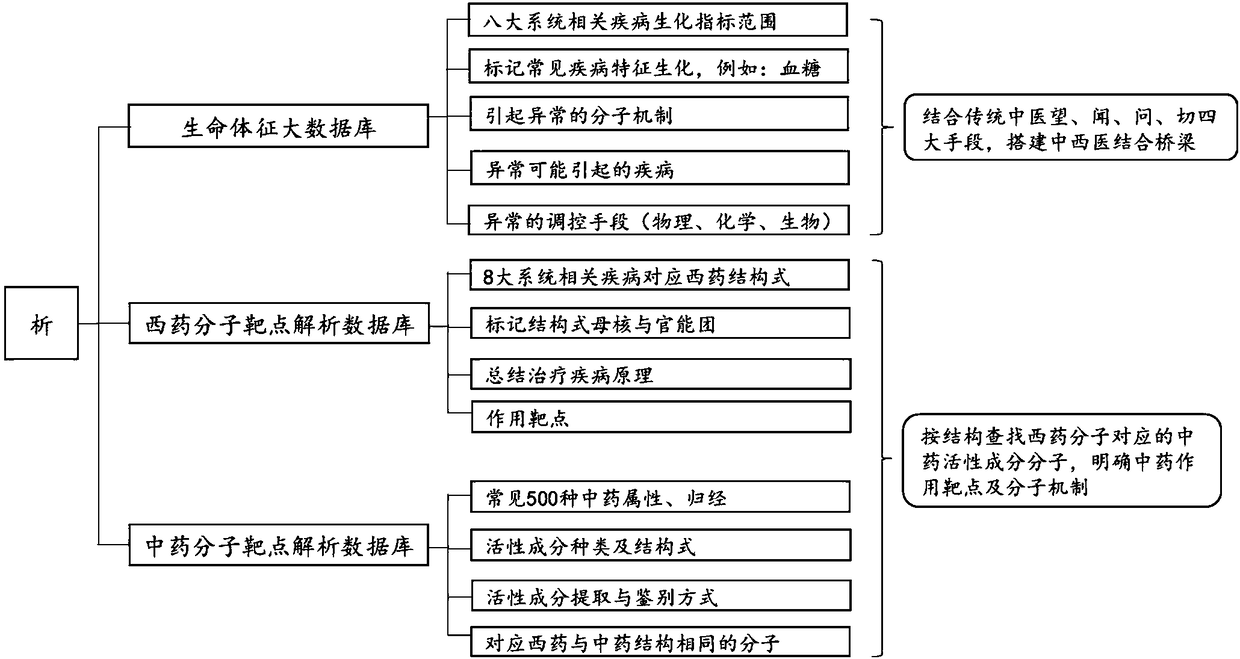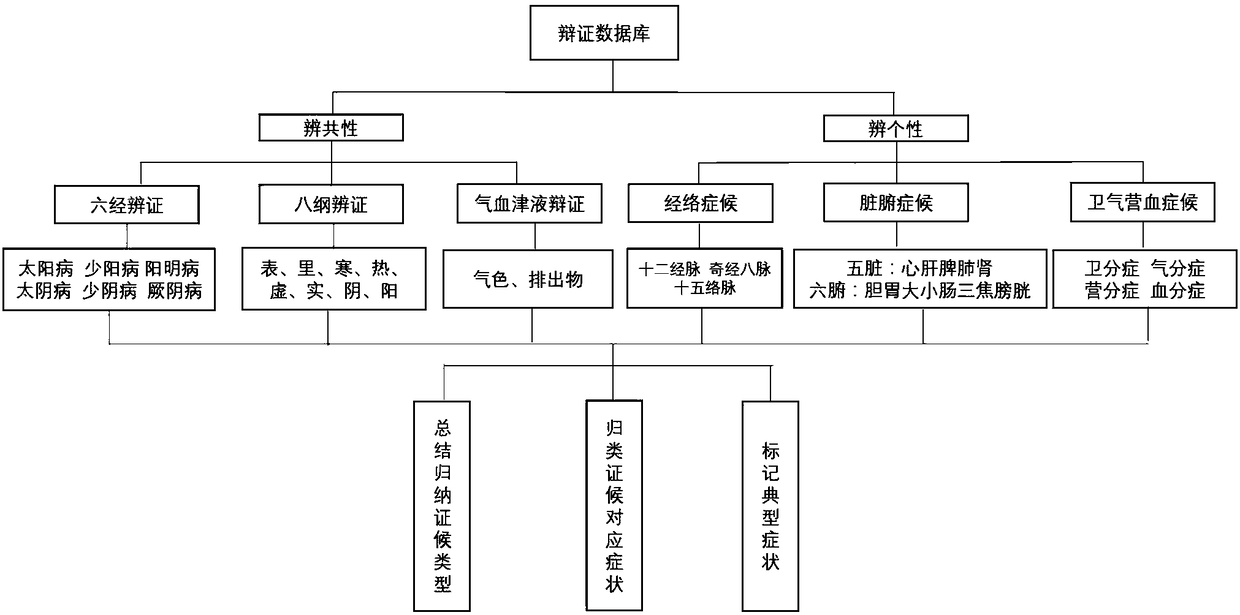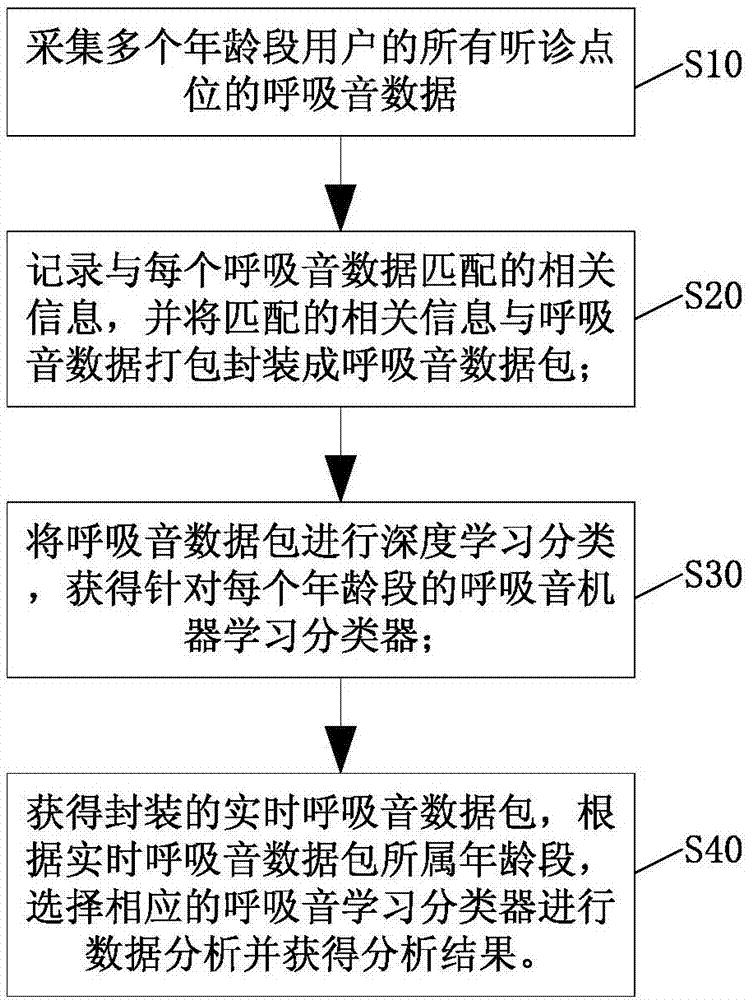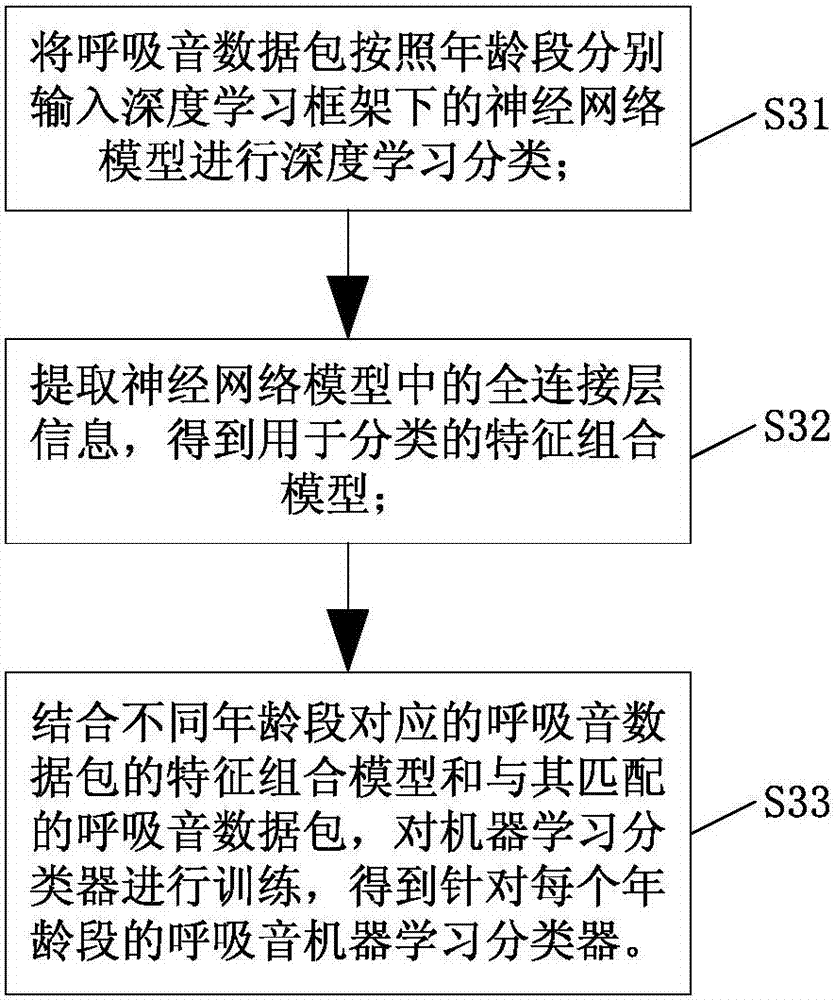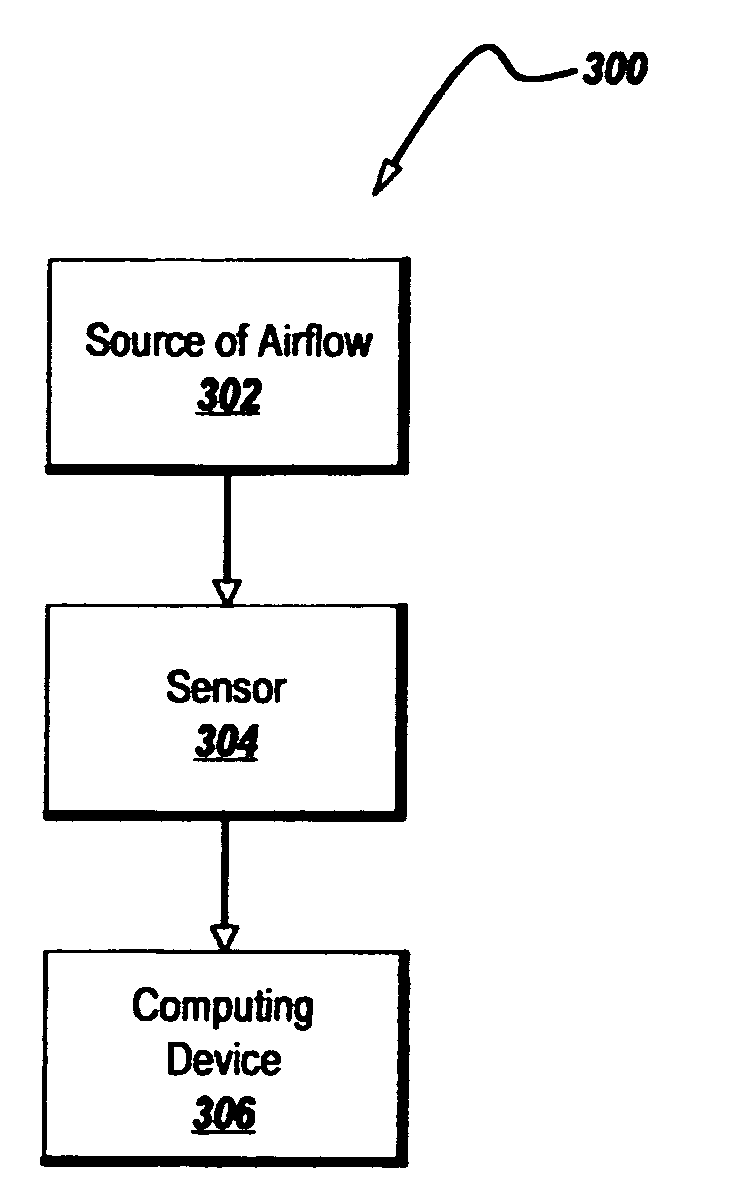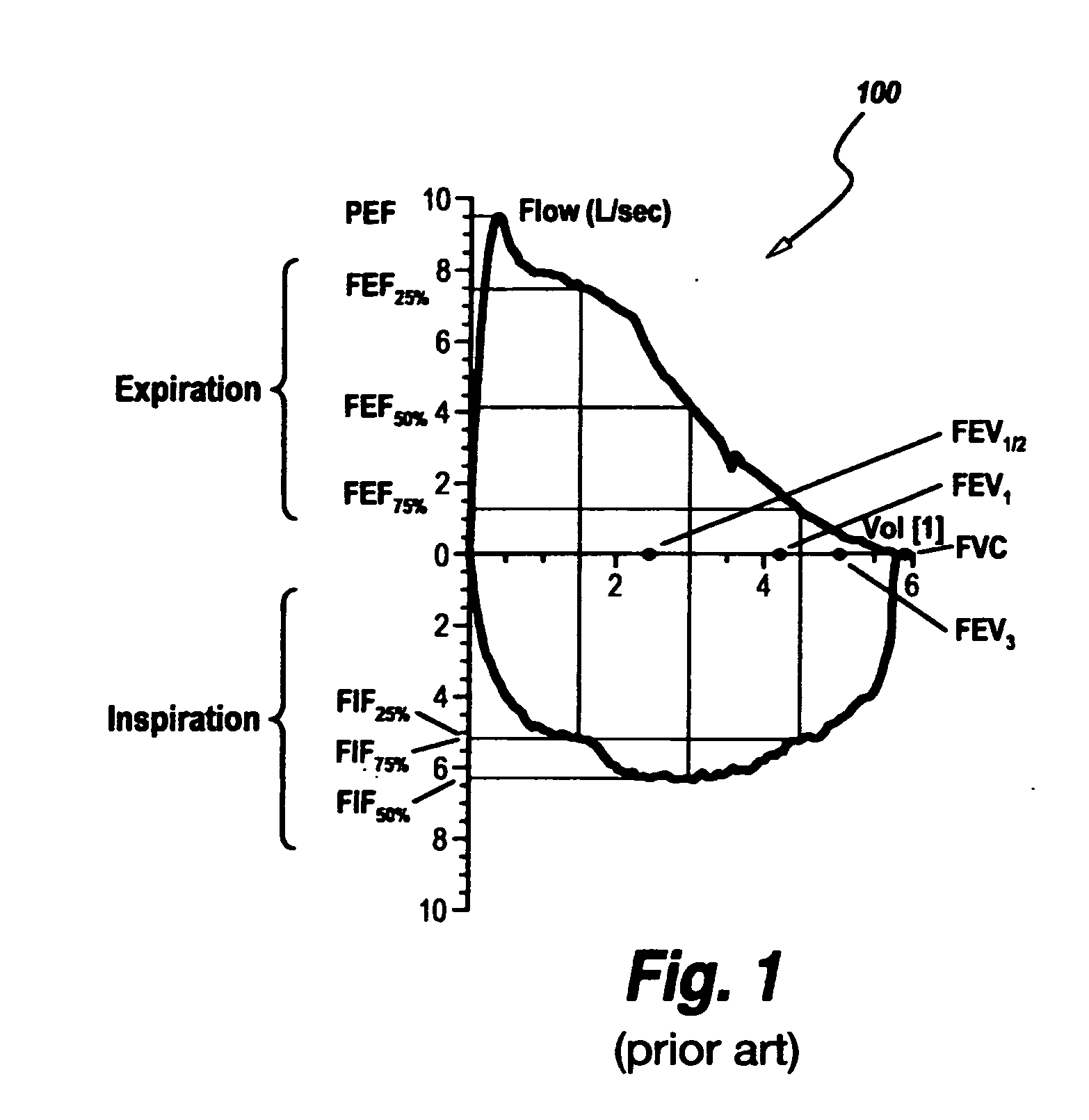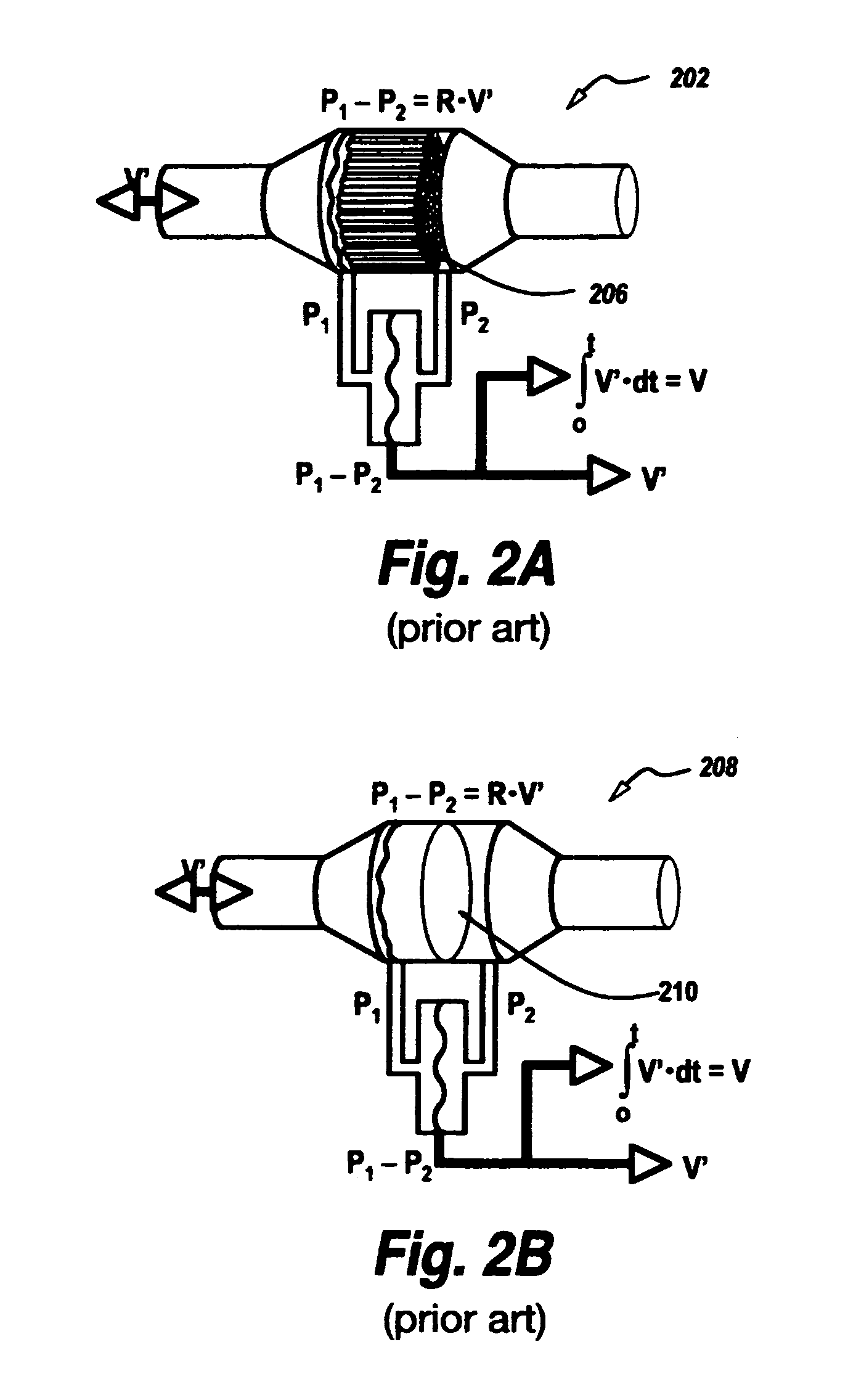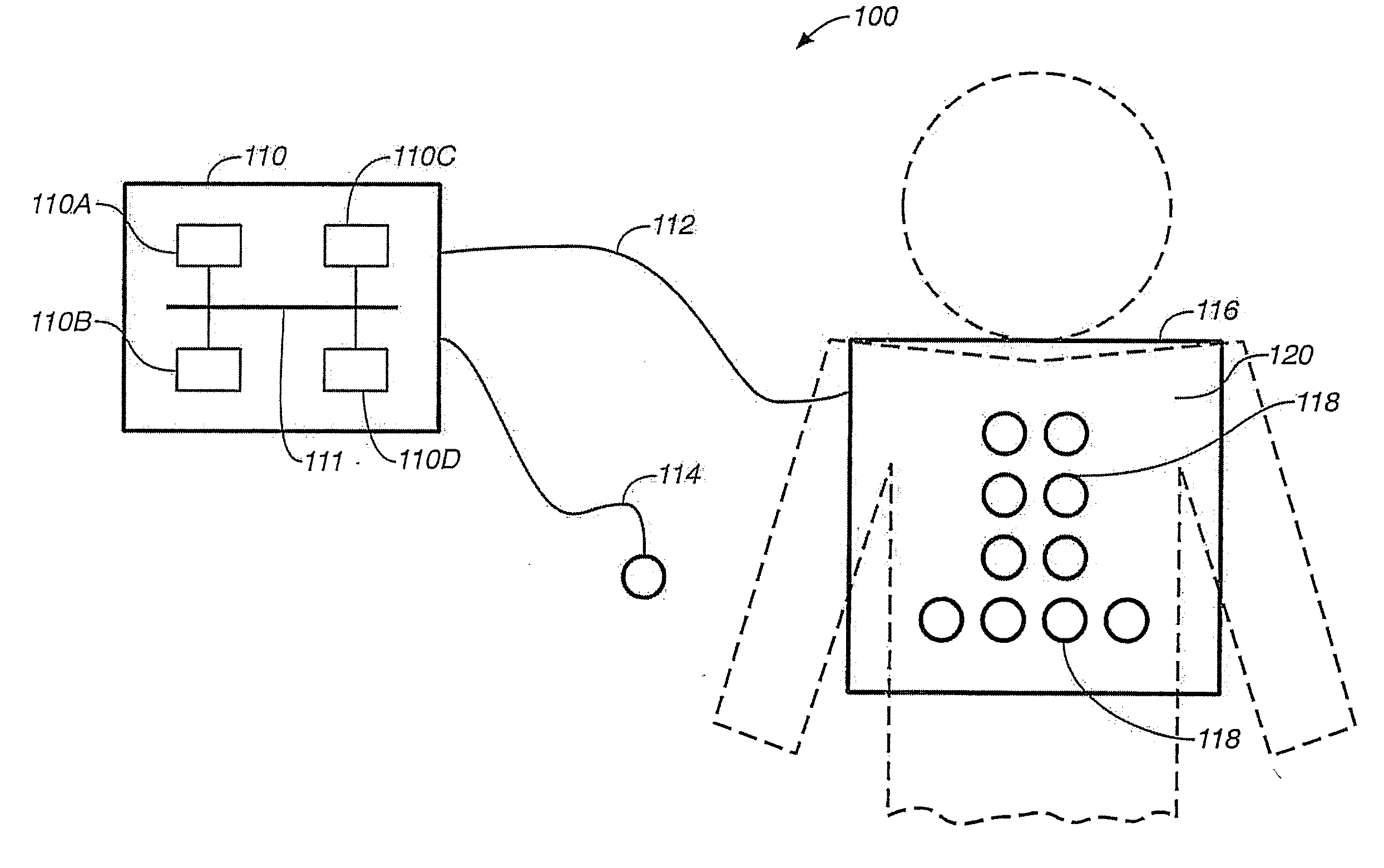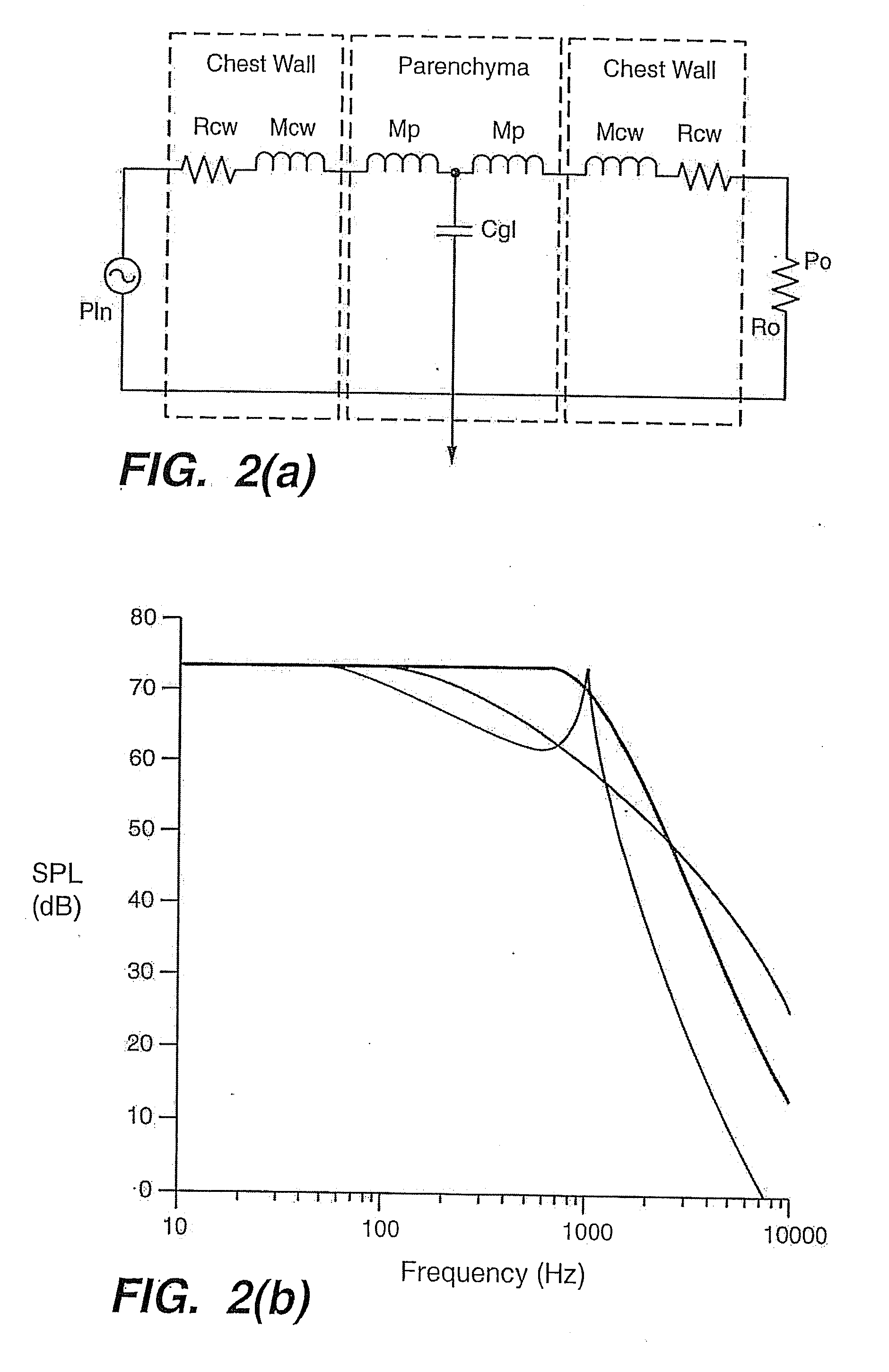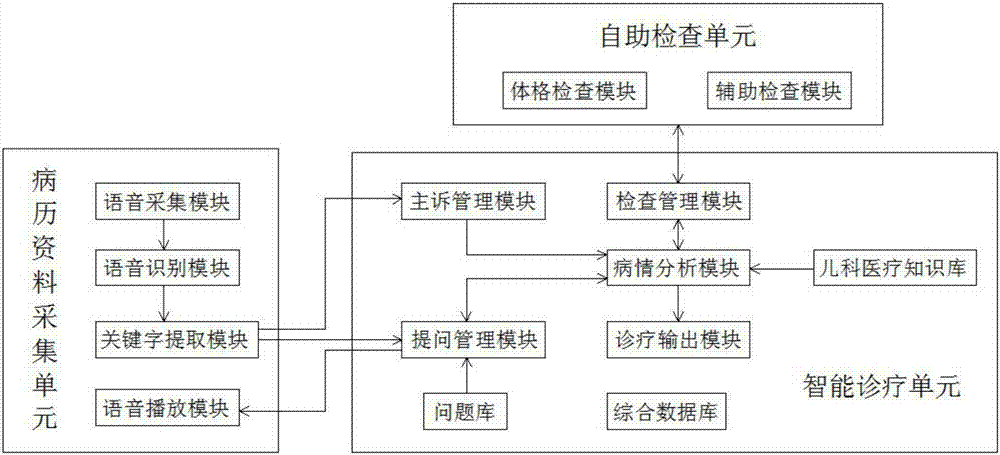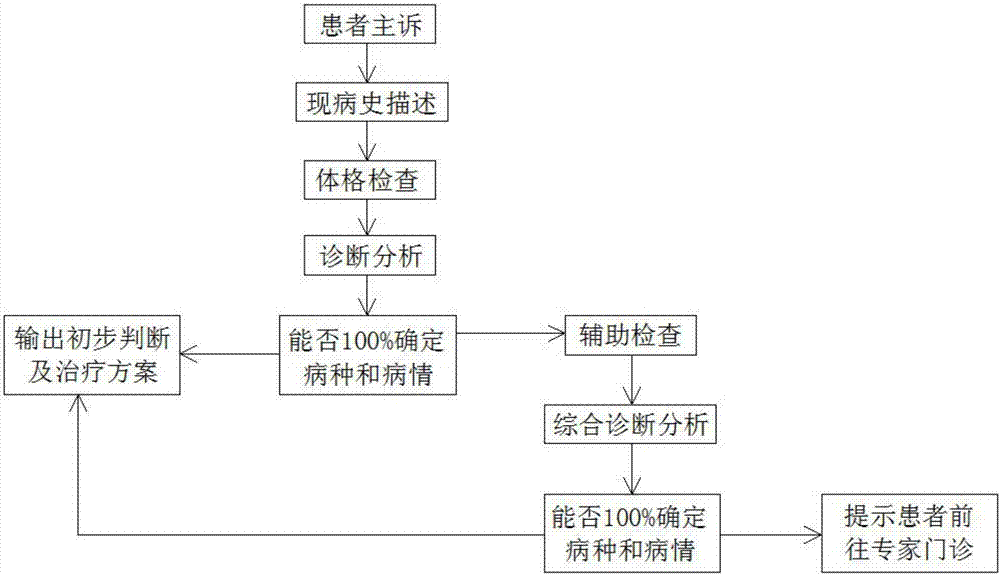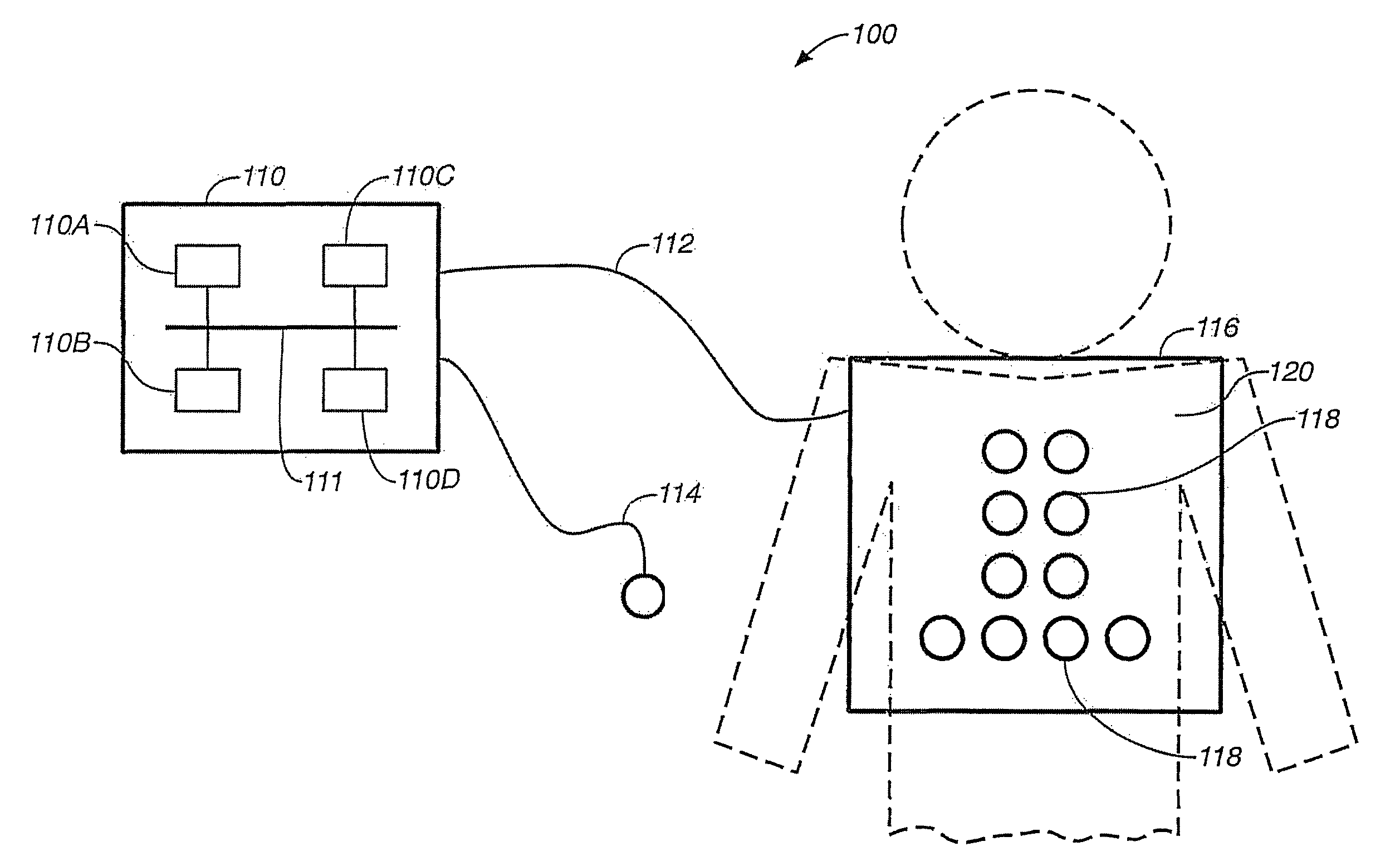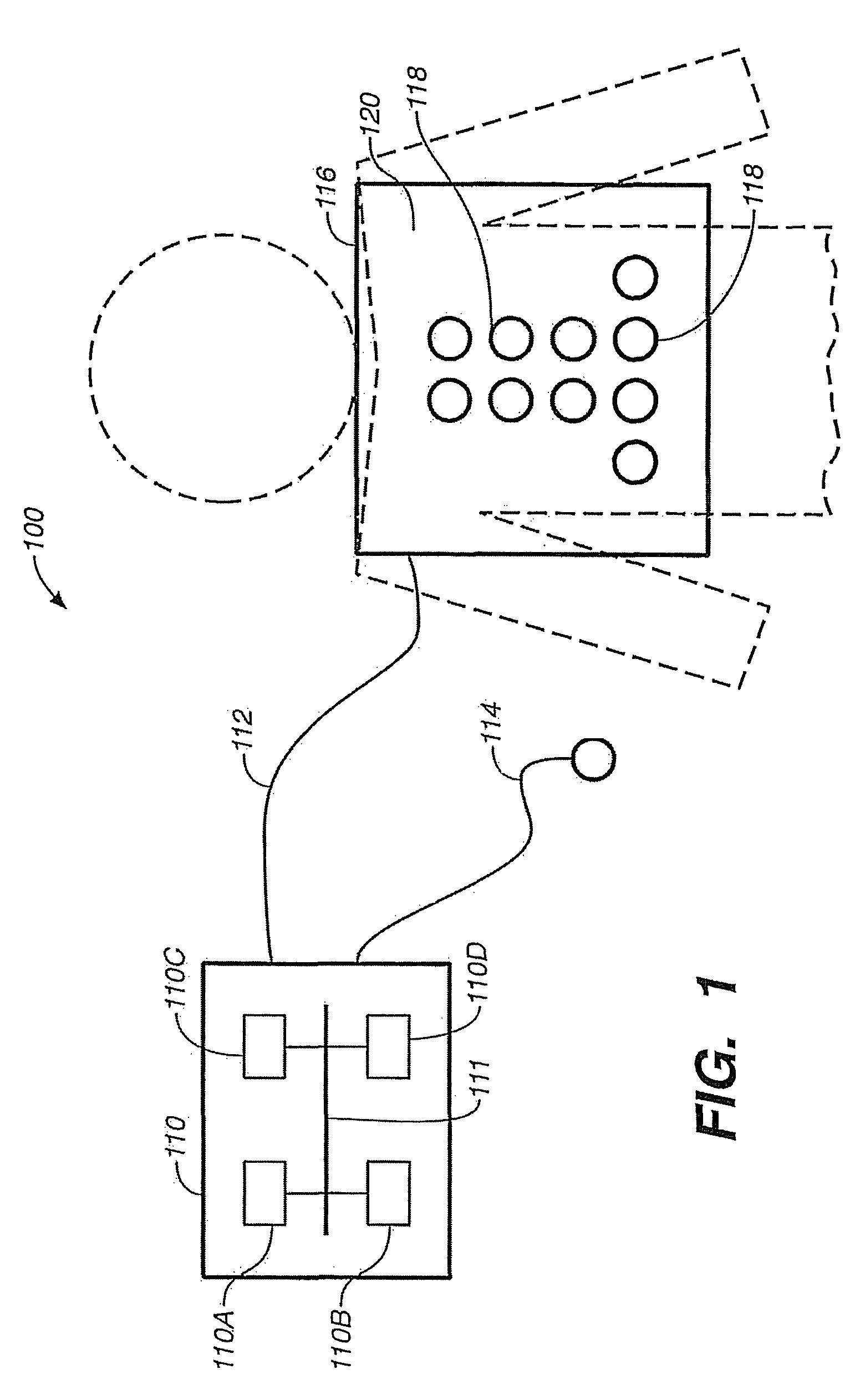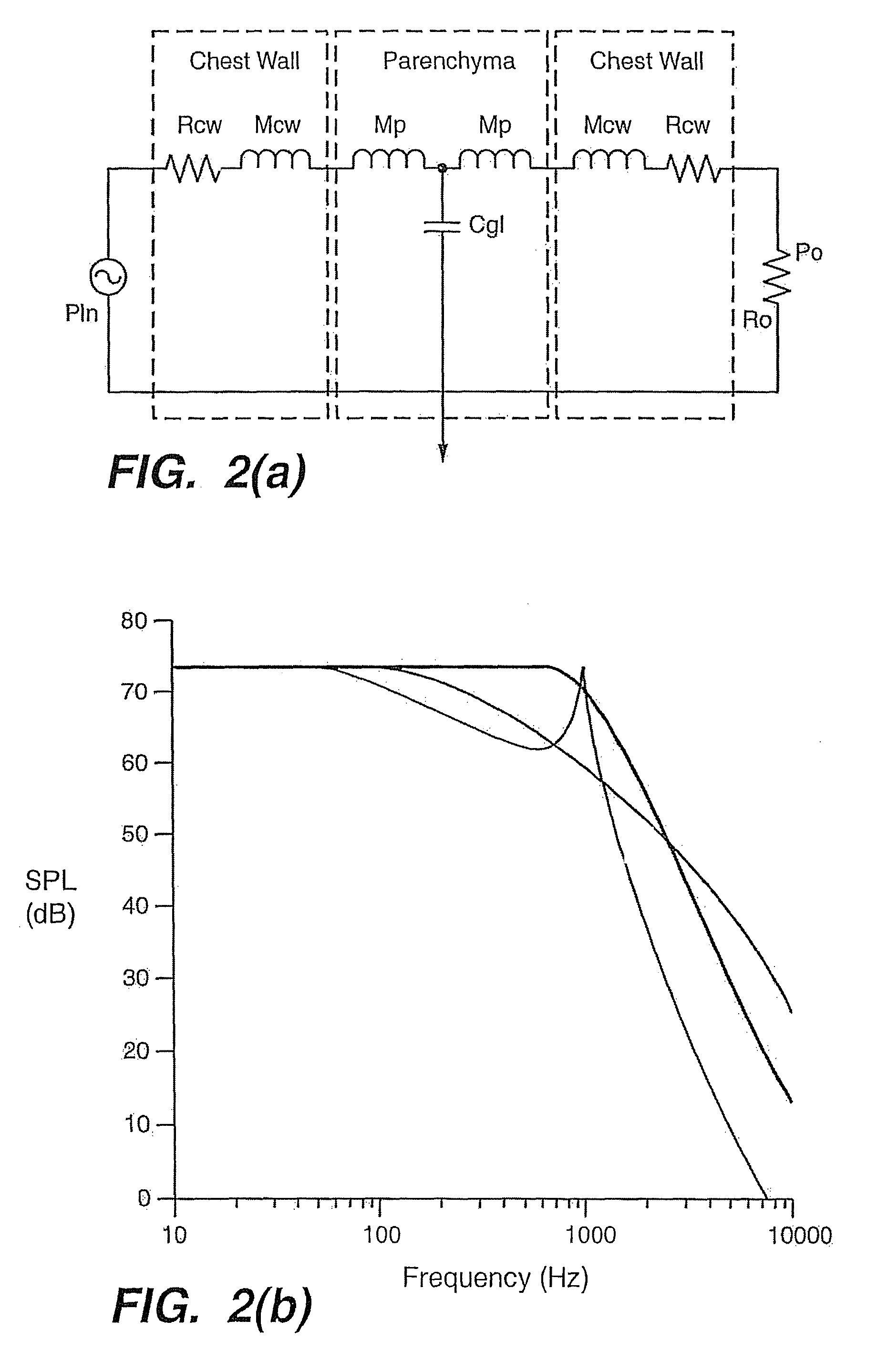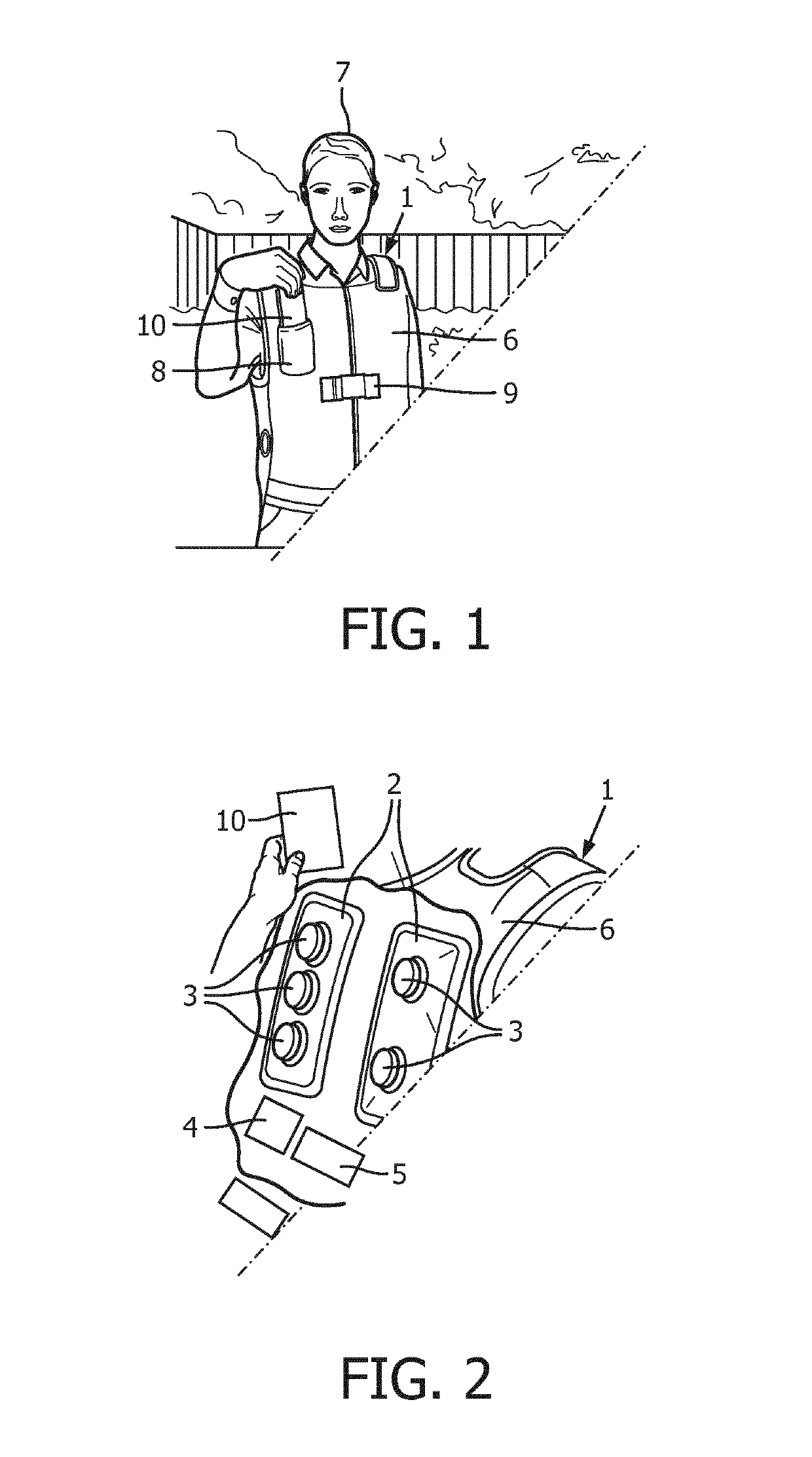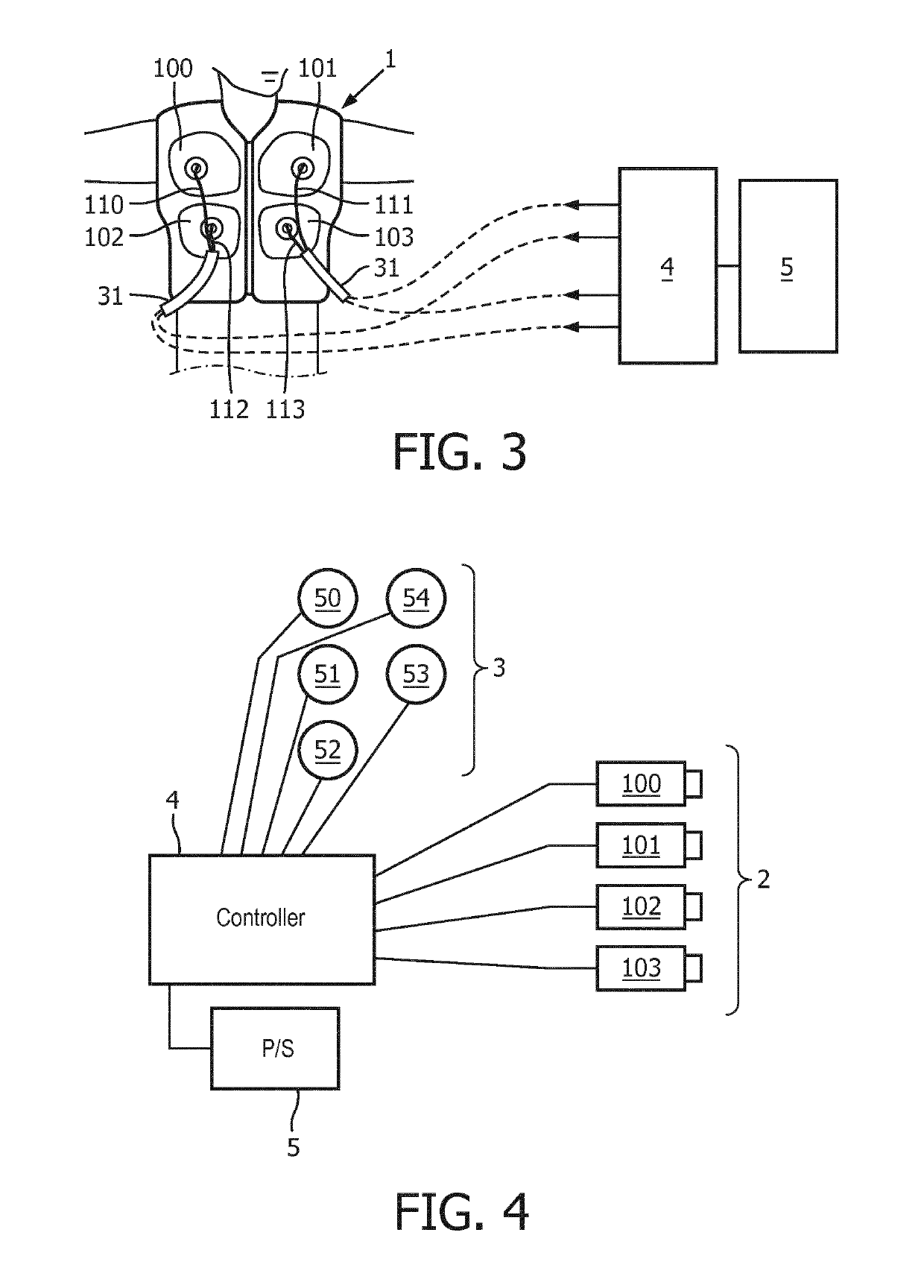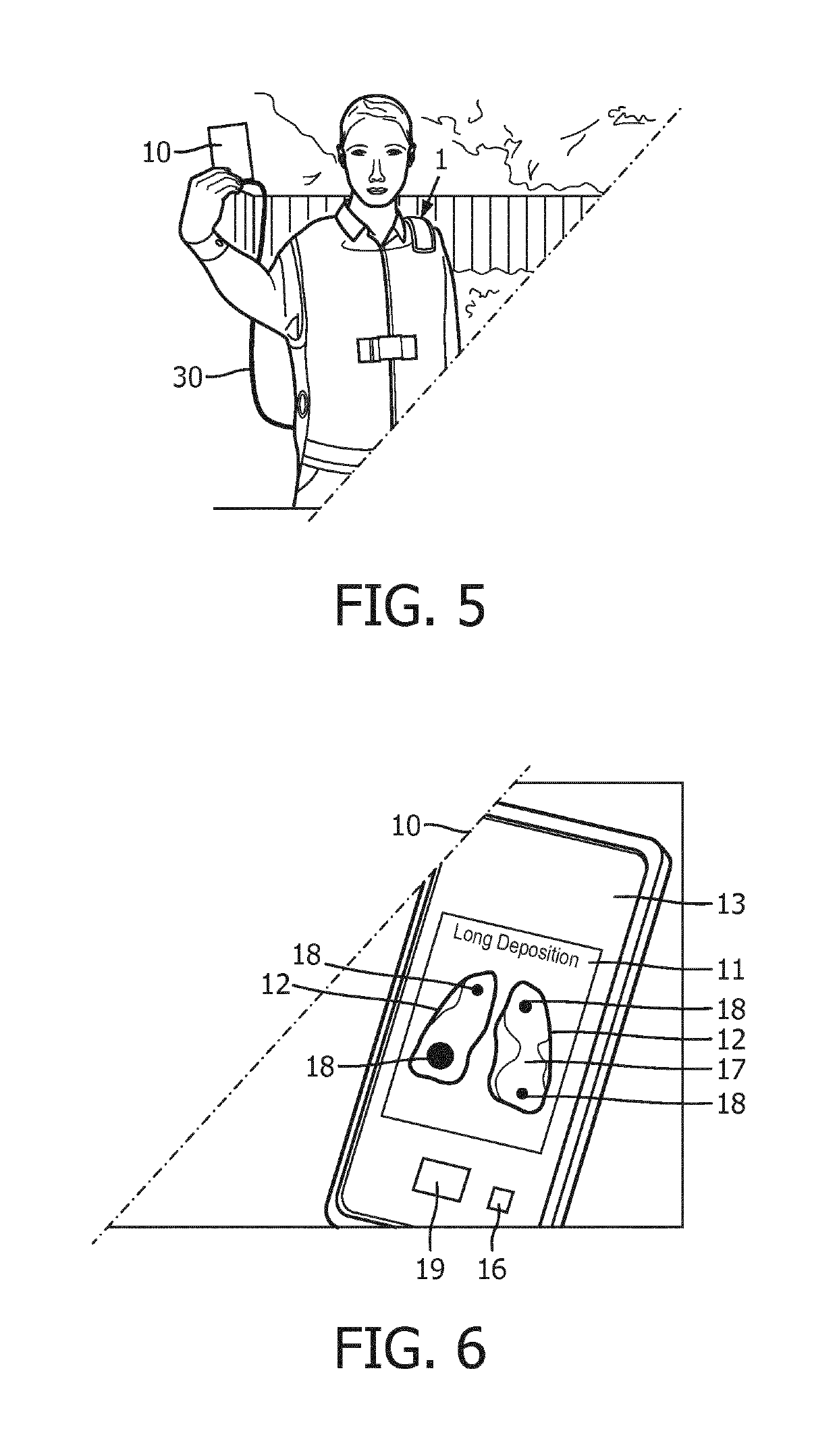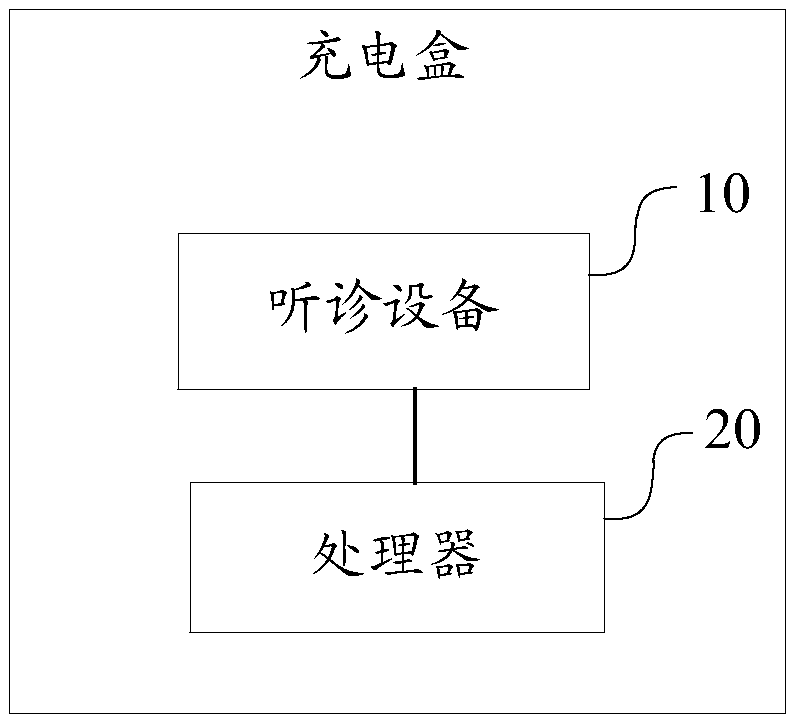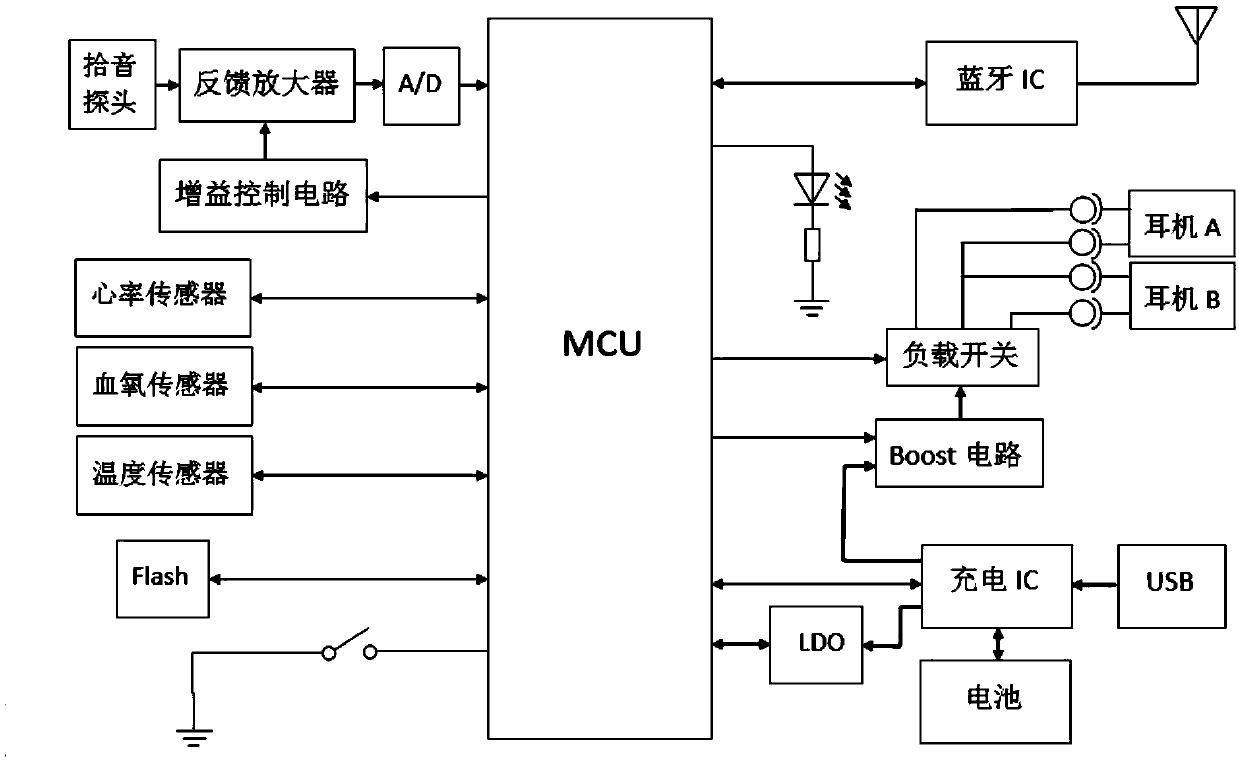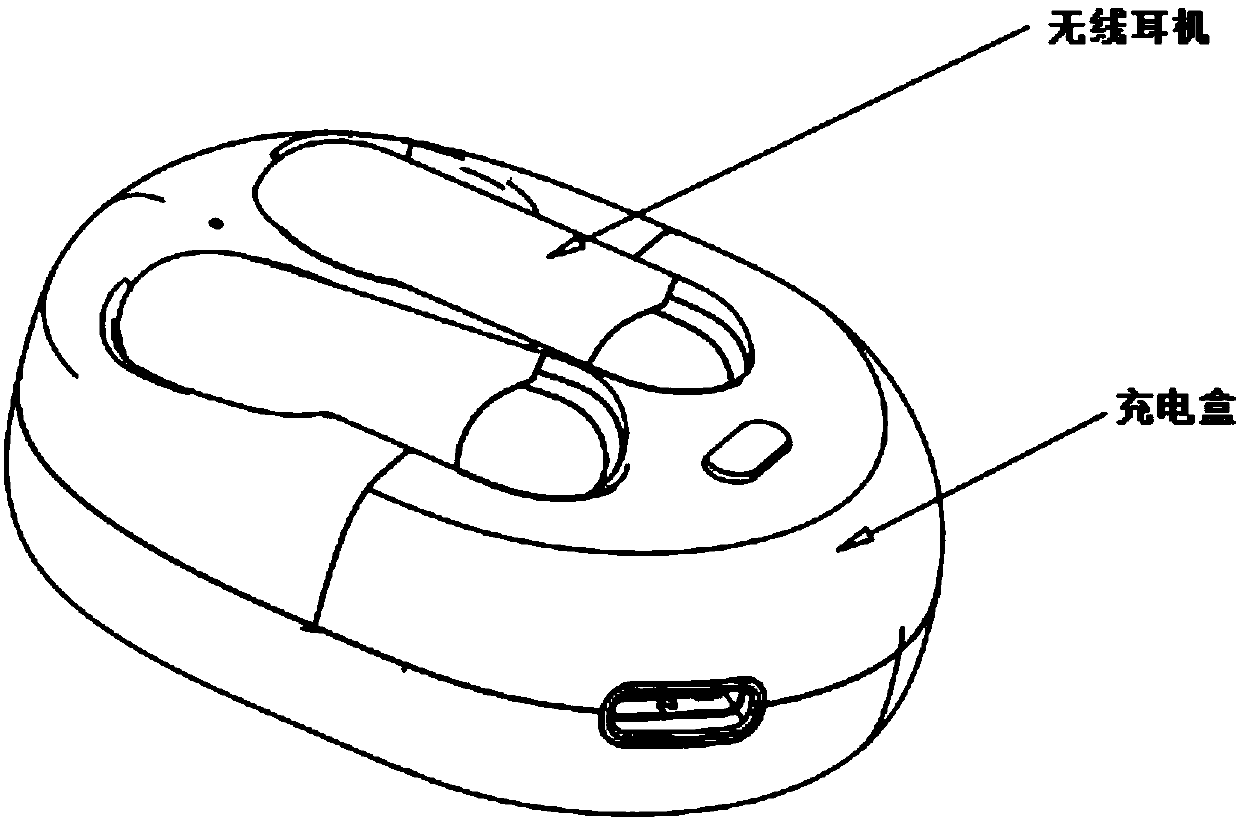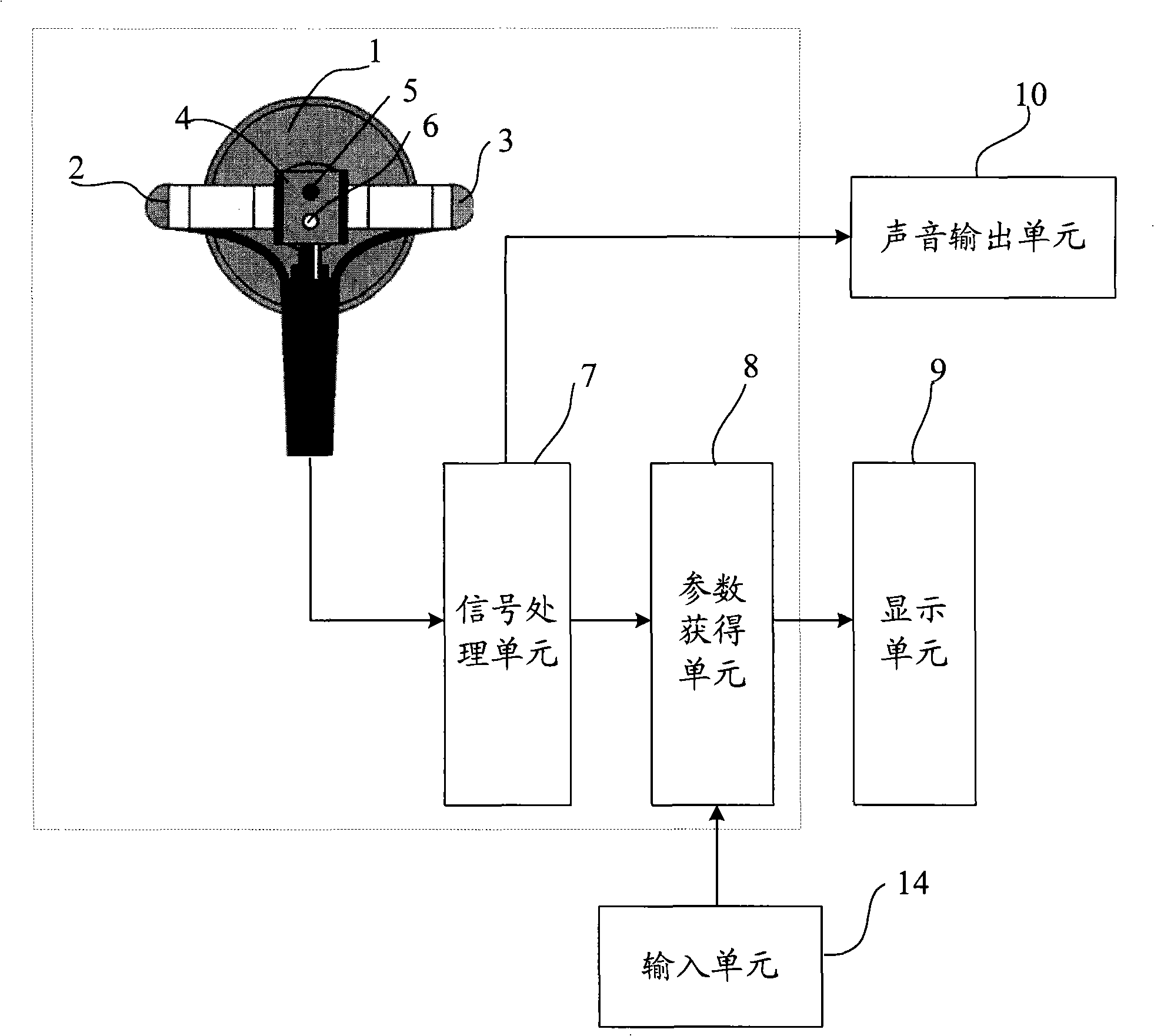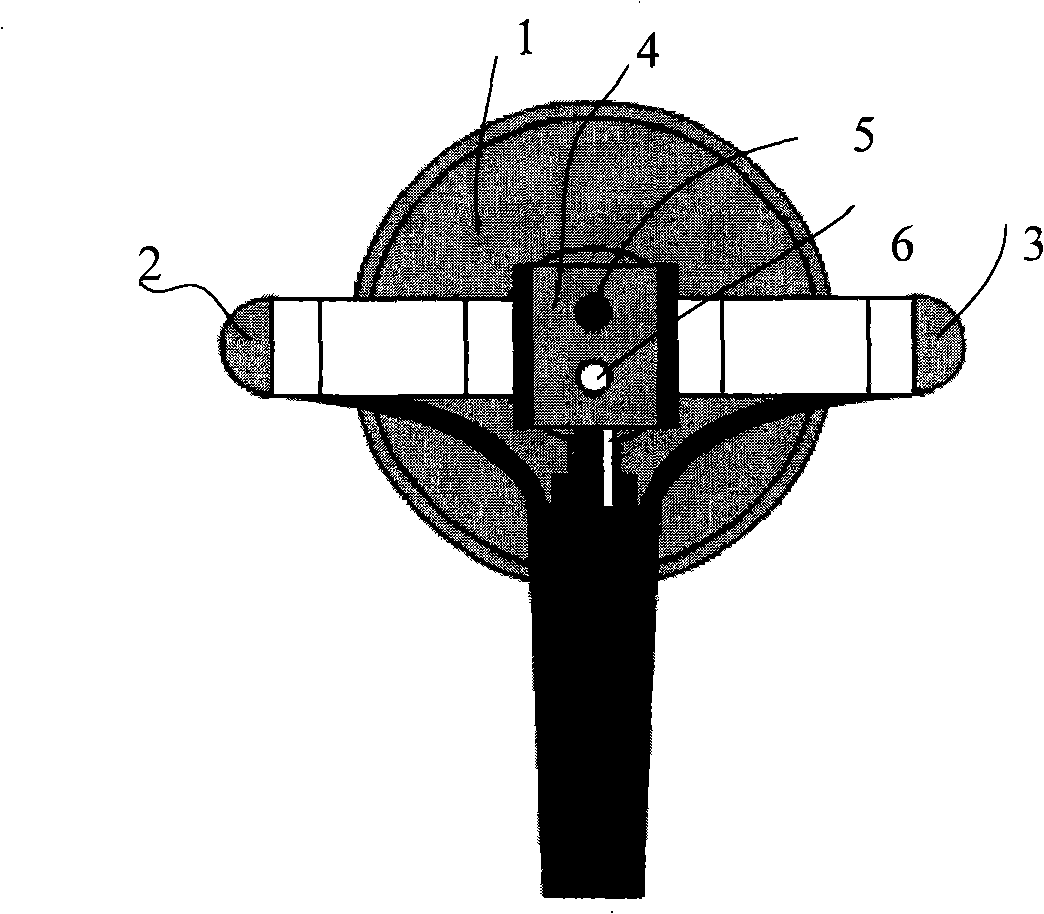Patents
Literature
Hiro is an intelligent assistant for R&D personnel, combined with Patent DNA, to facilitate innovative research.
356 results about "Auscultation" patented technology
Efficacy Topic
Property
Owner
Technical Advancement
Application Domain
Technology Topic
Technology Field Word
Patent Country/Region
Patent Type
Patent Status
Application Year
Inventor
Auscultation (based on the Latin verb auscultare "to listen") is listening to the internal sounds of the body, usually using a stethoscope. Auscultation is performed for the purposes of examining the circulatory and respiratory systems (heart and breath sounds), as well as the gastrointestinal system (bowel sounds).
Wearable auscultation system and method
Owner:MOTOROLA SOLUTIONS INC
Methods & systems to determine multi-parameter managed alarm hierarchy during patient monitoring
ActiveUS20120232416A1Increased respiration rateElectrocardiographyEvaluation of blood vesselsAccelerometerMultiple sensor
The present specification discloses systems and methods of patient monitoring in which multiple sensors are used to detect physiological parameters and the data from those sensors are correlated to determine if an alarm should, or should not, be issued, thereby resulting in more precise alarms and fewer false alarms. Electrocardiogram readings can be combined with invasive blood pressure, non-invasive blood pressure, and / or pulse oximetry measurements to provide a more accurate picture of pulse activity and patient respiration. In addition, the monitoring system can also use an accelerometer or heart valve auscultation to further improve accuracy.
Owner:SPACELABS HEALTHCARE LLC
Systems and methods for tuning, analysis and display of heart sounds
InactiveUS20080273709A1Efficiently and cost-effectively auscultateLocal control/monitoringStethoscopeAnti-aliasingCardiac cycle
A tunable auscultation system includes a heart sound acquirer for sensing heart sounds from at least one chest location of the patient. An initial conditioner then conditions the heart sounds through pre-amplification and anti-aliasing. The heart sounds are transduced into electrical signals by a signal processor. The electric heart signals are then tuned by an analysis tool. The analysis tool includes an interaction tuner, a processing tuner and an output tuner. The interaction tuner includes a preset tuning selector and a dynamic range tuning selector. The processing tuner includes a band pass filter and an algorithmic extraction engine which applies extraction algorithms to the electric heart signals, segments them and extracts signals of interest. Signals of interest may be correlated to specific pathologies. The output tuner includes a signal strength indicator, a diagnosis indicator, an overlapping cardiac cycle display and a display configuration engine. A display module provides output.
Owner:THIAGARAJAN ARVIND +3
Physiological data recording apparatus for single handed application
InactiveUS20050078533A1Broaden applicationAuscultation of heart sounds is greatly facilitatedStethoscopeDigital storageHeadphonesHeart disease
The invention disclosed herein simplifies application of physiological sensors to the body. In the preferred embodiment the plurality of physiological sensors are physically attached to the back of a personal digital assistant (PDA). An operator presses the PDA single-handedly against patient's chest in such a manner that sensors are in contact with patient's skin and the PDA display faces the operator. Physiological signals are then visualized on the PDA screen. The sensors include EKG electrodes and acoustic sensors. The “EKG Stethoscope” is used to simultaneously record the audio signal from an acoustic sensor and the corresponding electrical EKG signal from EKG electrodes. The PDA analyzes EKG and acoustic signals. Further, sound from one acoustic sensor is amplified and transmitted to operator's headphones for simultaneous auscultation. Concurrent audio and visual experience greatly enhances the operator's ability to diagnose lung and heart disease. A plurality of acoustic sensors is used to localize intrathoracic sound origin. The operator looks at the PDA display for cues on abnormal sound location and sound characteristics.
Owner:VYSHEDSKIY ANDREY +2
Auscultation training device
InactiveUS20050048455A1Improve teaching efficiencyEffective instructionSpeech analysisAuscultation instrumentsAuscultationStethoscope
The auscultation training device enables a trainee to experience and learn various case studies without feeling the difference from the actual auscultatory action using the actual stethoscope in order to obtain the auscultatory technique. The auscultation training device 1 mainly comprises the model human body 4, which is an imitation of a human body upper torso; the stethoscope simulator 2 that the trainee 5 uses to perform the simulation of the auscultatory action on the model human body 4; an auscultatory sensor 8 which detects the auscultatory action by the trainee 5 with the stethoscope simulator 2; and the controller 3 which is connected to the stethoscope simulator 2 and the auscultatory sensor 8 respectively, whereby the controller receives the detected signals 9 of the auscultatory action transmitted from the auscultatory sensor 8, and then controls and processes signals for reproduction of vital sounds including those such as cardiac sounds and breathing sounds of the human body by a vital sound player 11 installed in ear piece 10 of the stethoscope simulator 2.
Owner:GIFU UNIVERSITY
Medical examination apparatus
InactiveUS20050119584A1Quickly and efficiently obtainingAvoid the needElectrocardiographyOrgan movement/changes detectionVisual perceptionMedical treatment
An apparatus to enable health care providers to perform a number of diagnostic procedures, including listening to the heart, obtaining electrocardiograms and sonograms. A pocket size instrument displays an EKG tracing on its screen simultaneously upon auscultation of the heart. The abdomen may also be investigated by displaying a sonogram. Wireless broadband technology may provide a closed circuit interface for real-time wireless transmission of acquired data. Examination requires none of a multiplicity of wires to untangle, bulky machines or a technician to be summoned. Regurgitation, heart size, ischemia and heart murmurs can all be evaluated by a visual and auditory methods.
Owner:CARTER VANDETTE B
A heart sound signal quantification analysis method and device
ActiveCN102283670ARealize intelligent identificationRealize quantitative auscultationAuscultation instrumentsSystolic murmurCardiac cycle
The invention discloses a method and a device for quantitatively analyzing heart sound signals. The method comprises the following steps of: acquiring multiple heart sound signals at clinical auscultation positions; preprocessing the acquired multiple heart sound signals; extracting heart sound envelope curves and characteristic parameters of the preprocessed multiple heart sound signals respectively; dividing a systole period in a cardiac cycle of each heart sound signal into a first heart sound period and a systolic murmur period, dividing a diastole period into a second heart sound period and a diastolic murmur period, and computing heart sound energy in all periods respectively; and computing the percentage of the heart sound energy in all the periods in the whole cycle to determine the intensity of normal heart sound and the emergent time and intensity of murmurs. By the method for quantitatively analyzing the heart sound signals, the intensity, the emergent time and the duration time of all components of heart sound can be quantitatively analyzed, and an analysis result can be used as a diagnosis basis for clinical common cardiovascular diseases; and the method and the device are used for evaluating the relationship between cardiac murmur types and the cardiovascular diseases.
Owner:XIHUA UNIV
Tele-diagnostic device
Owner:INEEDMD COM
Systems and methods for calibration of heart sounds
InactiveUS20080039733A1Efficiently and accurately auscultateAuxiliary diagnosisElectrocardiographyBlood flow measurement devicesTime domainAuscultation
An auscultation system includes a transducer for generating an acoustic signal at a transducing location of the subject, and a sensor for receiving an attenuated acoustic signal at a sensing location of the subject. The attenuated signal received at the sensing location is digitized, and may be analyzed in the frequency and / or time domain. The comparison of the digitized attenuated signal against the initial transduced signal allows for the computation of the degree of acoustic attenuation between the transducing and sensing locations. Acoustic attenuation may be utilized to generate an intensity ratio. The ejection fraction of the heart subject may then be computed by correlation to the intensity ratio. Pulse echo methods are also disclosed. The echo transducer is oriented on the subject and generates a series of signal pulses. The return echo on the pulse is then received and a brightness encoded image is produced. The return echo provides location data on the internal structures of the subject including location, motion and speed.
Owner:UNVER KAMIL +3
Sensor system
ActiveUS20100256512A1Wide rangeSubsonic/sonic/ultrasonic wave measurementAuscultation instrumentsAuscultationEngineering
A sensor system comprises a mat (20) for placement over a patient's mattress including a number of sensors (10) located in the mat. The sensors include a sensor housing (12), a sound vibration sensing element in the form of a PVDF membrane (13), and means for amplifying sensed sounds. The PVDF membrane is coated / covered with a typically latex, impedance matching layer (14). The sensor automatically provides for auscultation, in which the patient's own weight, from the patient lying on the bed, compresses their thorax against the membrane, compressing also the patient's clothing, bed sheet and mattress cover material between the two. The recoil in the mattress opposes the body mass, thus compressing the membrane against the thorax. The impedance matching layer on top of the membrane transmits fine breath sounds through to the membrane as the latex does not weaken or attenuate the fine breath sounds but transmits them to the PVDF membrane. However being flexible, it is not uncomfortable to lie on.
Owner:SONOMEDICAL
Medical examination apparatus
InactiveUS20150327775A1Quickly and efficiently obtainingAvoid the needElectrocardiographyOrgan movement/changes detectionNon invasiveEmbedded system
An apparatus to enable health care providers to perform a number of diagnostic procedures, including listening to the heart, obtaining electrocardiograms, sonograms, ocular and otoscopic exams; audio and video functions as well as mobile phone capabilities, not limited to voice and text messaging. A pocket size instrument displays an ECG tracing on its screen simultaneously upon auscultation of the heart. The screen allows for audio-video display, Spo2 and touch screen functions. Wireless broadband technology may provide a closed circuit or global interface for real-time wireless transmission of acquired data, audio, photos and videos. Many common non-invasive examinations and tests can be performed without the need for a multiplicity of devices.
Owner:PARACE
Medical examination apparatus
InactiveUS7300406B2Quickly and efficiently obtainingAvoid the needElectrocardiographyOrgan movement/changes detectionVisual perceptionMedical treatment
An apparatus to enable health care providers to perform a number of diagnostic procedures, including listening to the heart, obtaining electrocardiograms and sonograms. A pocket size instrument displays an EKG tracing on its screen simultaneously upon auscultation of the heart. The abdomen may also be investigated by displaying a sonogram. Wireless broadband technology may provide a closed circuit interface for real-time wireless transmission of acquired data. Examination requires none of a multiplicity of wires to untangle, bulky machines or a technician to be summoned. Regurgitation, heart size, ischemia and heart murmurs can all be evaluated by a visual and auditory methods.
Owner:CARTER VANDETTE B
Portable smart stethoscope formed of smart mobile device and casing assembly
InactiveUS20140163422A1Efficient captureDiagnostic signal processingStethoscopeEmbedded systemAuscultation
A smart portable stethoscope is formed of a smart mobile device and a casing assembly for the mobile device. The casing assembly comprises a casing member, a diaphragm holder member configured to securely and effectively retain a diaphragm, and a vibrator-transducer member. The casing member includes a diaphragm connector part configured to securely fasten the diaphragm holder member to the casing member. The vibrator-transducer member is configured to be securely fastened to diaphragm holder member or casing member in such a manner that its vibrator is disposed to interconnect with the diaphragm and effectively duplicate vibrations captured by the diaphragm so as to deliver medical-grade auscultation electronic signal based on the duplicated vibrations to the mobile device through an audio plug plugged into a microphone jack thereof.
Owner:POPLAW BARRY
Method and system of continuous monitoring of body sounds via wearable wireless body sound monitor
A method and system of continuous measuring, monitoring and analyzing sounds from person's body by a wearable wireless sound sensor worn or attached to clothing in close proximity to skin. The method and system include a wearable sensor including a universal attachment of the sound sensor to a user's clothing close or next to their skin in order to perform auscultation and analyze sound signals of the person over any durations of time. A mobile device in communication with the body sound sensor can analyze the collected measured sounds in order to create derived statistics based on received sound during any spans of time including large time intervals.
Owner:MONDEVICES
Electronic auscultation sphygmomanometer based on combination of Korotkoff sound method and oscillometric method
The invention relates to an electronic auscultation sphygmomanometer based on combination of a Korotkoff sound method and an oscillometric method, solving the following problems: the manual auscultation sphygmomanometer is not convenient to carry, and Korotkoff sound auscultation is not easy to operate and is easily affected by the environment. The electronic auscultation sphygmomanometer comprises a cuff with a bladder inside, a sound pickup, an atmospheric pressure sensor, a signal processing unit, an inflation / deflation unit, a human-machine interaction unit and a microprocessor, wherein the microprocessor controls the inflation / deflation unit to inflate or deflate the cuff; after the atmospheric pressure signal obtained by the atmospheric pressure sensor and the Korotkoff sound signal obtained by the sound pickup are processed by the signal processing unit, the microprocessor firstly works out the range of the blood pressure by the oscillometric method, then searches for the Korotkoff sound signal in the range by a thresholding method to obtain the final blood pressure and finally controls the human-machine interaction interface to display the result. The sphygmomanometer can simultaneously ensure stability and precision of the measuring result and can be used in the blood pressure measurement field.
Owner:HARBIN INST OF TECH
Diagnostic And Therapeutic Chest Casing
A system and method is provided for detection, forewarning, and rapid therapeutic treatment of a patient's ischemic and arrhythmic heart condition, congestive heart failure, respiratory failure, etc. The system comprises a chest casing of a form fitting material. The inner surface of the chest casing comprises electrocardiogram sensor electrodes, auscultation sensors, impedance sensor electrodes, etc. The electrocardiogram sensor electrodes detect abnormal electrocardiogram signals. The auscultation sensors record internal sounds at predefined cardiac and respiratory auscultation sensor points. The impedance sensor electrodes measure thoracic impedance across two or more points on the chest wall. A control unit is connected to the sensors for collecting and processing patient information. The control unit transmits the processed patient information to an external monitoring station. The chest casing comprises therapeutic delivery points for delivering therapeutic electrical dosages and different therapies, for example, cooling therapy, to the patient via therapeutic devices connected on the chest casing.
Owner:AZIZ KUSAI SAADELDIN
Intelligent multifunctional stethoscope
InactiveCN101507613AImprove the effect of auscultationQuality improvementTransmission systemsStethoscopeMemory chipMicrocontroller
The invention discloses an intelligent multifunctional stethoscope, which comprises traditional and electroacoustic stethoscope components. The electroacoustic stethoscope component comprises two sound pickups, a pair of auscultating heads provided with micro speakers and a hardware box, wherein a circuit in the hardware box comprises a singlechip, a power amplifying circuit and a wireless transmitting module; and the singlechip comprises a microprocessor, an analog-digital and digital-analog conversion circuit, a memory chip and a USB interface circuit. The intelligent multifunctional stethoscope is characterized in that a microphone channel comprises a cavity of the hardware box, a rubber tube which is arranged in the center of the lower bottom surface of the cavity and is provided with a sound head at the outer end thereof, and two sections of rubber tubes arranged on two sides of the upper top surface of the cavity, wherein the outer ends of the two sections of the rubber tubes are inserted with an L-shaped metal bent pipe respectively and the end heads thereof are provided with the auscultating heads; the microphone channel also comprises a U-shaped elastic metal connecting sheet of which two ends are sleeved on the lower part of the bent pipe respectively; and one sound pickup is arranged in a cavity of the sound head, while the other sound pickup is arranged on the top surface of the hardware box. The electroacoustic stethoscope component can also be provided with a corresponding wireless transmitting and receiving device so as to achieve distant auscultations and diagnoses.
Owner:余翔
Medical examination apparatus
InactiveUS20080071184A1Quickly and efficiently obtainingAvoid the needElectrocardiographyOrgan movement/changes detectionVisual perceptionMedical treatment
Owner:CARTER VANDETTE B
Device for wide-band auscultation
ActiveUS20150297169A1Facilitates alteration of acoustic property of deviceFacilitates “ tuning ”StethoscopeDiagnostic recording/measuringAuscultationTransducer
The present invention relates to a device for auscultation of a body. An embodiment of the device includes a housing dimensioned and configured for disposition in an operative orientation relative to a predetermined portion of the body. The housing includes a plurality of chambers disposed therewithin. The plurality of chambers are collectively structured to receive an acoustic signal at least when the housing is disposed in the operative orientation. The housing also includes at least one transducer at least partially disposed in a corresponding one of the chambers. The transducer is structured to convert the acoustic signal into an electrical signal.
Owner:BONGIOVI ACOUSTICS LLC
Intelligent air flow sensors
InactiveUS20110092840A1Auscultation instrumentsRespiratory organ evaluationForced expiratory vital capacityEngineering
A single sensor capable of detecting both airflow in spirometry and the full range of sound frequencies needed to track clinically relevant breath sounds is provided. The airflow sensor includes a movable flap with one or more integrated strain gauges for measuring displacement and vibration. The airflow sensor is inherently bidirectional. The sensor is an elastic flap airflow sensor that is capable of detecting data needed for both spirometry and auscultation measurements. The sensor is sterilizable and designed for the measurement of human respiratory airflow. The sterilizable sensor is also suitable for non-medical fluid flow metering applications. Additional devices such as sensors for the ambient level of various chemicals, sensors for temperature, sensors for humidity and microphones, may be affixed to the flap. When the strain gauge is placed in a conventional Wheatstone bridge configuration, the sensor can provide the airflow measurements needed for medical spirometry.
Owner:RESPIRATORY SCI INC
Database system based on intelligent Chinese medicine robot
InactiveCN108154934AEasy to digitizeImprove standardizationMedical data miningDrug and medicationsDiseaseSystem call
The invention discloses a database system based on an intelligent Chinese medicine robot. The database system comprises the nine modules of observation, auscultation and olfaction, inquiry, pulse-taking, analysis, surge, dialectics, treatment program and case. According to the system, the means of observation, auscultation and olfaction, inquiry, pulse-taking, analysis, surge and the like of a data collecting system are combined with eight-principle syndromes, six-meridian syndrome differentiation and qi-blood and fluid differentiation of dialectical commonality and meridian syndromes, viscerasyndromes, defense-qi-nutrient syndromes of dialectical personality to dialectize the disease of a patient. A vital sign sensor is used to detect the vital signs and the biochemical indicator systemof the patient. A diagnosis and analysis parallel computing module is combined with a big data analysis module to accurately determine the disease of the patient through integrated Chinese and Westernmedicines. The system calls the national classic famous doctor prescription library or the Chinese herbal medicine analytical database to voluntarily issue prescriptions. Finally, the best treatmentprescription or rehabilitation program for the disease or constitution of the patient is acquired. Through a case database, the physical health recovery status of the patient is tracked and serviced for a long time, and big data statistics and analysis are carried out.
Owner:华子昂
Method and system for breath sound identification based on machine learning
ActiveCN107292286AAccurate analysisThe recognition effect is accurateStethoscopeBiometric pattern recognitionRelevant informationNetwork packet
The present invention discloses a method and system for breath sound identification based on machine learning. The method comprises the steps: collecting breath sound data of all the auscultation point locations of a plurality of users in different age groups; recording the correlation information matching with each breath sound data, and packaging the matched correlation information and the breath sound data to a breath sound data package; performing deep learning classification of the breath sound data, and obtaining a breath sound machine learning classifier aiming at each age group; and selecting a corresponding breath sound learning classifier to perform data analysis and obtain an analysis result according to the age group to which the obtained real-time breath sound data packet belongs. The breath sound data in different age groups and the matching correlation information are packaged to the breath sound data packet to perform deep learning classification to obtain the breath sound machine learning classifier of each age group so as to perform data analysis of the real-time obtained breath sound data packet and obtain a result, realize accurate and intelligent disease analysis and identification and facilitate assistance of doctor clinic research.
Owner:SUZHOU INST OF BIOMEDICAL ENG & TECH CHINESE ACADEMY OF SCI
Method and apparatus for intelligent airflow sensors
ActiveUS20130245980A1Auscultation instrumentsDiagnostic recording/measuringForced expiratory vital capacityEngineering
A sensor capable of detecting both airflow in spirometry and a full range of sound frequencies is provided. The airflow sensor includes a movable flap with one or more integrated strain gauges for measuring displacement and vibration. The sensor may be a bidirectional elastic flap airflow sensor that is capable of providing data needed for both spirometry and auscultation measurements. The sensor is provided in connection with a software module that analyzes sensor output waveforms and provides for correction functions that correct for certain non-linear response functions of the flap. The correction functions are also suitable for non-medical fluid flow metering applications. Additional devices may also be affixed to the flap, such as sensors for the ambient level of various chemicals, sensors for temperature, sensors for humidity and microphones.
Owner:RESPIRATORY SCI INC
Method of determining lung condition indicators
ActiveUS20090171231A1Narrow possibilityRespiratorsOperating means/releasing devices for valvesDiseaseAuscultation
A method and a microprocessor controlled device for use in medical evaluation of the pulmonary system. The method and device incorporate two different non invasive evaluative techniques. Passive auscultation provides indicators of lung condition. Active auscultation, a different evaluative technique, provides information or indications generally not available or provided from passive auscultation. Combining the information from both techniques greatly improves the ability to provide effective medical treatment.
Owner:ISONEA LTD
Pediatrician robot device based on artificial intelligence
InactiveCN106874670AAlleviate the current situation of scarcityImprove the efficiency of medical treatmentMedical automated diagnosisSpecial data processing applicationsMedical recordMedical equipment
The invention discloses a pediatrician robot device based on artificial intelligence. The device comprises a medical history data collection unit, a self-service examination unit and an intelligent diagnosis and treatment unit, wherein the medical history data collection unit collects medical history data of a patient in a voice interaction mode, the self-service examination unit performs physical examination on a patient by adopting inspection, palpation, percussion and auscultation physical methods, modern medical equipment is adopted for performing auxiliary examination on the body of the patient, the intelligent diagnosis and treatment unit performs comprehensive diagnosis and analysis according to the medical history data of the patient collected by the medical history data collection unit and the examination result of the patient output by the self-service examination unit, and outputs a diagnosis result and a treatment scheme, a robot can independently complete treatment of pediatric diseases, existing pediatricians are not needed completely, the current situation that the existing pediatric department lacks talents is effectively relieved, and the efficiency of seeing a doctor is improved.
Owner:ANHUI TONGLING BIONIC TECH CO LTD
Method of determining lung condition indicators
ActiveUS8517016B2Narrow possibilityRespiratorsOperating means/releasing devices for valvesDiseaseAuscultation
A method and a microprocessor controlled device for use in medical evaluation of the pulmonary system. The method and device incorporate two different non invasive evaluative techniques. Passive auscultation provides indicators of lung condition. Active auscultation, a different evaluative technique, provides information or indications generally not available or provided from passive auscultation. Combining the information from both techniques greatly improves the ability to provide effective medical treatment.
Owner:ISONEA LTD
Chest wall oscillation system with digital auscultation
ActiveUS20190142686A1Improve efficiencyElectrotherapyDiagnostics using vibrationsSound detectionMedicine
Disclosed is a wearable device configured to oscillate a chest of a user. The wearable device may include a chest wall oscillator, a sound detector, and a controller for controlling operations of the chest wall oscillator, based on sound from the sound detector. The chest wall oscillator may be mounted on the chest of the user to oscillate the chest of the user. The sound detector may detect the sound from the chest of the user before, during, and / or after operation of the chest wall oscillator. The controller may change one or more of a frequency, intensity, or duration of the oscillations of the chest wall oscillator, depending on an analysis of the sound from the sound detector.
Owner:KONINKLJIJKE PHILIPS NV
Charging box of wireless earphone, and health monitoring method and device
PendingCN109688504AIncrease profitImprove experienceMicrophonesLoudspeakersAuscultationComputer terminal
The invention discloses a charging box of a wireless earphone, and a health monitoring method and device, relates to the technical field of portable listening equipment, and aims to solve the problemthat an existing charging box is not beneficial to market promotion due to relatively low product utilization rate. The charging box comprises auscultation equipment and a processor, wherein the auscultation equipment is used for collecting sound data in corresponding positions; and the processor connected with the auscultation equipment is used for acquiring the sound data and sending the sound data to corresponding terminals. The auscultation equipment arranged in the charging box is used for collecting the sound data in the corresponding positions, so that sounds in the positions of the chest / belly and the like of a user can be collected; the sound data collected by the auscultation equipment is sent to the corresponding terminals by the aid of the processor, so that a health monitoringfunction similar to an auscultator can be realized, the product utilization rate of the charging box is improved, and the product promotion is facilitated; and health examination or remote medical treatment can be realized by utilizing health monitoring data in the terminals, so that the user experience is improved.
Owner:GEER TECH CO LTD
Touch-Free Medical Instrument Sanitation Station And Method Thereof
ActiveUS20130306105A1Quickly and easily sterilizeSimple methodCarpet cleanersFloor cleanersAuscultationHands free
A cleansing unit for enhanced sanitation compliance and for eradicating a healthcare facility-hosted opportunistic infections, the unit comprising: a hands-free automatic dispenser of disinfectant agent that dispenses such agent either directly on at least one agitation membrane support post having a condom-like mounted textured sheath or directly on the auscultation portion of the stethoscope, said textured sheath designed to provide a frictional agitation of an auscultation portion of a stethoscope to effectively clean and sanitize the stethoscope, and method thereof.
Owner:SPFM
Electronic auscultation apparatus
The utility model discloses an electronic auscultation device that comprises an acoustoelectric signal transducer, an ECG signal acquiring device, a photoelectric pulse wave signal acquiring device, a signal processing unit and a parameter acquisition unit. The signal processing unit is used for processing the signals acquired by the acoustoelectric signal transducer, the ECG signal acquiring device and the photoelectric pulse signal acquiring device. And the parameter acquisition unit is used for acquiring preset physiological parameters from the signals output by the signal processing unit. The invention provides the electronic auscultation device that can monitor an ECG signal, a heart sound signal and a photoelectric pulse wave signal. The electronic auscultation device can not only monitor the sounds caused by organ activities, the ECG signal, and the pulse wave signal but also calculate a plurality of the physiological parameters of heart rate and blood pressure, thus improving the accuracy of disease diagnosis.
Owner:THE CHINESE UNIVERSITY OF HONG KONG
Features
- R&D
- Intellectual Property
- Life Sciences
- Materials
- Tech Scout
Why Patsnap Eureka
- Unparalleled Data Quality
- Higher Quality Content
- 60% Fewer Hallucinations
Social media
Patsnap Eureka Blog
Learn More Browse by: Latest US Patents, China's latest patents, Technical Efficacy Thesaurus, Application Domain, Technology Topic, Popular Technical Reports.
© 2025 PatSnap. All rights reserved.Legal|Privacy policy|Modern Slavery Act Transparency Statement|Sitemap|About US| Contact US: help@patsnap.com
